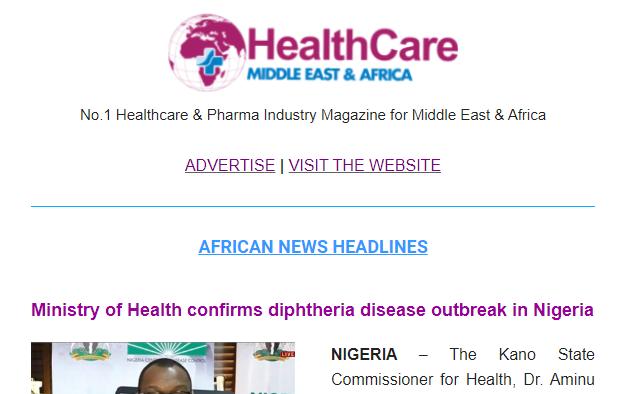HealthCare
MIDDLE EAST & AFRICA




10TH HOSPITAL IN ISTANBUL AND 24TH IN THE WORLD!
UNIVERSIY COLLEGE HOSPITAL, IBADAN: Celebrating 65 years of service to Nigeria’s public
MALAICA: Answering Questions: Dr. Lorraine Muluka
DR.LUCAS NYABERO: PSK strives for best medical experience for Kenyan patients
COUNTRY FOCUS : Egypt
DISEASE FOCUS : Cancer
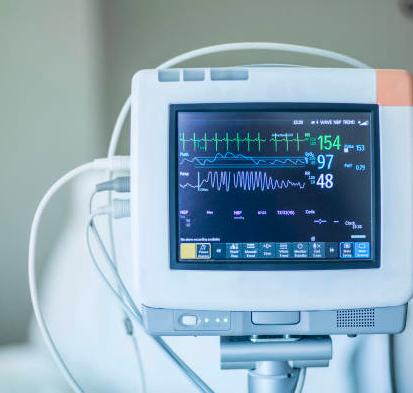
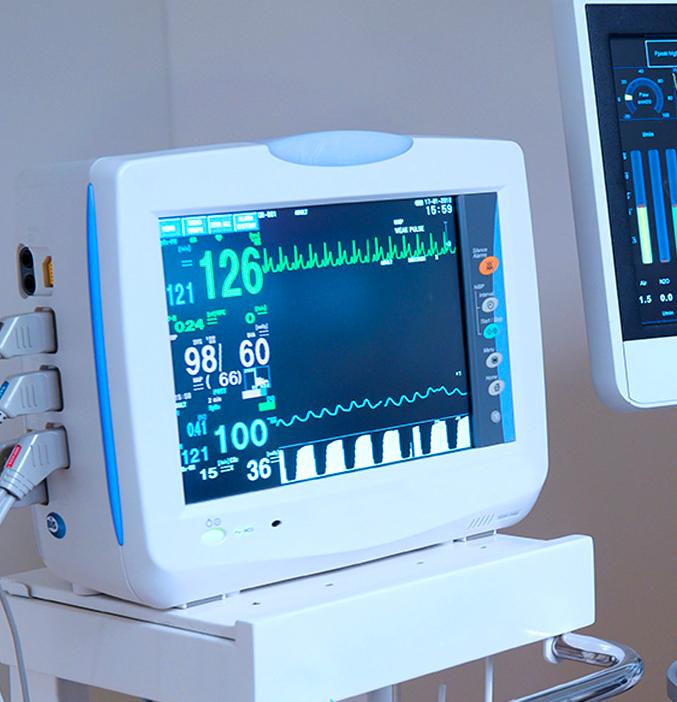
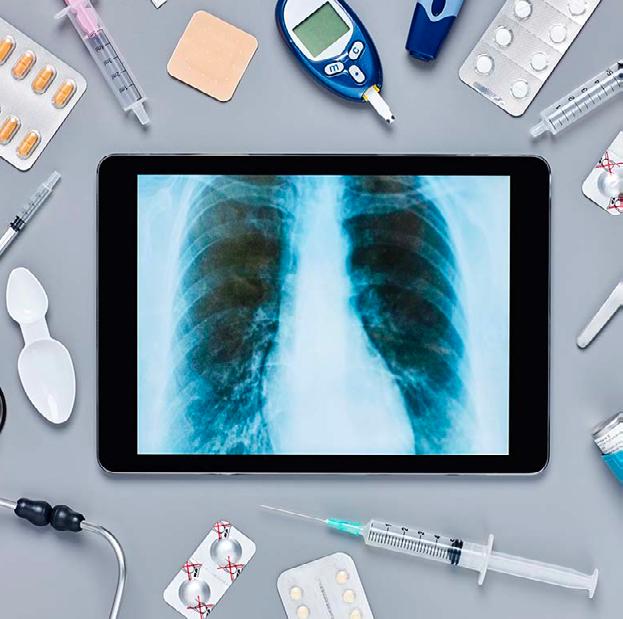



GE Healthcare is proud to introduce the 800 Series – a family of five nuclear medicine systems that bring quality, access and affordability together to deliver the latest in SPECT/CT advancements to a wider range of clinical environments.
MEET THE FAMILY:
The 800 Series builds on the success of the 600 Series with a collection of SPECT technology enhancements that includes the breakthrough CZT-based NM/CT 870 CZT, the digital-ready NM/CT 870 DR and the SPECT-only NM 830.
1. NM/CT 870 CZT - our third-generation, general purpose SPECT/CT system brings your theories to life with a system designed to leverage the full power of CZT technology.
2. NM/CT 870 DR - a premium SPECT/CT system that combines the latest advancements in dose and metal artifact reduction technology with the added flexibility of a standalone CT.
3. NM 830 - our SPECT-only system, designed to grow with your practice, offers a unique tool for diagnosing and treating patients with a lower initial investment.
4. NM/CT 850 - our most accessible SPECT/CT system, it delivers a high-end CT within the smallest footprint and provides an easy upgrade path to diagnostic CT technology.
5. NM/CT 860 – a SPECT/CT system designed for highperformance clinical environments, making nuclear medicine more accessible in routine care.
Plus, the 800 Series includes two eight-slice CT hybrids (NM/CT 850 and NM/CT 860), strategically paired with CT technology to make state-of-the-art CT performance accessible to practices with emerging or more routine hybrid needs.

FAMILY BENEFITS INCLUDE:
• Diagnose disease earlier with SwiftScan Planar’s and SwiftScan SPECT’s improved small lesion detectability.
• Reduce dose or scan times by up to 25 percent with the increased sensitivity of SwiftScan Planar and SwiftScan SPECT2.
• Use the SmartConsole
This digital processing platform modernizes nuclear medicine workflow by automating SPECT/CT reconstruction and enabling you to review scans remotely from your own mobile device.
• Save time by remotely collaborating with a clinician mid-exam with SmartConsole Web.

Have you met the 800 Series: the newest member of the Nairobi Radiotherapy and Cancer Centre family?
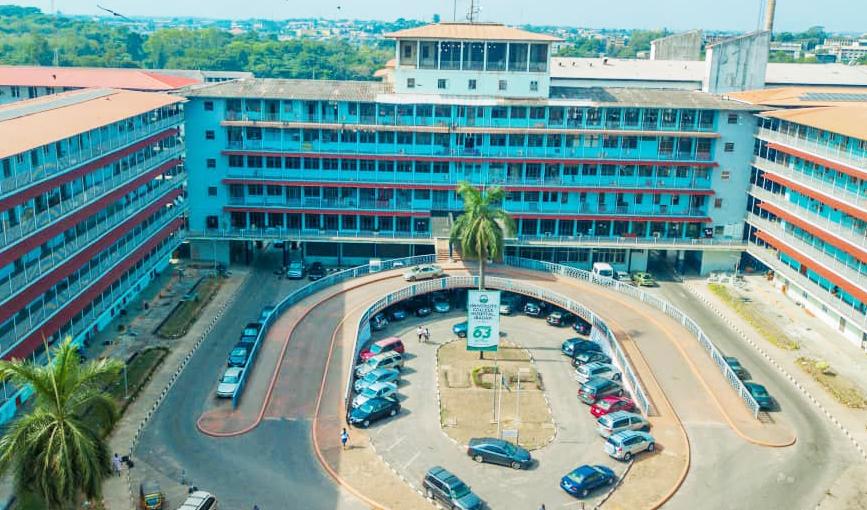
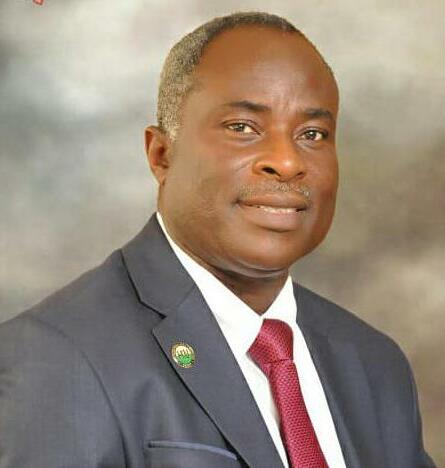

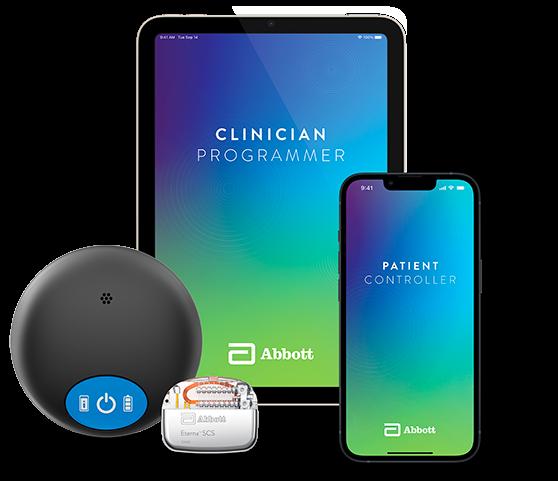
44
48
Answering Questions: Dr. Lorraine Muluka
COMPANY FEATURE: MALAICA 56

COUNTRY FOCUS: EGYPT
Private sector role in Egypt’s healthcare grows in importance as government support declines

EXECUTIVE INTERVIEW: DR. LUCAS
NYABERO - CEO, Pharmaceutical Society of Kenya
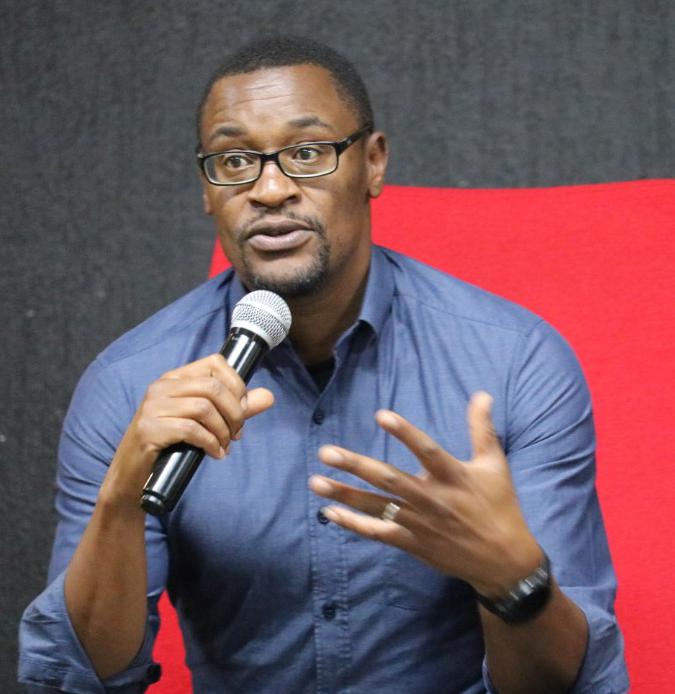
PSK: Our aim is giving patients the best medical experience possible
DISEASE FOCUS: CANCER 64
Africa takes the fight against cancer head on although challenges abound


Acıbadem healthcare group began its journey into healthcare services as a small neighborhood hospital in a district of Istanbul/Turkiye. Today, Acıbadem is a global chain operating in 5 countries including Turkiye, Bulgaria, Macedonia, Serbia, and the Netherlands with its 24 hospitals, 14 outpatient clinics.
day of the request until the time patient’s return to their home country within 20 different languages.
As a globally renowned chain in the medical field and Turkiye’s leading Healthcare Group, Acıbadem continues to grow rapidly. The group launched its newest hospital - Acıbadem Ataşehir - as their 10th hospital in Istanbul and their 24th in the world. Acıbadem Ataşehir is recognized for its unique architecture, advanced medical technology, and digital systems exclusively developed by the group in the field of health management. It has been built with an indoor area of 65,000 sqm. and certified by LEED Gold for its 'Eco-Friendly' and 'Smart Building' features.


Acıbadem Ataşehir provides treatments in all branches of medicine, yet it serves particular care to oncology, gynecology, Brain Surgery, Orthopedics, IVF and pediatric patients
Today Acıbadem Healthcare Group is a global brand in medical tourism by providing the highest quality of services using advanced technologies and expert teams meeting the international quality standards like Joint Commission International (JCI) and ISO 15189 Clinical Laboratory Accreditation Certificate. Every year, many patients from different parts of the world travel to
Turkiye to receive treatment, and they prefer Acıbadem. In order to provide comfort, trust and stability, Acıbadem offers to international patients a comprehensive range of services including consultations, diagnostic procedures, billing and insurance, travel and accommodation arrangements and translation services. Acibadem International Patient Service Center has been designed as a “one-stop center” and offers healthcare services from the
thanks to the hospital’s unique design and features that accommodate for their every need, thus ensuring patient safety and satisfaction. The hospital has 153 patient rooms, 298 patient beds, 10 operating theatre, 1 IVF operating room, an endoscopy/colonoscopy, and angiography intervention rooms.

Constructed on a separate building, the architecture of the 2-floor Pediatrics Department welcomes a child-friendly environment, an environment that keeps child patients entertained with activities and play areas and distracts them from the hospital atmosphere. The Pediatrics Department operates 24 hours with specialist physicians from all branches and sub-branches. Observation rooms are located near the entrance of the polyclinic with direct separate access for children with fever and infections. For blood tests and vaccinations, children and their families can visit the dedicated unit without entering the polyclinic. Additionally, to satisfy children’s playful nature, there is a colorful Carousel right outside the pediatrics building for them to enjoy their time and have fun during their stay at Acıbadem hospital.
At Acıbadem Ataşehir, the Obstetrics and Gynecology polyclinic is located on the ground floor and consists of

the Gynecologic Oncology unit, an IVF Center, and the Perinatology Center. The hospital, known for its worldclass services for expectant mothers, has been designed such that all the procedures regarding childbirth and labor are completed on a single floor and thereby ensures that patients will receive assistance in the fastest and most convenient way.
The Oncology clinic has been designed specifically for the needs of patients undergoing oncology treatments and can be accessed through its own separate entrance; it is served by a team of experienced specialists using a multidisciplinary approach. There are a total of 34 Chemotherapy Treatment Units in the clinic, 30 of which are outpatients and 4 inpatients, all equipped with advanced technological diagnostic and treatment systems.
Acıbadem Ataşehir Hospital welcomes its visitors with a digital artwork at its main entrance, the artwork was created specifically using data art. The data of 145,580 babies born in Acıbadem hospitals, were used to exclusively design an inspirational art piece for the hospital by the renowned data artists

Hakan and Süleyman Yılmaz brothers, who are acclaimed for their digital artworks in Turkey. In the artists' work called "Newborn," each newborn baby is represented by a flower symbol according to the month in which they were born. The art piece will not be limited to the babies born in the past, but henceforth every baby born in Acıbadem will take its place in the artwork as its own new flower. In this way, the art piece highlights itself as a 'living' digital artwork.
For more Information contact us: international@acibadem.com



MIDDLE EAST & AFRICA

FOUNDER & PUBLISHER
Francis Juma
SENIOR EDITOR
Benjamin Opuko
JUNIOR EDITOR
Lorraine A. Wangui
JUNIOR EDITOR
Jackie Mbithe
BUSINESS DEVELOPMENT DIRECTOR
Virginia Nyoro
BUSINESS DEVELOPMENT ASSOCIATE
Elly Okutoyi | Elly Akoko
HEAD OF DESIGN
Clare Ngode
VIDEO & DESIGN ASSISTANT
Newton Lemein
ACCOUNTS
Jonah Sambai
PUBLISHED BY: FW AfricaP.O. Box 1874-00621, Nairobi Kenya
Tel: +254 20 8155022, +254725 343932
Email: info@fwafrica.net
Company Website: www.fwafrica.net
Cancer occurrence is increasing globally and it is a real concern to governments and every person alive because of the economic implications and loss of quality of life it carries with it. A look at the current cancer prevalence is intimidating. Cancer ranks as a leading cause of death and an important barrier to increasing life expectancy in every country of the world. In 2020, there were 19.3 million new cancer cases and nearly 10 million cancer-related deaths worldwide. The World Health Organization projects that, by 2040, the world could see 28.9 million new cancer cases and 16.2 million cancer-related deaths a year simply due to population growth and aging. Cancer burden in Sub-Saharan Africa is expected to nearly double over the next 20, reaching 1.5 million new cases and 1 million deaths by 2040 even if cancer incidence rates remain constant.
The recognition that cancer is a major and growing health problem in Africa is driving efforts by national governments in addressing the issue. Countries' resources and ability to provide healthcare services may differ, but a commendable proportion of African governments have made plausible strides, mainly through the implementation of Universal Health Coverage (UHC). Moreover, Africa is strengthening its population-based cancer registries – equipping individual countries with the continuous data necessary to plan and inform national cancer services. Laudable milestones have been witnessed in the increased number of cancer treatment facilities with much success being realized.
Statistical projections already predict that cancer burden will rise in Africa within the next two decades, given population trends, portending strains on an overstretched healthcare and economic infrastructure, posing new challenges.

HealthCare Africa (ISSN 2307-3535) is published 6 times a year by FW Africa. Reproduction of the whole or any part of the contents without written permission from the editor is prohibited. All information is published in good faith. While care is taken to prevent inaccuracies, the publishers accept no liability for any errors or omissions or for the consequences of any action taken on the basis of information published.

Addressing the rising cancer incidence and mortality rates in Africa is a multifaceted challenge. Some regions have inadequate infrastructure, and people may lack access to basic healthcare. This is further compounded by other difficulties including a shortage of cancer doctors, nurses, and public health workers. Just to put this challenge into perspective, some countries in Africa totally lack oncologists, while others only have single-digit oncologists, meaning there is a high caseload per physician in those countries.
But Africa is unflinching in the face of this mega challenge of fighting cancer.
In this issue of HealthCare Middle East and Africa (HCMEA) magazine, we examine the cancer burden in Africa based on the GLOBOCAN estimates of cancer incidence and mortality. We have featured University College Hospital, Ibadan, highlighting the major strides it has made in promoting health at its Blue Sapphire Jubilee. These, and more captivating and informative stories are yours to read and stay informed.
Benjamin Opuko HCMEA Editorial Lead, FW AfricaAFRICA TAKES THE FIGHT AGAINST CANCER HEAD ON, ALTHOUGH CHALLENGES ABOUND
Biomedical Science Congress 2023
January 4, 2023
Birmingham, United Kingdom www.theicc.co.uk
Biotech Showcase 2023
January 9-11, 2023 USA
https://informaconnect.com/biotechshowcase
DentExpo Ethiopia 2023
January 23-25, 2023
Addis Ababa, Ethiopia https://medexpo.expogr.com
MedExpo Ethiopia 2023
January 23-25, 2023
Addis Ababa, Ethiopia https://medexpo.expogr.com
BDS - Barcelona Dental Show 2023
January 26-28, 2023
Barcelona, Spain www.dentalshowbcn.com
Arab Health
January 30 - February 2, 2023
Dubai, UAE
www.arabhealthonline.com/en/Home.html
Hospital Build & Infrastructure Middle East 2023
January 30 - February 2, 2023
Dubai, UAE www.arabhealthonline.com/en/Home.html
Obs-Gyn 2023
January 30 - February 2, 2023
Dubai, UAE
www.arabhealthonline.com/en/education/ conferences/obs-gyne-conference.html
Pharmapack Biomedevice '2023 & Pharmapack Europe 2023


February 1-2, 2023
Paris, France www.pharmapackeurope.com/en/home. html
Maghreb Pharma Expo 2023
February 7-9, 2023
Algiers, Algeria www.maghrebpharma.com/fr
MedExpo Tanzania 2023
February 16-18, 2023
Dar es Salaam, Tanzania https://medexpo.expogr.com
Uganda Pharma & Healthcare 2023
February 16 - 18, 2023
Kampala, Uganda www.ugandapharmahealth.com
Advantage Healthcare-India 2023
February 20 - 22, 2023
New Delhi, India www.ahcindia.in
Lab Expo Tunisia 2023
February 20 - 22, 2023
Tunis, Tunisia www.fkram.com.tn/pdf/agenda.pdf
Meditech & Healthcare Africa 2023
February 23 - 25, 2023
Nairobi, Kenya https://mthafrica.com
Dubai Derma 2023
March 1-3, 2023
Dubai World Trade Centre www.dubaiderma.com/dubai-derma-2023
Medicare - National Healthcare Exhibition 2023
March 3-5, 2023
Colombo, Sri Lanka www.medicare.lk
Africa Health Agenda
March 5-8, 2023
Kigali,Rwanda www.ahaic.org
Herbal & Health Food Indonesia 2023
March 9-12, 2023
Jakarta, Indonesia
http://allfoodindonesia.com/sub-event/ health-herbal-food-indonesia/
Bioprocessing Summit Europe
March 14-16, 2023
Barcelona, Spain
https://10times.com/bioprocessing-summit


Infarma 2023
March 14-16, 2023
Barcelona, Spain www.infarma.es
Expomed EuroAsia 2023
March 16-18, 2023
Instan Bul, Tukey
www.expomedistanbul.com/en
International Conferences on Medical and Health Science (ICMHS)
March 25-26, 2023
Johannesburg, South Africa
http://theires.org/Conference2023/SouthAfrica/1/ICMHS/
International Conference on Recent Advances in Medical, Medicine and Health Sciences (ICRAMMHS)
March 29-30, 2023
Istanbul, Turkey
http://wrfer.org/Conference/26358/ ICRAMMHS/
Austropharm 2023
April 13 - 15, 2023
Vienna, Austria
www.austropharm.at/en-gb.html
American Dental Conference
April 27 - 29, 2023
Orlando, FL, USA
www.magnusconferences.com/dental
Simem International Health Exihibition
May 3-6, 2023
Oran, Algeria
www.eventseye.com

Ablitech 2023
May 16-17, 2023
Tlv Convention Centre, Tel Aviv, Israel
www.stier.co.il/abilitech/en
Precisionmed Expo & Summit 2023
May 23 - 24, 2023
Conrad Hotel Dubai, UAE
www.precisionmedexpo.com


at no cost, under the agreement between Egypt’s Health Ministry and privatesector healthcare firms. Moreover, the cooperation protocol with Ministry of Health and Population involves other private-sector healthcare providers, including Alpha Cure, Cleopatra Hospitals Group, and Saudi German Health Centers.
EGYPT – Egyptian hospital chain Alameda Healthcare has signed a collaboration agreement with the Ministry of Health and Population (MoHP) for advancing healthcare service delivery.
pointed out that the partnership will ensure Egyptian doctors find unlimited opportunities to learn alongside some of the greatest consultants and top doctors in the country, who serve at Alameda. In addition, the partnership will play a central role in the organizational transformation of the healthcare sector by uplifting the doctors’ medical proficiency to provide high-quality medical services to patients in Egypt.
The hospital chain noted that the agreement will allow its foreign medical experts to spend one or two days in government hospitals across Egypt to perform delicate and critical surgeries
The high-end healthcare organization
The agreement between the health ministry and the private sector’s healthcare providers in Egypt is part of the government plan to improve the quality of health services provided to citizens while boosting medical tourism in the country. RESEARCH
KENYA – Japan’s Nagasaki University will from 2023 work with KEMRI Graduate School (KGS) in high-level training of KEMRI and Kenyan scientists in vaccine development. The agreement was reached during a visit to Nagasaki by Prof. Elijah M. Songok, Director of KEMRI Graduate School. The training will be on the whole vaccine development pipeline from basic science and product
development to clinical trials.
The vaccine development training will involve the Japanese and Kenyan pharmaceutical industries partnership. Nagasaki University has had a very long-standing partnership with KEMRI in research and research capacity building. Japan and Kenya have been collaborating for over 40 years to create and develop KEMRI into a centre of research excellence not only in Kenya
but also in the Eastern Africa region.
KEMRI has formed partnerships with various Japanese Universities such as Nagasaki University to enhance research capacity, which has played a prominent role, as it has not only sent research personnel to work at the Institute, but also provided scholarships for Kenyan research scientists to study in Japan.
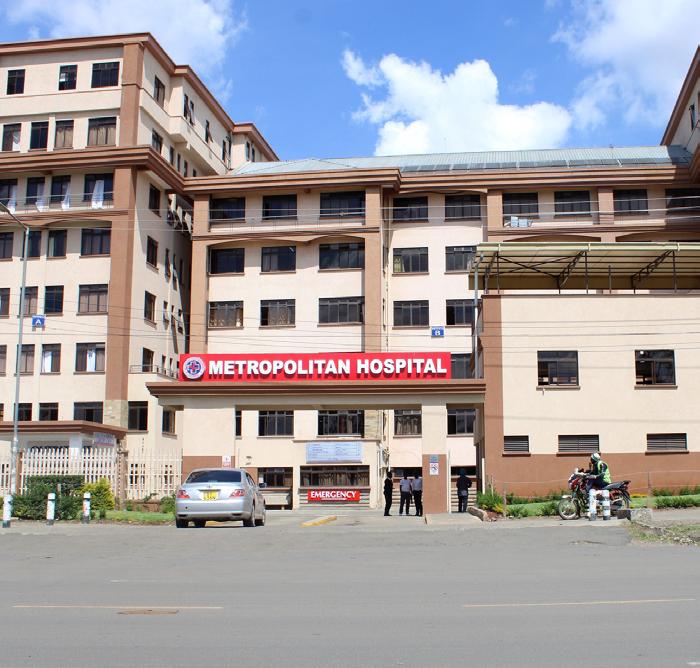
KENYA – The Evercare Health Fund has sold its 54.9 percent stake in Metropolitan Hospital Holdings to co-investor, The Metro Group, which currently holds a 41.8 percent stake in the company. Metropolitan Hospital Holdings Limited (MHHL), is a holding company that owns Metropolitan Hospital and Ladnan Hospital. The deal, valued at KSh1 billion (US$8.1 million), returns ownership of Metropolitan Hospital Holdings to its original founders, who established it in 1994.
Regulatory filings before the Competition Authority of Kenya (CAK) indicate that the combined turnover of the two hospitals last year was above KSh1 billion (US$8.1 million), highlighting the attractiveness of private healthcare investments in the country with rickety public health services.
The group’s two hospitals have 160 beds and more than 350 staff members. The facilities have served roughly 300,000 mostly low- and middleincome patients since Evercare invested.
prevention, diagnosis, and treatment of diseases. Minister of Health and Social Services, Dr. Kalumbi Shangula said there was a need to revise the NMP to be more responsive to emerging health needs within communities and to align objectives and strategies of the policy with current national strategic development plans.
and operational level activities for the pharmaceutical sector, has 11 strategic objectives, each with several strategies recommended to be employed to facilitate the policy implementation.
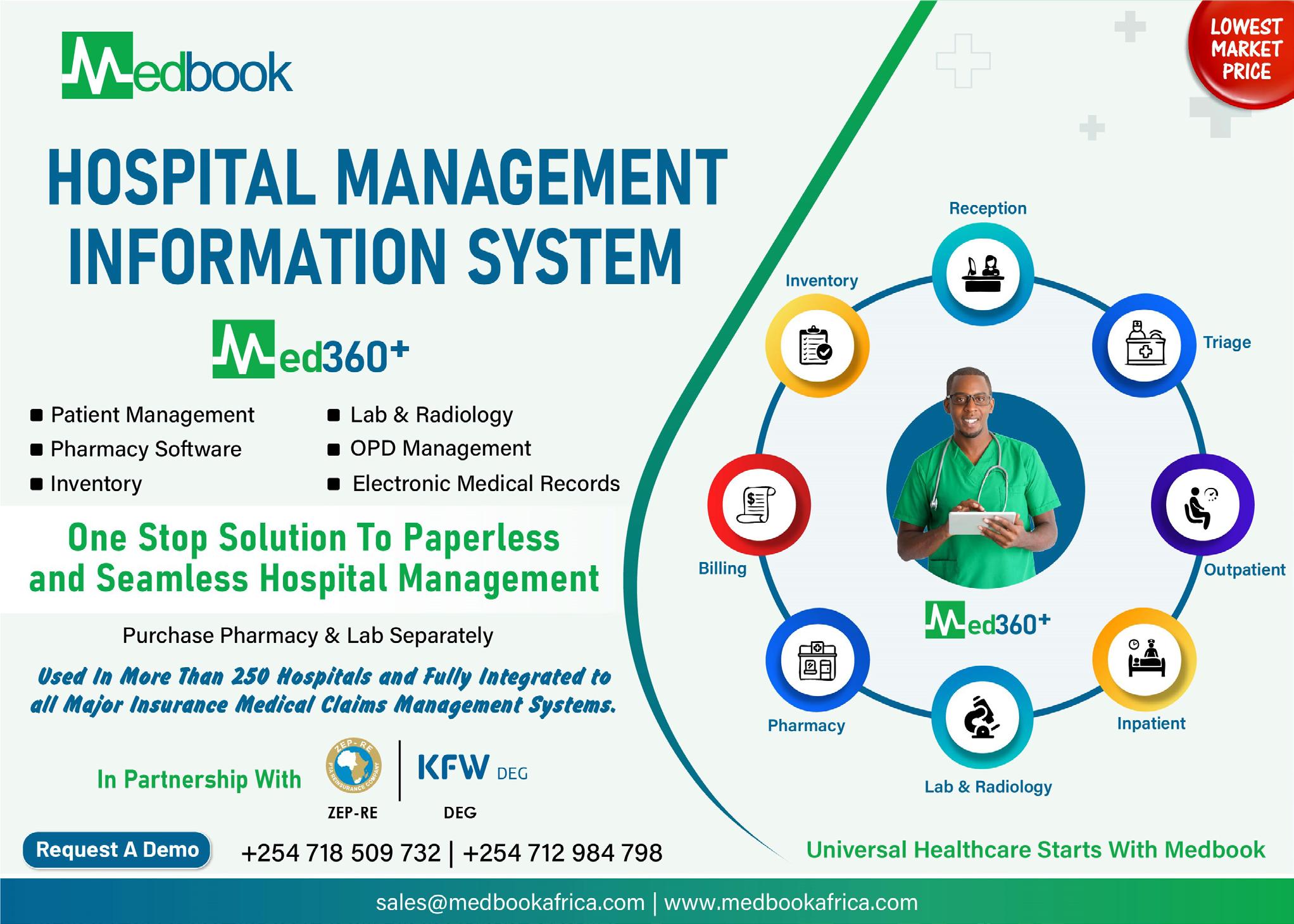
NAMIBIA – The Ministry of Health and Social Services has launched a revised National Medicines Policy (NMP), after 24 years, to guide and develop pharmaceutical services in the country to meet the requirements of locals in the

Shangula added that Namibia is looking to strengthen pharmaceutical regulatory capacity; improve health product procurement practices and the warehousing and distribution capacity of the central and regional medical stores. This is while ensuring supply chain integrity and improving interoperability of health information and pharmaceutical inventory/stock management tools across the supply chain and beyond. He said the policy document, which guides all strategic
NAMIBIA AIMS TO IMPROVE HEALTH PRODUCT PROCUREMENT PRACTICES AS WELL AS THE WAREHOUSING AND DISTRIBUTION CAPACITY OF CENTRAL AND REGIONAL MEDICAL STORES.
Dr. Kalumbi Shangula - Minister of Health and Social Services, Namibia



• The AFMASS Cake Decoration Competition is a new initiative by the organisers of the AFMASS Food Expo that is mainly focused on promoting excellence in cake making and decoration, advancing the pastry and baking profession in Africa and to create vibe and celebration at this pan-African Expo.

BARISTA COMPETITION
• The AFMASS Cocktails Competition at the AFMASS Food Expo promotes excellence and creativity in the art (and science) of cocktails making and thereby advancing the cocktail making profession in Africa.

• The AFMASS Barista Competition at the AFMASS Food Expo promotes excellence and creativity in the art of coffee making and thereby advancing the barista profession and coffee industry in Africa.

FOUR PAVILLIONS THAT COVER THE FOOD INDUSTRY FROM A-Z
FOOD AFMASS DRINKS
AFRICA EXPO Process &

PACK

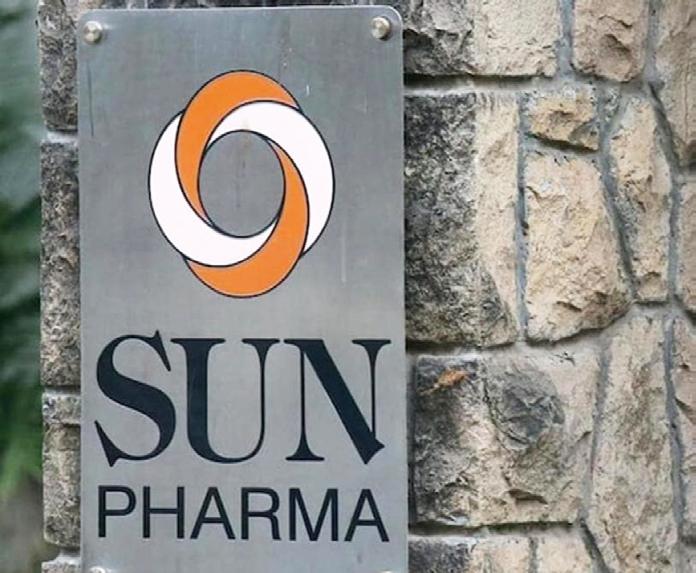
INDIA – Sun Pharmaceutical Industries Limited (Sun Pharma) has signed a definitive agreement to acquire Concert Pharmaceuticals Inc. (Concert) for up to US$576 million in equity value.
Concert has an extensive patent portfolio, including its lead product candidate deuruxolitinib – an oral inhibitor of Janus kinases JAK1 and JAK2 for the treatment of Alopecia Areata, an autoimmune dermatological disease –which is in late-stage development.
The US-based biotechnology firm has completed the evaluation of the efficacy and safety of deuruxolitinib in adult patients with moderate to severe Alopecia Areata in its THRIVE-AA Phase 3 clinical program. Concert’s
sector. Kenya faces an acute shortage of nurses with just 60,000 nurses serving a population of more than 50 million Kenyans.
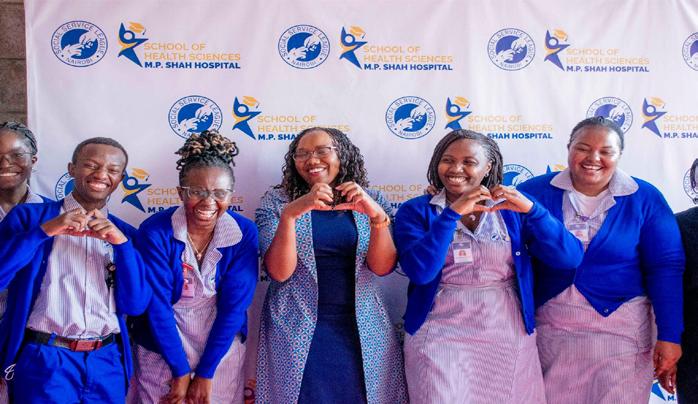
This makes it difficult for Kenya to achieve sustainable healthcare and ensure healthy lives for all.
KENYA – The M.P Shah Hospital has launched the M.P Shah Hospital School of Health Sciences to build capacity in the nursing profession as well as equip the nurses with the best practices of patient care, research, and innovation. The school was officially inaugurated by Mrs. Edna Tallam-Kimaiyo, CEO of the Nursing Council of Kenya, M.P. Shah Hospital Chairman Dr. Manoj Shah, Vice-Chairman Dr. Manilal Dodhia, and the hospital’s CEO Dr. Toseef Din.
Currently, there is a significant deficit of nurses in the healthcare
The world has an estimated 28 million nurses, who make up about 60 percent of the global health sector professionals.
Even though nursing is the largest occupational group in the healthcare industry, the World Health Organization (WHO) estimates that there is a global shortage of six million nursing professionals and the number is likely to rise to nine million by 2030. Africa and Asia are the worst hit continents by this crisis and the situation is getting worse, as the population grows faster than the rate of increase in graduates from nursing care training facilities.
deuruxolitinib has two open-label, longterm extension studies ongoing in North America and Europe in joint efforts to advance the potential treatment of Alopecia Areata, which may affect up to 2.5% of the United States and global population during their lifetime.
With the acquisition of Concert, Sun Pharma seeks to build its global Dermatology and Ophthalmology franchise and aims to be a preferred development and commercial partner in these therapies worldwide. The Indian drug major has agreed to sell a nontradeable contingent value right (CVR) to Concert stockholders entitling holders to an additional US$3.50 per share of common stock in cash as of January 18, 2023.
SENEGAL – The Institut Pasteur de Dakar (IPD), a biomedical research center in Senegal, has initiated a new program to advance the development of measles and rubella (MR) vaccine for manufacture within the country. The Dakar-based facility received a funding grant from the Bill & Melinda Gates Foundation that will be used to support IDP in producing the MR vaccine for essential, routine immunization campaigns in low- and middle-income countries and for outbreak and catch-up campaigns.
“Production will be transferred to the state-of-the-art MADIBA facility, a regional manufacturing hub for COVID-19 and other epidemic vaccines with a capacity to produce 300 million

doses for use in Africa,” the facility announced in an official statement.
According to IDP, the grant by the Gates Foundation will deploy Batavia’s Hip-Vax intensified production process for GMP measles and rubella material and Univercells’ NevoLine technology platform to accelerate manufacturing and affordable access to essential and epidemic vaccines in Africa.
UAE — Zulekha Healthcare Group has signed a collaboration agreement with Sharjah Health Authority to invest in quality healthcare for communities in the United Arab Emirates (UAE).
“The organizations aim to work on various community initiatives to ensure residents have easy access to hospital & homecare and pharmacy
services offered by Zulekha Hospital in their Dubai and Sharjah facilities,” the Zulekha Healthcare Group informed in a statement.
The private-public partnership is in line with the Group’s underling commitment to provide high quality healthcare to patients and society. It will offer medical treatments and related services to employees of the Government of Sharjah, their dependents, and retirees under insurance coverage.
The private-public pact will also provide exceptional medical services to elderly residents in the Emirate of Sharjah who have not acquired insurance coverage, and UAE nationals based in the Emirate of Sharjah. In addition, the collaboration aligns with the key objective of the Sharjah Health Authority to enhance, evolve and regulate the healthcare system in the city in the United Arab Emirates.
SOUTH AFRICA – The Council for Health Service Accreditation of Southern Africa (COHSASA), a notfor-profit company (NPC) based in Cape Town has awarded accreditation to two Kenyan hospitals and two South African hospitals. Kenya’s Avenue Parklands Hospital and Metropolitan Hospital achieved two-year awards while South Africa’s Mediclinic Heart Hospital and Mediclinic Stellenbosch received a three-year full accreditation.
The accreditation signifies that patients attending these facilities can expect to receive safe, quality care. A four-year accreditation award from the Council should signal to patients that a facility has sustained an excellent level of standards over a significant period of time. All facilities that receive an accreditation award must undergo an
interim survey halfway through the period to ensure that standards are being maintained. The hospitals are now among ten hospitals accredited by COHSASA in Africa. Avenue Parklands Hospital and Metropolitan Hospital are now among FIVE that are internationally accredited in Kenya.

NIGERIA – Cedarcrest Hospitals

Limited secured a grant from The U.S. Trade and Development Agency (USTDA) for a feasibility study to develop a comprehensive cancer treatment center in Abuja.
The cancer treatment centre will provide diagnosis and treatment services for up to 1,000 patients per year. Cedarcrest selected Ohio-based Utopian Consulting, LLC, to conduct the study. USTDA’s study will provide the analysis required for Cedarcrest to design and implement a comprehensive cancer treatment center that will improve access to oncology services. The center will offer full-range oncology services, including prevention and screening, diagnostics, chemotherapy, immunotherapy, surgical oncology, and radiotherapy.
According to the CEO of Cedarcrest’s, Dr. Felix Ogedegbe, the grant will aid in achieving the dream of setting up a comprehensive cancer diagnosis and treatment center, make these services available locally, and ensure in-bound medical tourism from the subregion. USTDA’s assistance to Cedarcrest advances one of the key pillars of the Biden-Harris Administration’s Partnership for Global Infrastructure and Investment, which aims to strengthen global health security through investments in patient-centered health services. The project also advances the U.S. government’s Prosper Africa initiative to substantially increase twoway trade and investment between the United States and Africa.
THE PRIVATE-PUBLIC PACT WILL ALSO PROVIDE EXCEPTIONAL MEDICAL SERVICES TO ELDERLY RESIDENTS IN THE EMIRATE OF SHARJAH WHO HAVE NOT ACQUIRED INSURANCE COVERAGE, AND UAE NATIONALS









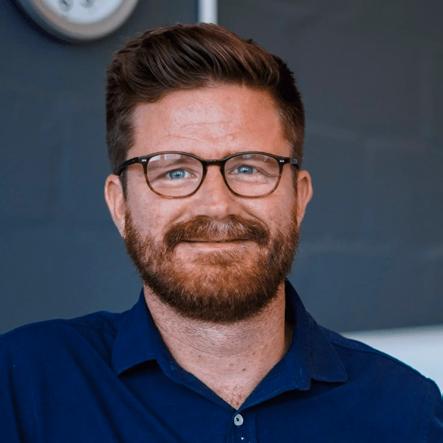

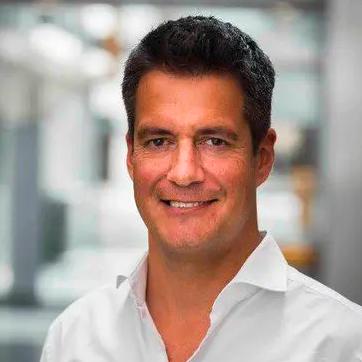
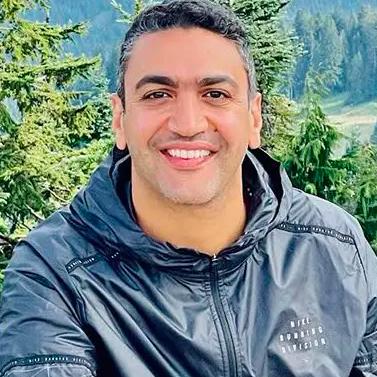
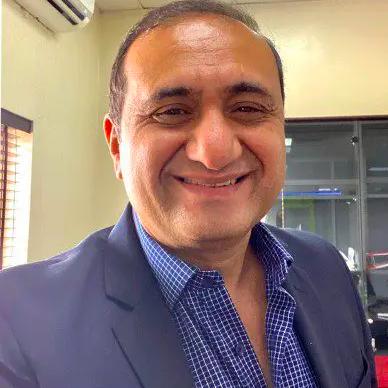
 ASHISH PANDE Country Head, Olam Agri, Nigeria
ESSAM EL-MADDAH HR & General Secretary Director, Danone Egypt & North East Africa
JUSTIN ARCHER COO East Africa & Group Head of Sustainability, Sucafina SA
CLAUDIA CASTELLANOS Managing Director, Black Mamba
JOACHIM WESTERWELD Executive Chairman, Bio Food Products
MILLICENT A. ADOBOE Co-Founder, Achiever Foods Ghana
CAESAR ASIYO Chief Development Officer, Victory Farms
SAINT-FRANCIS TOHLANG Corporate Affairs Director, Nestle East & Southern Africa
NICO ROOZEN Honorary President, Solidaridad Network
ROZY RANA Managing Director, Dormans Coffee
GAURAV VJ CEO, 260 Brands
BRETT THOMPSON Co-Founder & CEO, Mzansi Meat
ASHISH PANDE Country Head, Olam Agri, Nigeria
ESSAM EL-MADDAH HR & General Secretary Director, Danone Egypt & North East Africa
JUSTIN ARCHER COO East Africa & Group Head of Sustainability, Sucafina SA
CLAUDIA CASTELLANOS Managing Director, Black Mamba
JOACHIM WESTERWELD Executive Chairman, Bio Food Products
MILLICENT A. ADOBOE Co-Founder, Achiever Foods Ghana
CAESAR ASIYO Chief Development Officer, Victory Farms
SAINT-FRANCIS TOHLANG Corporate Affairs Director, Nestle East & Southern Africa
NICO ROOZEN Honorary President, Solidaridad Network
ROZY RANA Managing Director, Dormans Coffee
GAURAV VJ CEO, 260 Brands
BRETT THOMPSON Co-Founder & CEO, Mzansi Meat
UAE – Biopharma giant AstraZeneca and G42 Healthcare, an AI-powered healthcare company, have teamed up to locally manufacture innovative drugs in the Emirate of Abu Dhabi. The strategic partnership deal will build on the ongoing efforts of the Department of Health – Abu Dhabi (DoH) in spearheading Abu Dhabi’s healthcare ecosystem that enables transforming patient outcomes.
“The binding agreement focuses on collaboration in four key areas including localizing innovative industries, research and development, innovation and sustainability at a global scale,” the DoH said.
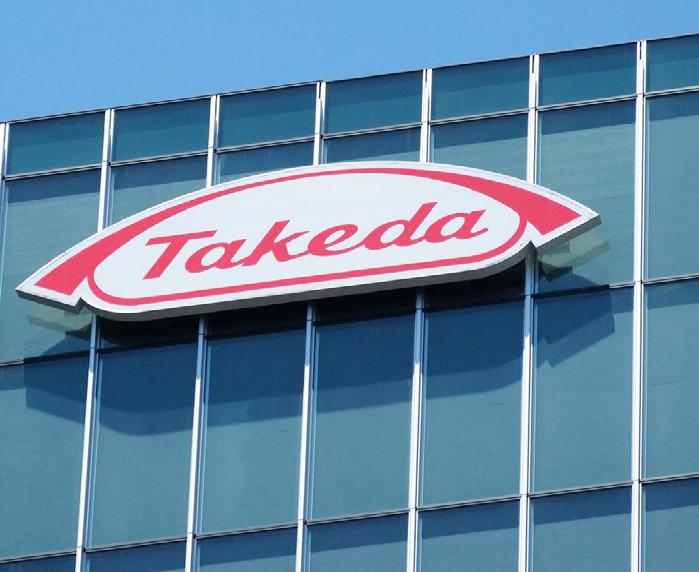
diagnosis methods, supporting education, and expanding patients’ access to treatment.
Commenting on the deal, SGA Chairman Prof. Majid AlMadi noted: “With the growing popularity of fast-food and high-stress levels, the incidence rate of IBD in Saudi is rising across all age groups and the illness imposes significant costs to our healthcare sector.”
SAUDI ARABIA – The Saudi Gastroenterology Association (SGA) has joined forces with Takeda Pharmaceutical Company Limited with an aim to advance inflammatory bowel disease (IBD) care in the Kingdom of Saudi Arabia. The partnership will focus on strategic healthcare areas including identifying how existing healthcare resources can be better optimized for IBD treatment, establishing modern
He highlighted that the partnership with Takeda will support ongoing efforts to improve understanding of IBD symptoms as well as enhance diagnosis and treatment plans.
“As Saudi Arabia undertakes one of the largest transformation efforts of its health sector to deliver a system that ensures access, quality, and value, we are working to ensure IBD care remains at the top of the agenda.” the SGA Chairman said.
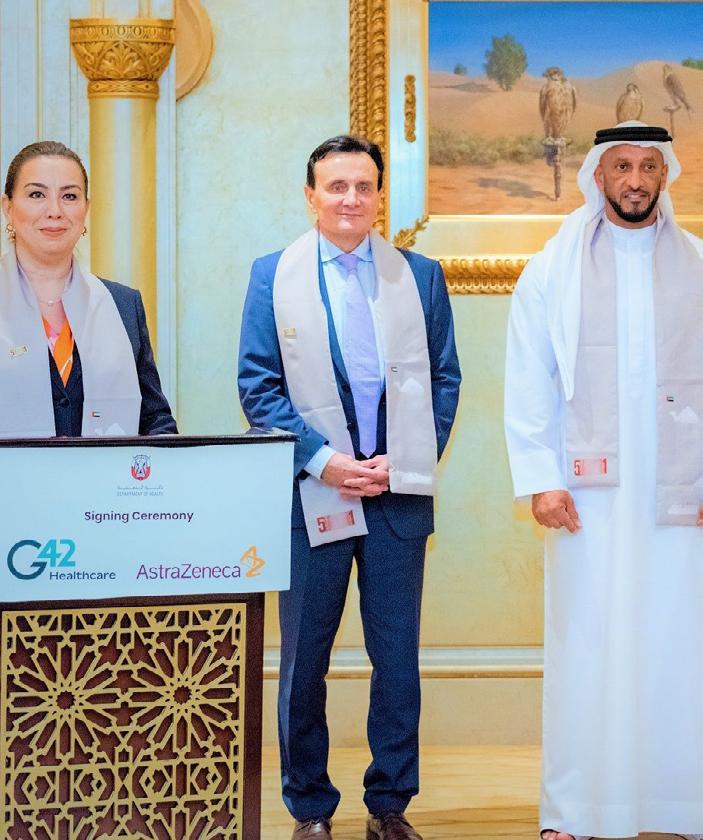
It cements the Emirate’s position as a powerhouse for medical research and innovation in life sciences and is the latest in a series of longstanding partnerships with key players in industrial sectors such as the pharmaceutical industry. Furthermore, the agreement is in line with the National Strategy for Industry and Advanced Technology and the ‘Make it in the Emirates’ initiative, which aims to enhance the UAE’s business environment and position as an attractive destination for local and global industrial investors.
ETHIOPIA – Black Lion, the largest referral hospital in Ethiopia, has announced plans to build its own private hospital within the next five to ten years as the hospital strives for autonomy from the Federal Government and financial self-sufficiency. The hospital, which is under Addis Ababa University, will continue to provide free and lowcost services while building its own private hospital.
Andualem Deneke (MD), CEO of the College of Health Sciences under Addis Ababa University says the private hospital aims to generate additional revenue from hospital services and increase pay for its employees, which is a frequently asked question. The organizational structure of the private establishment will be independent from Black Lion Specialized Hospital and it will sprawl on the 15 hectares of land given
to the hospital for expansion. A guideline has also been prepared to open a public laboratory that is easily accessible. A new diagnostic and laboratory service is also being built now and it will be integrated into the regular operations of Black Lion Hospital.
THE HOSPITAL, WHICH IS UNDER ADDIS ABABA UNIVERSITY, WILL CONTINUE TO PROVIDE FREE AND LOW-COST SERVICES WHILE BUILDING ITS OWN PRIVATE HOSPITAL.

which is supported by Gavi, with only about ten countries being self-sufficient in terms of vaccine procurement.
Although Africa consumes vaccines worth more than US$1 billion each year, Gavi, UNICEF, and donors bear a large portion of the cost. Gavi currently selects vaccine suppliers based on price and does not systematically permit the accommodation of higher prices in the name of geographical diversity and supply security.
SWITZERLAND — Gavi, the Vaccine Alliance has unveiled a plan outlining key priority areas to achieve the African Union (AU) vision of sustainably expanding vaccine manufacturing capacity across Africa by 2040. The plan is a response to the AU call to action for Gavi and other stakeholders to concretely support supply security on the continent. The plan has been developed in consultation with the AU and Africa Centres for Disease Control and Prevention (Africa CDC), as well as a
wide range of supporting stakeholders.
The 10-point plan allocates responsibilities to other key players – G7 Development Ministers, African countries, international partners including development financial institutions, and the private sector – to support sustainable African manufacturing capacity. However, Gavi will drive and coordinate the plan, given its enormous clout as the world’s biggest buyer of vaccines. Most African countries receive vaccines from UNICEF,
Emirates University (UAEU) focused on two key areas, research and education.
Cleveland Clinic Abu Dhabi and the College of Medicine and Health Sciences – UAEU have agreed to collaborate on research projects, co-mentoring, and placement of students at Cleveland Clinic Abu Dhabi, along with the creation of research and development partnerships.
together to produce Emirati doctors who are educated to the highest international standards while partnering on the development of jointly led healthcare events.
UAE – Cleveland Clinic Abu Dhabi, an integral part of Mubadala Health, has signed a collaboration agreement with the College of Medicine and Health Sciences (CMHS) of the United Arab

The two parties will also collaborate on educational projects at the undergraduate, graduate, and postdoctoral levels offered at the College of Medicine and Health Sciences, the first and highest-ranked medical school in the UAE. Moreover, Cleveland Clinic Abu Dhabi and CMHS will work closely
Cleveland Clinic Abu Dhabi is a unique and unparalleled extension of US-based Cleveland Clinic’s model of care, specifically designed to address a range of complex and critical care requirements unique to the Abu Dhabi population. Commenting on the latest partnership, Dr. Sawsan Abdel-Razig, Interim Chief Academic Officer at Cleveland Clinic Abu Dhabi said: “Innovation, research, and education are key areas that Cleveland Clinic Abu Dhabi focuses on.”
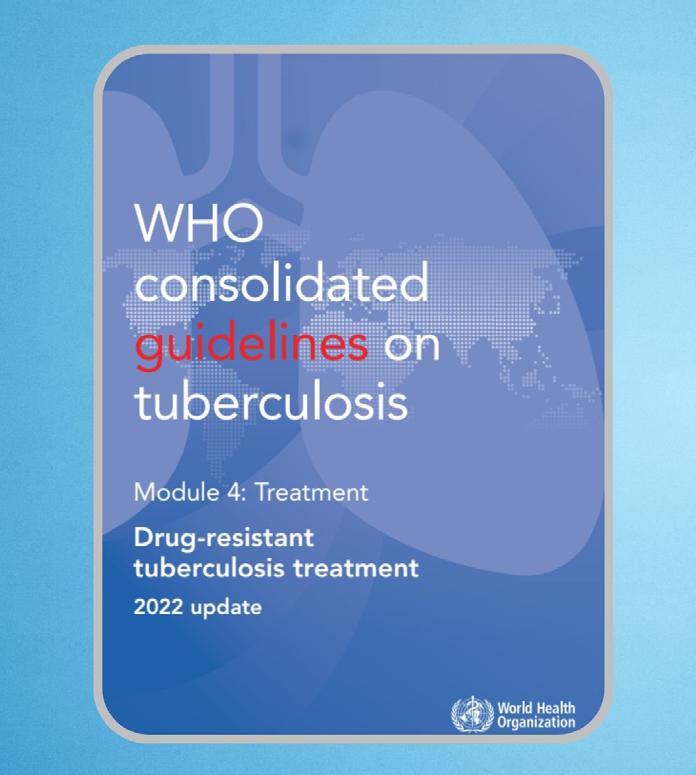
recommendation for an all-oral 6-month regimen of bedaquiline, pretomanid, linezolid, and moxifloxacin (BPaLM) in people with MDR/RR-TB.
treatment for the disease, and the treatment success rate for those that do receive treatment remains low, at 60% globally.
SWITZERLAND — The World Health Organization (WHO) has released updated consolidated guidelines on the treatment of drug-resistant tuberculosis (DR-TB), which include significant improvements in treatment options for people with Multidrugresistant/Rifampin-resistant (MDR/ RR-TB). The guidelines include a new
TB is the second-leading infectious disease killer globally, after COVID-19, and an estimated 1.7 billion are living with latent TB infection — or are at risk of developing TB at some point. The newly recommended BPaLM regimen improves outcomes, significantly shortens treatment duration, and thus significantly improves quality of life for people with MDR/RRTB. WHO is also recommending a second shorter treatment, BPaL, for people with documented resistance to fluoroquinolones, known as preextensively drug-resistant TB (preXDR-TB).
The World Health Organization’s (WHO) 2022 Global tuberculosis (TB) report highlighted that still only one in three people with drug-resistant tuberculosis (DR-TB) is getting
MDR-TB necessitates a longer treatment course than drug-sensitive TB, particularly in patients with TB resistant to multiple antibiotic classes.
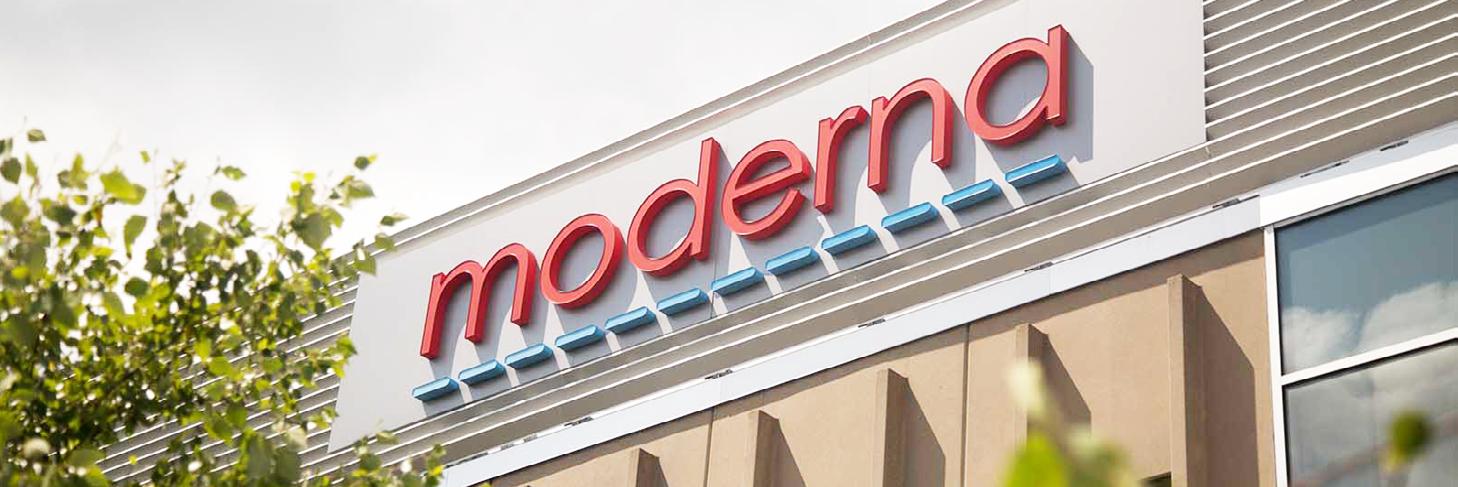
intends to expand its manufacturing capacity elsewhere. In the fall, the company purchased land in Canada to construct a manufacturing facility as part of a similar 10-year partnership with the Canadian government to strengthen the company’s pandemic response.
USA – Moderna CEO Stéphane Bancel stated at the World Economic Forum Annual Meeting that the company intends to build on its exponential growth during the pandemic by expanding its operations globally over the next few years.
In December, Moderna announced a 10-year partnership with the UK government to invest in mRNA R&D in the UK and build an Innovation
and Technology Centre capable of producing up to 250 million vaccines per year. Construction will begin in early 2023, with the goal of producing the first mRNA vaccine there in 2025. Furthermore, the UK Health Security Agency plans to work with Moderna for quick vaccine development, supporting the G7 mission to “get from variant to vaccine in 100 days.” The biotech also
Moderna has also begun construction of similar facilities in Australia as part of a separate 10-year partnership, and will soon begin construction in Kenya. The Australian facility, which will be built in Melbourne, will have the capacity to produce up to 100 million mRNA vaccine doses per year, including those for respiratory infections. The new Kenyan facility will be able to produce 500 million vaccine doses per year. Similar agreements are also being planned for the United States and Switzerland.
TB IS THE SECONDLEADING INFECTIOUS DISEASE KILLER
GLOBALLY, AFTER COVID-19, AND AN ESTIMATED 1.7 BILLION ARE LIVING WITH LATENT TB INFECTION — OR ARE AT RISK OF DEVELOPING TB AT SOME POINT
EGYPT – PTS Investments Holdings Inc. has acquired part of Giza-based EDAM Healthcare Services in an undisclosed six figures deal through its operating company in Egypt. Speaking on the acquisition, EDAM Chairperson, Ehab Kamel said: “PTS direct investments will accelerate the company’s future growth plans. We aim to reach 2.5 million subscribers by the end of 2023.”
He disclosed that the funds will be used to support the development of EDAM digital platform for health care in cooperation with Kemtix Technologies.
The strategic deal between PTS and EDAM will also support the country’s efforts in the digital transformation era in line with the goals of sustainable
development and Egypt Vision 2030. Through the acquisition, the United States-based PTS Investments Holding will deepen its direct investment into the Egyptian market and around the Middle East and North Africa region (MENA).
The firm will collaborate with local and global partnerships and alliances by providing integrated solutions and services to enhance digital community awareness in MENA region. In addition, it will ensure a direct value add within the investment value chain, particularly in the sectors of health, education, transportation, logistics, and energy as well as in technology and applied engineering.
are infected with HPV shortly after the onset of sexual activity. More than 90% of them clear the infection eventually. Cabinet initially approved vaccinating 10% of about 40, 000 girls between ages nine and 14, before rolling out in three years to 70% of the target population.
NAMIBIA – Namibia has approved the procurement and introduction of the Human Papillomavirus (HPV) vaccine to teenagers for the prevention of cervical cancer. HPV is mainly transmitted through sexual contact and most people
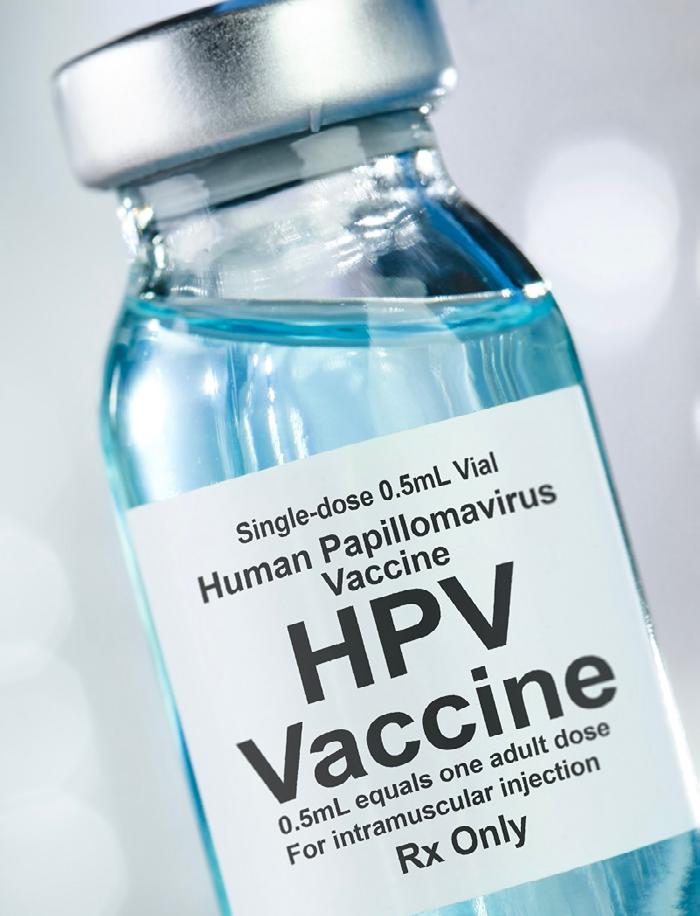
Current estimates indicate that 236 women are diagnosed with cervical cancer every year and 135 die from the disease; among those aware of the disease, low utilisation of screening tests has been reported, this making cervical cancer the second most prevalent cancer in Namibia, after breast cancer. The Centres for Disease Control and Prevention (CDC) states that HPV vaccination is recommended at ages 11–12 but can be given starting at age nine. All preteens need HPV vaccination, so they are protected from HPV infections that can cause cancer later in life.
CDC recommends that 11-12-year-olds receive two doses of the HPV vaccine six to 12 months apart.
INDIA – Chinese billionaire Guo Guangchang’s Shanghai Fosun Pharmaceutical has tapped big buyout funds for Gland Pharmaceutical. It is the controlling shareholder of listed generic injectables maker Gland, with 57.86 percent stake. The buyout will trigger an open offer for an additional 26% of the company. Fosun Pharma acquired a 74% stake in Gland for about US$1.1 billion in 2017 from an investor group including KKR & Co.
Hyderabad-based Gland specializes in injectable drugs such as antibiotics, oncology, and cardiology treatments and has a presence in about 60 countries, according to its website. The manufacturer said it would buy French pharmaceutical firm Cenexi for 120 million Euros (US$126.5 million) as it looks to expand its presence in the European market, enhancing its contract manufacturing (CDMO) offerings in the European market.
The acquisition would provide the company with the technical know-how in sterile forms including ophthalmic gel, needleless injectors, and hormones. Through the acquisition, Gland Pharma also gains access to global clients like Bayer, AstraZeneca, Sanofi, Mylan, Organon, as well as biotech players like Stragen, and Advanz Pharma among others.


USA – The US Food and Drug Administration (FDA) has approved Swiss drugmaker Ferring Pharmaceuticals’ first gene therapy for treating adult patients with bladder cancer. The therapy, Adstiladrin, is for patients with an aggressive form of the disease whose only other option is to have their bladder removed. In a clinical study, the gene therapy was 51 percent effective in total disappearance of all cancer signs.
The treatment, which is administered into the patient’s bladder once every three months, causes the body to produce a protein that fights cancer. Bladder cancer is one of the most common cancers in the United States, with non-muscle invasive bladder cancer (NMIBC) representing about 75% of all such cases. The adenovirus vector-based gene therapy is indicated for adults with high-risk non-muscle
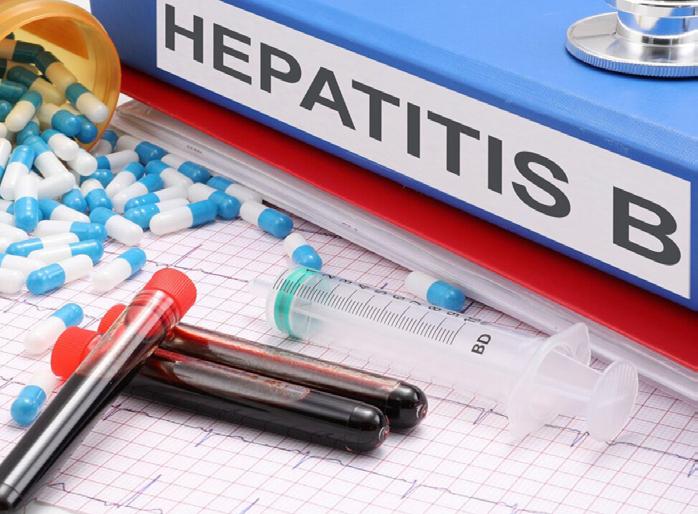
Kenyans, according to the Ministry of Health.
invasive bladder cancer with carcinoma in situ with or without papillary tumors who are unresponsive to Bacillus Calmette-Guérin (BCG) therapy. Ferring expects the gene therapy to be commercially available in the United States in the second half of 2023.
KENYA – Prof. Benson Edagwa a trailblazing Kenyan scientist has developed a medication, taken once every four months, to treat chronic Hepatitis B. Existing chronic hepatitis B drugs must be taken daily for a year or longer or they will not work, however, they are not a cure. They may prevent cirrhosis or liver cancer.
Edagwa and his team chemically modified Tenofovir, one of the existing daily pills, into a formulation called NM1TFV, an injection that is given once but remains active in the body for four months. The new formulation may be a game-changer for people with the disease which affects about one million
Edagwa, a Moi University Chemistry graduate, is best known in Kenya for helping formulate a once-a-year ARV injection in 2020. They tested it on mice carrying human liver cells to support natural infection as it occurs in humans, the University of Nebraska Medical Center said in a statement. Edagwa said the drug has been licensed by UNeMed to Exavir Therapeutics Inc, a spin-off company from his laboratory and that of Dr. Gendelman.
SOUTH AFRICA – Pharmaceutical manufacturer Aspen Pharmacare has secured US$30 million from the Bill & Melinda Gates Foundation (BMGF) and the Coalition for Epidemic Preparedness Innovations (CEPI) to support its plan to make childhood vaccines for Africa. Aspen secured a 10-year agreement with the Serum Institute of India (SII) in August, to bottle four vaccines used in childhood immunisation programmes, which it will market and distribute under its own brand in Africa.
The agreement aims to use spare capacity in Aspen’s sterile plant in Gqeberha, which has lines lying idle due to slower-than-expected demand
for Covid-19 shots and reduce Africa’s reliance on vaccine imports, which leaves it vulnerable in times of scarcity.
Aspen CEO Stephen Saad said the funding from the BMGF and CEPI, which each put in US$15 million to support its partnership with the SII, was an important step in ensuring expanded and enduring access to a pipeline of products that were made in Africa, for Africans. The terms of the deal include a technology transfer and formulation filland-finish arrangement, which grants Aspen the rights to manufacture the products from bulk drug substances supplied by SII.
EDAGWA, A MOI UNIVERSITY CHEMISTRY GRADUATE, IS BEST KNOWN IN KENYA FOR HELPING FORMULATE A ONCE-A-YEAR ARV INJECTION IN 2020.






USA – Johnson & Johnson has announced that it was discontinuing a late-stage global trial of an HIV vaccine after it was discovered to be ineffective at preventing infections.
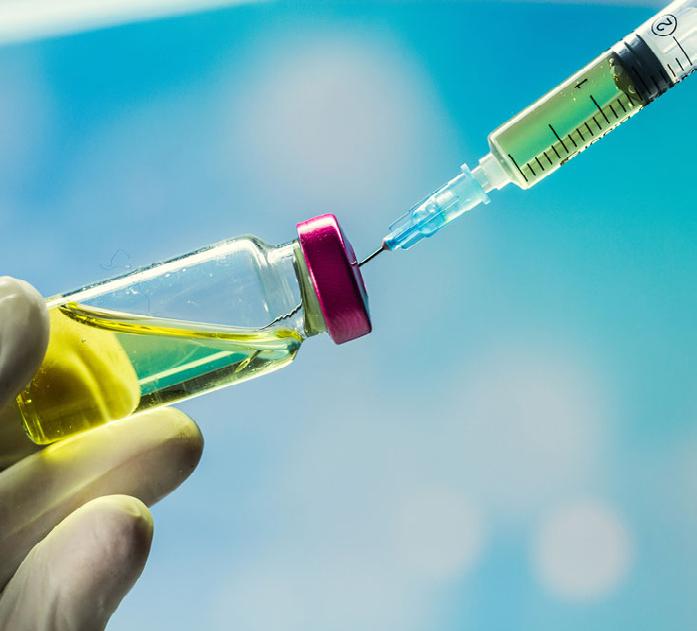
The failure of the trial is yet another setback in the search for a vaccine against a virus that is known to mutate quickly and find novel ways to evade the immune system. The setback comes more than a year after another of J&J’s HIV vaccines failed a study in a population of young women in SubSaharan Africa. According to J&J’s partner, the HIV Vaccine Trials Network (HVTN), the shot was only tested on people who refused pre-exposure prophylaxis – treatment to prevent infections.
The experimental vaccine regimen was based on “mosaic” immunogens— vaccine components featuring elements of multiple HIV subtypes—with the goal of inducing immune responses against a wide variety of global HIV strains. The results were ‘disappointing,’ according to
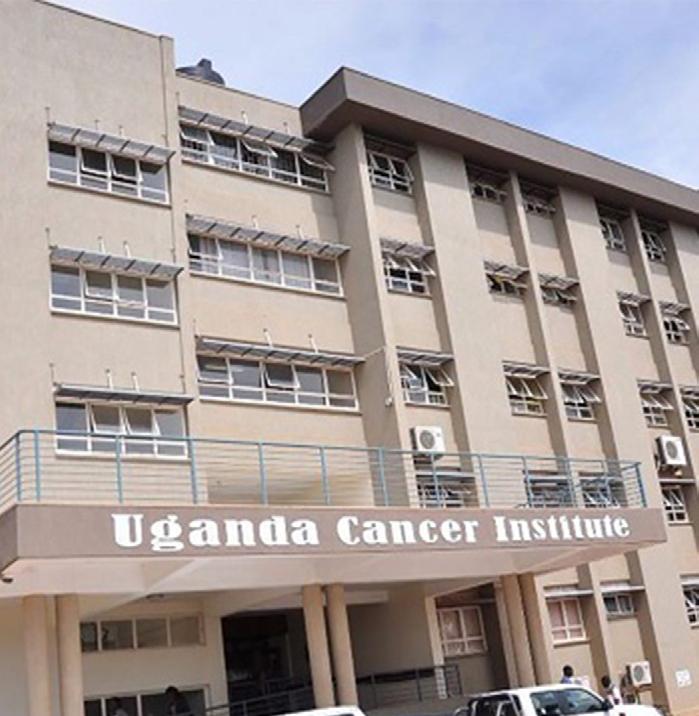
UGANDA – Uganda Cancer Institute (UCI) has partnered with Fred Hutchinson Cancer Center to launch “Cancer Genomics and Genomic Data Science for East Africa,” and additional programs to train East African researchers in cancer genomics and foster future researchers. This program is funded at US$1.25 million over five years and builds upon research that explores the genomics of breast cancer, lung cancer, non-Hodgkin lymphoma, and Kaposi sarcoma.
Additionally, with a total investment of US$1.36 million over five years, a second research training program aims to support masters and doctoral training, prepare fellows to pursue independent research funding, and will include the establishment of a Peer-Mentoring Career Development program. Five Ugandan fellows will serve as principal investigators in one of the Collaboration’s studies.
This program trains specialists who
then train their colleagues in clinical care and research and mentor new oncologists, hematologists, and other healthcare workers through the Adult Hematology-Oncology Fellowship Program, with funding from the African Development Bank to the East Africa
the researchers at the New Jersey-based company, but they were determined to find new treatments. While no HIV vaccine has passed clinical trials, various drugs are used in high-risk populations and patients. Meanwhile, HIV vaccine candidates from Moderna Inc, HVTN, and the National Institute of Allergy and Infectious Diseases (NIAID) are currently being tested.
NIGERIA – The President of Nigeria, Major General Muhammadu Buhari (retd.), has signed the harmonised Mental Health Bill into law. Following the signing of the bill into law, it will be illegal to subject mentally ill persons to forced treatment, seclusion, and other methods of restraint in mental health facilities. The Bill, which was harmonised by the Senate and House of Representatives in 2021, will replace the Lunacy Act of 1958 condemned by mental health experts as “outdated and inhuman”.
The President of the Association of Psychiatrists of Nigeria, Prof. Taiwo Obindo, who confirmed the signing, described it as a great relief to the mental health care and practice in the country.
Some provisions of the National Mental Health Bill include creating a Department of Mental Health Services in the Federal Ministry of Health and a Mental Health Fund.
The Mental Health Bill seeks to establish human rights protections for those with mental health conditions against discrimination in housing, employment, medical, and other social services. Improving care by guaranteeing those receiving treatments have the right to participate in formulating their medical plans and eliminating forced treatment, seclusion, and other methods of restraint in facilities, additionally, expanding community-based coverage.
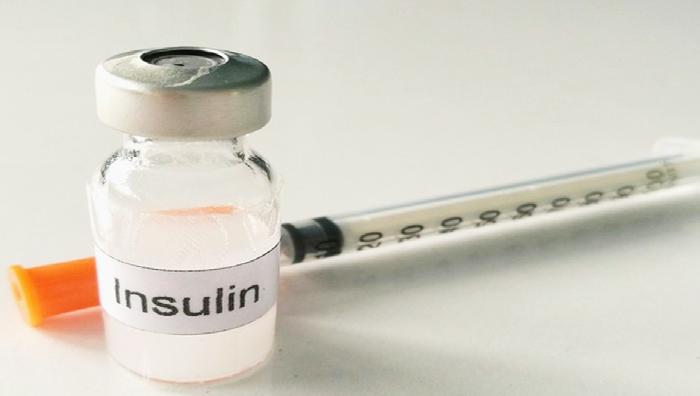
INDIA — Indian pharma major Cipla Limited (Cipla) has expanded its product portfolio with the launch of its new point-of-care medical testing device christened Cippoint designed to be a direct aid in clinical-decision making.

Cipla noted that Cippoint offers a wide range of testing parameters including cardiac markers, diabetes, infectious diseases, fertility, thyroid function, inflammation, metabolic markers, and coagulation markers.
AFRICA – Eli Lilly and Company, an American pharmaceutical company, and EVA Pharma, an Egyptian generic pharmaceutical manufacturer have collaborated to provide affordable insulin in Africa. The partnership will deliver a sustainable supply of high-quality, affordable human and analogue insulin to at least one million people living with type 1 and type 2 diabetes in low- to middle-income countries (LMICs), most of which are in Africa.
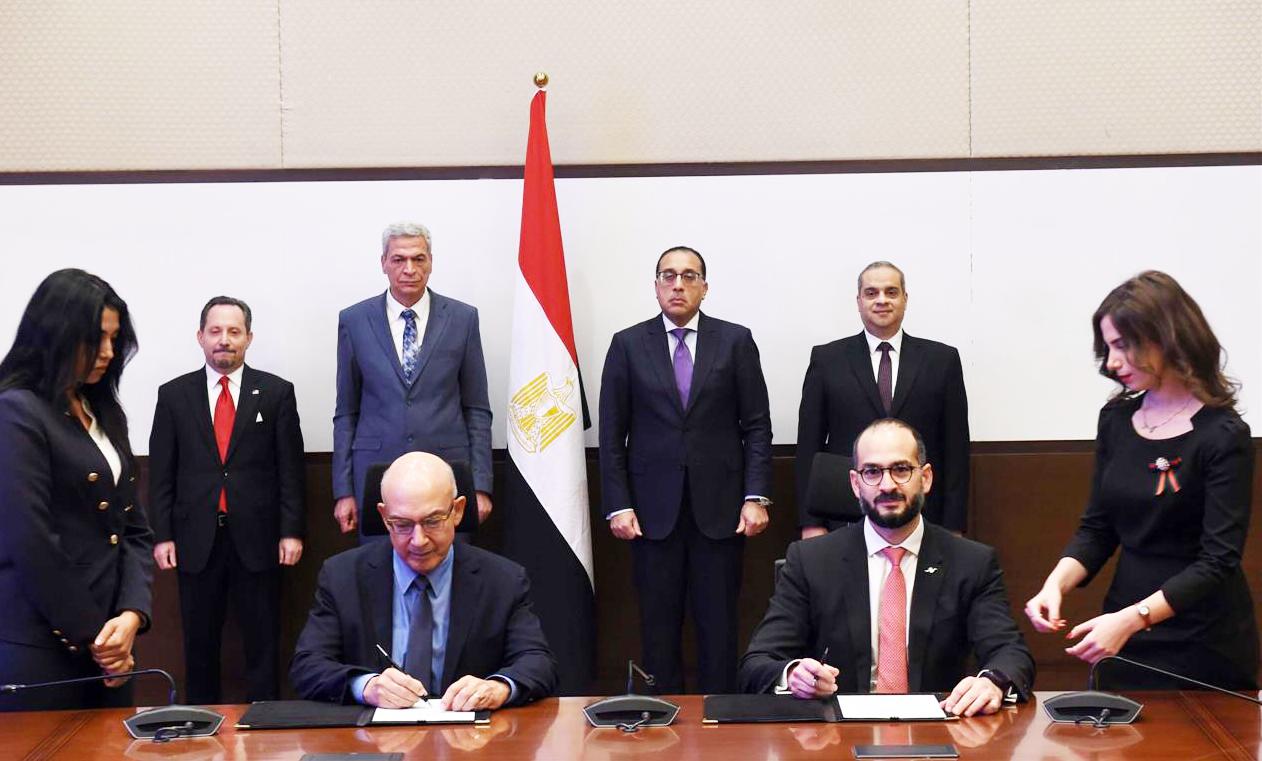
In a first for Lilly, the company will supply its active pharmaceutical ingredient (API) for insulin at a significantly reduced price to EVA Pharma. Lilly will also provide a probono technology transfer to enable EVA Pharma to formulate, fill and finish insulin vials and cartridges –establishing the company as a trusted manufacturer of these lifesaving products in Africa.
EVA Pharma expects to begin distribution of African-made insulin products within 18 months and reach one million people per year by 2030. This collaboration is part of the Lilly 30×30 initiative, which aims to improve access to quality healthcare for 30 million people living in limited-resource settings, annually, by 2030. Lilly will work with EVA Pharma to ensure that their products meet the high-quality standards set for WHO prequalification, which has become a global symbol for safety, quality, and efficacy.
Cipla pointed out that its state-of-theart device is an immunofluorescencebased quantitative analyser that will allow healthcare professionals to identify DNA or RNA targets in 3-15 minutes to support them in generating accurate, reliable, and timely data. Moreover, the Mumbai-based pharmaceutical company stated that its new medical testing product will be retailed at affordable prices in India in an effort to
bridge the current gap in the diagnostic ecosystem across the region.
Cipla reassured healthcare professionals that its easy-to-use device for molecular diagnostics can be used in rural areas, mobile vans, and remote areas with limited infrastructure thus enhancing the patient experience while delivering patient-centered care. Cipla confirmed that its point- of-care testing device is CE IVD approved – indicating the device is approved by the European In-Vitro Diagnostic Device Directive –thus ensuring reliable testing solutions.
THE PARTNERSHIP WILL DELIVER A SUSTAINABLE SUPPLY OF HIGH-QUALITY, AFFORDABLE HUMAN AND ANALOGUE INSULIN TO AT LEAST ONE MILLION PEOPLE LIVING WITH TYPE 1 AND TYPE 2 DIABETES
CHINA – WuXi Biologics, a leading global open-access biologics technology platform, has signed an exclusive global licensing agreement worth up to US$1.46 billion with pharmaceutical giant GSK. WuXi Biologics will receive a US$40 million upfront payment and up to US$1.46 billion in additional costs for research, development, and regulatory and commercial milestones across bispecific and multispecific antibodies, according to the terms of the agreement.
The global Contract Research, Development, and Manufacturing Organization (CRDMO) offering endto-end solutions is also eligible to receive tiered royalties on net sales. It will provide an exclusive license to GSK for one preclinical bi-specific T cell engaging (TCE) antibody and the option of three additional bi- and multispecific TCE antibodies developed using WuXi Biologics’ proprietary technology platforms.
This expanded matrix of top-quality health centers is extending mPharma’s reach from 12 to 25 of Nigeria’s states, bringing increased access to primary care to even more patients. In September 2022, mPharma acquired a majority stake in HealthPlus, the leading pharmacy chain in Nigeria.
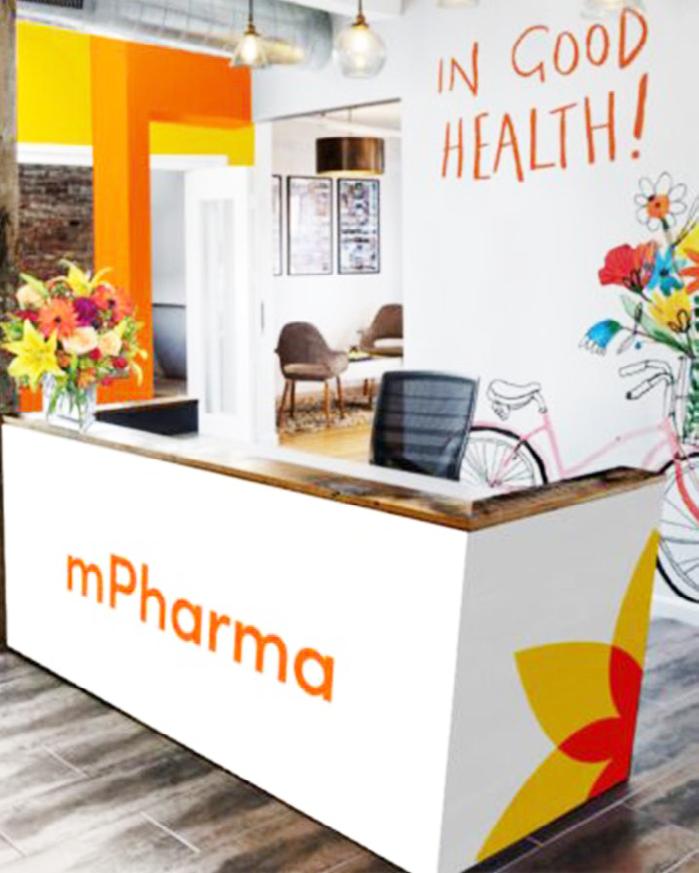
This new acquisition and subsequent investment are increasing its footprint across the continent through its fastgrowing conversion franchising model.
“Under the terms of the agreement, GSK will be granted an exclusive global license for the research, development, manufacturing, and commercialization of a pre-clinical bispecific antibody that crosslinks tumor cells and T cells,” WuXi Biologics said.

The Shanghai-based company further said that the bispecific antibody crosslinks tumor cells and T cells by targeting a tumor-associated antigen (TAA) on tumor cells and CD3 expression on T cells and up to three additional pre-clinical TCE antibodies currently at an earlier discovery stage.
NIGERIA – Pan-African health tech company mPharma is set to invest US$43 million in Nigeria to build out its QualityRx program. This new investment is set to upgrade previous Nigerian facilities – including local community pharmacies – and establish new centers across the country, growing its network from 364 to 1,424 health facilities.
QualityRx. CitiBank and the U.S. Development Finance Corporation have supported this expansion with longterm debt financing. The investment will increase the capacity of the Nigerian healthcare system to provide formal healthcare services to an additional 750,000 patients each month. It will also create jobs for 11,782 healthcare workers. Pharmacy partners will generate cumulative revenues of US$153 million during the duration of the investment. This will especially impact rural areas that have experienced a sustained decline in the doctor-to-patient ratio, currently at 1:10,000.
INDIA – Polybond India Private Limited has entered into a strategic pact with Prejex Inc., a spin-off of Germanybased Prejex GMBH, with an aim to manufacture needle-less injections in Prune for the entire world. Prejex said that its New Drug Delivery System (NDDS) via needle-less injections will be launched in two different models namely the N-Jector Series and the Prejex MultiReusable Device.
The specialty drug delivery developer disclosed that the N-Jector Series will be a single-dose disposable device that is ‘pre-filled’ in an ampoule
while noting that the device can easily be packed and disposed of once the dose has been administered.
“The Prejex Multi-Reusable Device will go up to 30,000 clicks and will be ideal for home use and selfadministration. It will be compatible with pre-filled and non-filled ampoules that can be attached easily via a simple twist,” Prejex announced.
With Prejex’s entry, the pain factor is eliminated as the medicine is delivered subcutaneously through the skin which is an effective and reliable system.

SOUTH AFRICA – National Renal Care has established NRC KidneyKidz to serve the needs of paediatric renal patients in a family-centred, caring environment.
National Renal Care has a network of 71 dedicated dialysis units around South Africa. The unit offers chronic haemodialysis, peritoneal dialysis, and a mobile acute care team on call for inhospital acute therapies. The new unit
uses the advanced digital healthcare technology of National Renal Care’s NephrOn system, which enhances patient safety and multidisciplinary collaboration through electronic medical records.
Children usually need two or three dialysis sessions per week, for three to four hours at a time. This is a considerable amount of time in a family’s busy schedule, so we try to make this unit a home away from home, according to paediatric nephrologist
Errol Gottlich. He added that many children sleep during dialysis sessions but they have fun activities, games, and TV programmes to help them pass the time. A multidisciplinary team looks after patients’ medical and surgical needs, including access to a dietician where needed. This is in addition to NRC’s value-added services, including nutritional guidelines, patient education, and support groups for patients and their families.
USA – GE HealthCare has announced its successful spin-off of GE into a healthcare-focused business, effective January 4, 2023. In an official statement, the company said that it has completed the separation of its healthcare unit, launching GE HealthCare Technologies
Inc. (GE HealthCare), a global leader in Precision Care.
“This precision care strategy enables insights that help clinicians diagnose diseases and determine the most appropriate treatment – delivering the best possible outcome for the patient,”
GE highlighted. The multinational giant further said that GE HealthCare will trade on the Nasdaq Stock Market LLC (Nasdaq) under the ticker symbol “GEHC” while GE will continue to trade on New York Stock Exchange (“NYSE”) under ticker “GE”.
The conglomerate explained that the spinoff of GE HealthCare was achieved by GE’s pro rata distribution of approximately 80.1% of the outstanding shares of GE HealthCare to GE shareholders. GE further disclosed that it is retaining approximately 19.9 percent of the shares of GE HealthCare common stock. In addition, the global company disclosed that H. Lawrence Culp Jr., Chairman and Chief Executive Officer (CEO) of GE and CEO, GE Aerospace, will serve as non-executive Chairman of GE HealthCare.

THE UNIT OFFERS CHRONIC HAEMODIALYSIS, PERITONEAL DIALYSIS, AND A MOBILE ACUTE CARE TEAM ON CALL FOR IN-HOSPITAL ACUTE THERAPIES.
SWITZERLAND – The World Health Organization has appointed Wellcome Trust director Dr. Jeremy Farrar to the position of Chief Scientist, effective second quarter of 2023. As WHO’s Chief Scientist, Dr. Farrar will oversee the Science Division, bringing together the best brains in science and innovation from around the world to develop and deliver high-quality health services across the world.
Also, under Dr. Farrar, Wellcome has taken an increasingly global outlook,
JAPAN – Olympus Corporation has tentatively appointed Stefan Kaufmann as director, representative executive officer, president, and CEO. Kaufmann’s appointment will take effect in April, pending board approval, said Tokyobased Olympus Corp. He will lead Olympus’ expansion in the med-tech field, ensuring the company adapts to clinical needs and requirements.
Kaufmann, a German who has worked at Olympus for more than two decades, will succeed Yasuo Takeuchi, who helped guide the company’s transition from its roots in cameras and other consumer electronics to medical technology.
SWITZERLAND – Roche has appointed Thomas Schinecker as its new Group Chief Executive Officer (CEO), the company has announced, replacing Severin Schwan whom the pharmaceuticals giant has nominated to be its next chairman. The move caps a rapid rise for Schinecker, who joined Roche’s management development program in 2003 and was previously head of the company’s diagnostics division. He will replace CEO Severin
focusing on funding discovery research projects to transform understanding of life, health and well-being, and supporting science-based solutions to address infectious disease, mental health, and the effects of climate change on health. Moreover, Dr. Farrar is a Fellow of the Academy of Medical Sciences UK, European Molecular Biology Organization (EMBO), the National Academies USA, and a Fellow of The Royal Society.
The company plans for Kaufmann to lead the effort to elevate the standard of care in targeted diseases. It expects him to accelerate growth at the company. The board of directors of Olympus intends to formally approve the changes at the end of March 2023. As part of its value creation strategy, it expects the leadership transition to strengthen the Olympus management foundation.
Kaufmann has over two decades of senior management experience. During his time at Olympus, he has been instrumental in driving change in Europe, the Middle East, and Africa (EMEA) region.


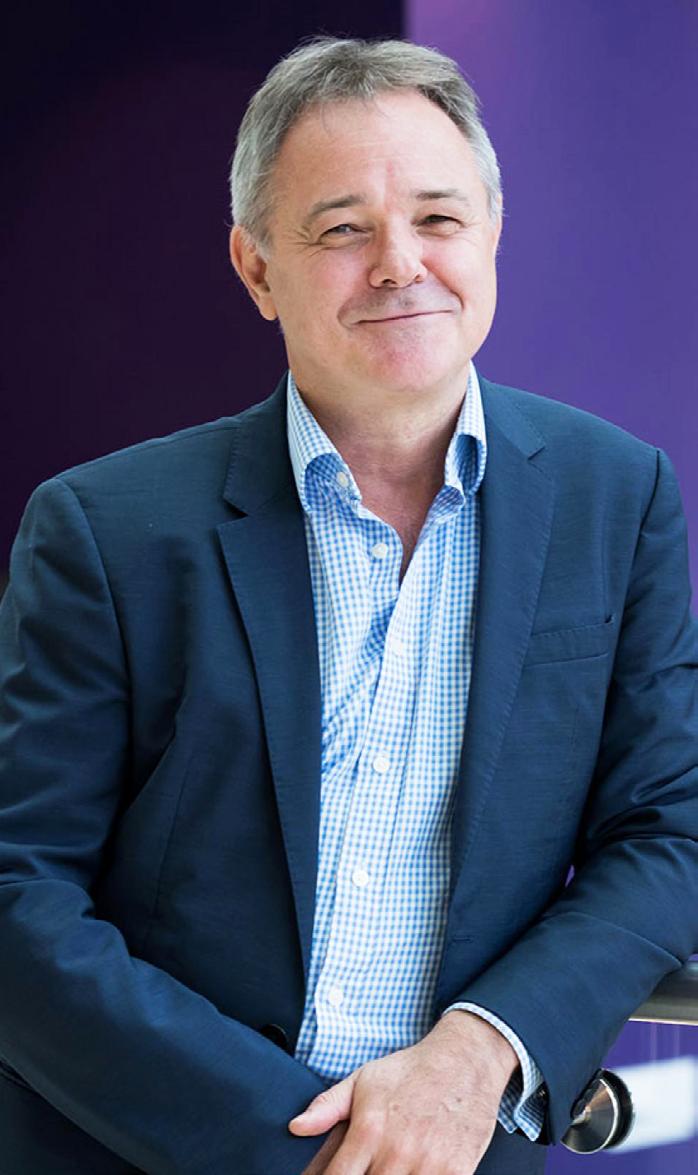
Schwan, who has led a successful yearslong campaign to diversify away from Roche’s traditional focus on cancer. The changes, effective after Roche’s annual general meeting on March 14, 2023, see the end of Schwan’s 14-year tenure as CEO.
Under Schinecker’s leadership, the company’s diagnostics business expanded significantly as a result of its COVID-19 test kits, which included PCD-test kits obtained through Roche’s acquisition of long-term partner TIB Molbiol of Germany. Roche added that Nestle CEO Mark Schneider and Akiko Iwasaki, an Immunobiology professor at Yale University, would stand for election as new board members at next year’s annual general meeting.
Prof. Padmashree Gehl Sampath appointed as special advisor to AfDB’s president for pharmaceuticals and health infrastructure
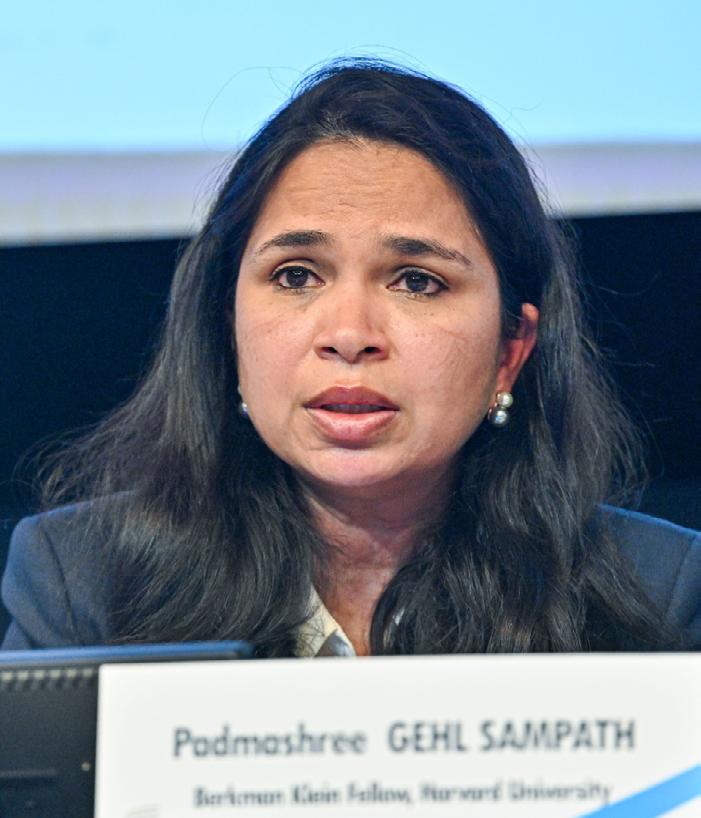
IVORY COST – The African Development Bank Group (AfDB) has appointed Professor Padmashree Gehl Sampath as a special advisor on pharmaceuticals and health infrastructure to the Bank’s president, Dr. Akinwumi Adesina. She will also be leading the technical work related to the setting up of the African Pharmaceutical Technology Foundation, a new pan-African institution launched by the Bank, at the request of Regional Member Countries.
At the African Development Bank, she will provide strategic guidance on pharmaceuticals and health, which have become important focus areas for the Bank in the wake of the Covid-19 pandemic. A well-respected thought leader in the field of development studies and global health, Professor Gehl Sampath is working on some of the world’s most pressing challenges, predominantly from technology, trade, and industrialization perspectives. She is one of the original thinkers on new paradigms for international technology transactions that can better secure global public goods, with a focus on pharmaceuticals and health.
Cadila Pharmaceuticals appoints Ashraf Allam as its new Global COO
INDIA – Cadila Pharmaceuticals Ltd., an Indian multinational pharmaceutical company based in Ahmedabad, has welcomed Ashraf Allam as the Global Chief Operating Officer (COO).

“Ashraf Allam will be based at Bhat corporate office and will report to Cadila’s Group Chairman and Managing Director Dr. Rajiv Modi,” the Ahmedabad-based manufacturer informed in an official statement.
With over 30 years of experience in the healthcare industry, Ashraf Allam is an accomplished and well-regarded business leader who joined Cadila Pharma on November 30, 2022. The energetic entrepreneur served as the Chief Executive Officer (CEO) at the Public Investment Fund prior to joining

INDIA – AstraZeneca Pharma India Ltd. has appointed Dr. Sanjeev Panchal as Country President and Managing Director for a three-year term beginning January 1, 2023. He succeeds Gagandeep Singh Bedi, who will be reappointed in a global position within the group.
With over 19 years of experience in the pharmaceutical industry, he will be taking forward the commitment of the organization in the country. He has progressed through multiple positions at AstraZeneca in India, Indonesia, Asia Pacific, Singapore and the United Kingdom.
the Indian multinational pharmaceutical company. In addition, he is currently appointed as the senior executive advisor for a number of global private equity funds and family offices in the United States, Europe, and the Middle East.
He also serves as a board member for multiple American and European companies in the healthcare sector including pharma, biotech, medical devices, diagnostics, self-medication and technology firms.
Sanjeev is currently the Country President for AstraZeneca Malaysia, where he has been instrumental in transforming the business. He has been driving new launches, innovative patientcentric partnerships and Market Access strategies. He expressed his readiness to collaborate with the AstraZeneca India team to ensure they continue to push the boundaries of science to make health happen for people, society, and planet. Dr. Sanjeev Panchal underscored that expansion, innovation, and patientcentric partnership are at the heart of how the group makes health happen, supported by the company’s diversity and driven by their shared goal.
The 2nd International Conference on Public Health in Africa (CPHIA 2022), was held in Kigali, Rwanda, at the Kigali Convention Centre with African Heads of State, ministers of health, and leading researchers and scientists giving their remarks during three days of official sessions.


The conference, which took place from 13-15 December 2022, was its second edition and aims to build on conversations started at CPHIA 2021, helping to serve as a catalyst for accelerating progress against the continent’s most significant health challenges and building more resilient health systems.
CPHIA 2022 was hosted by the African Union and Africa Centres for Disease Control and Prevention (Africa CDC) in partnership with the Government of Rwanda.
It included remarks from several distinguished speakers including Rt. Hon. Édouard Ngirente Prime Minister of the Republic of Rwanda, Hon. Dr. Yvan Butera, State Minister of Health, Rwanda,and Dr. Tedros Adhanom Ghebreyesus Director-General at the World Health Organization (WHO).
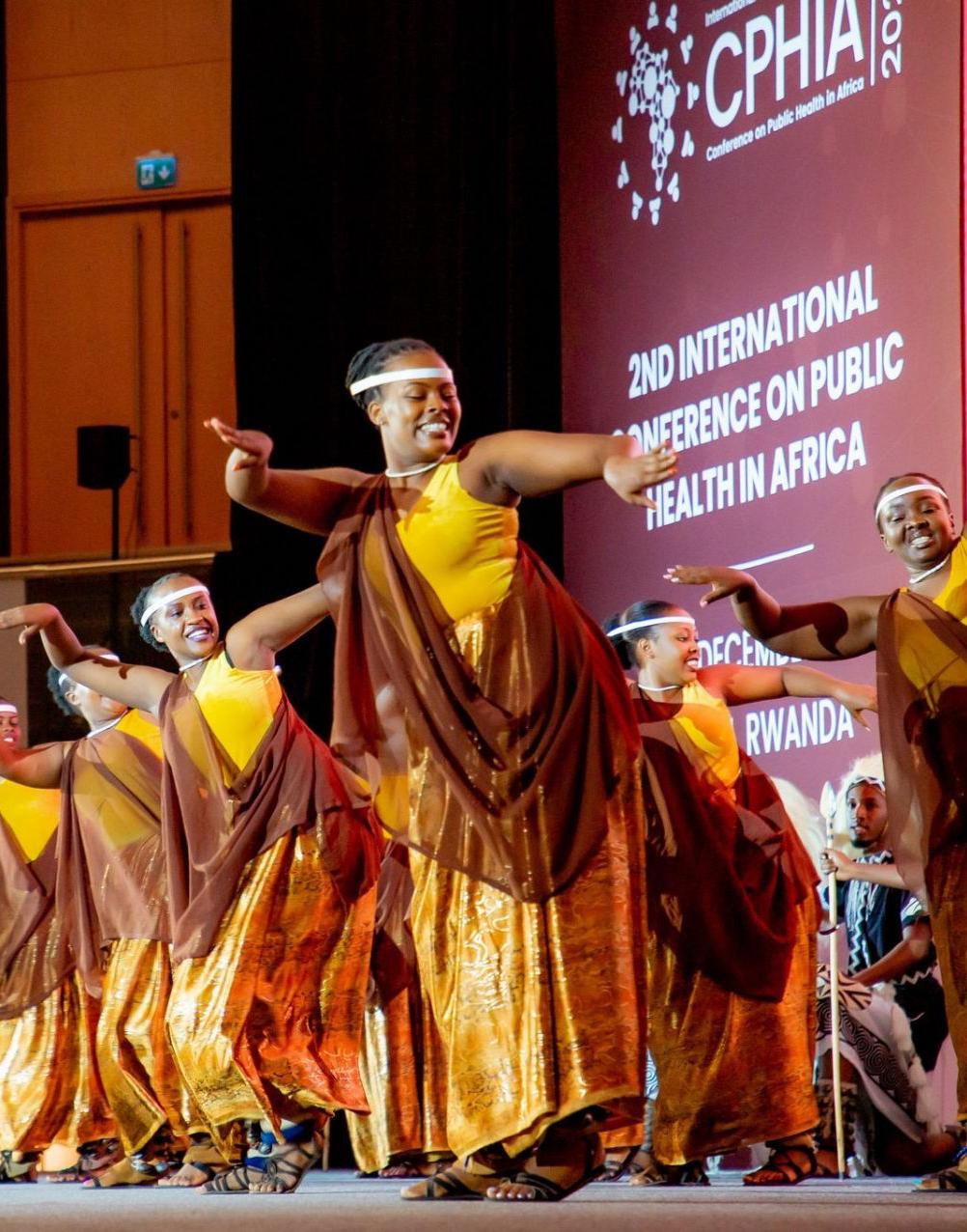


CPHIA 2022 featured nine plenary sessions, 14 parallel sessions, 9 abstract-driven sessions,a high-level ministerial session and opening and closing ceremonies.
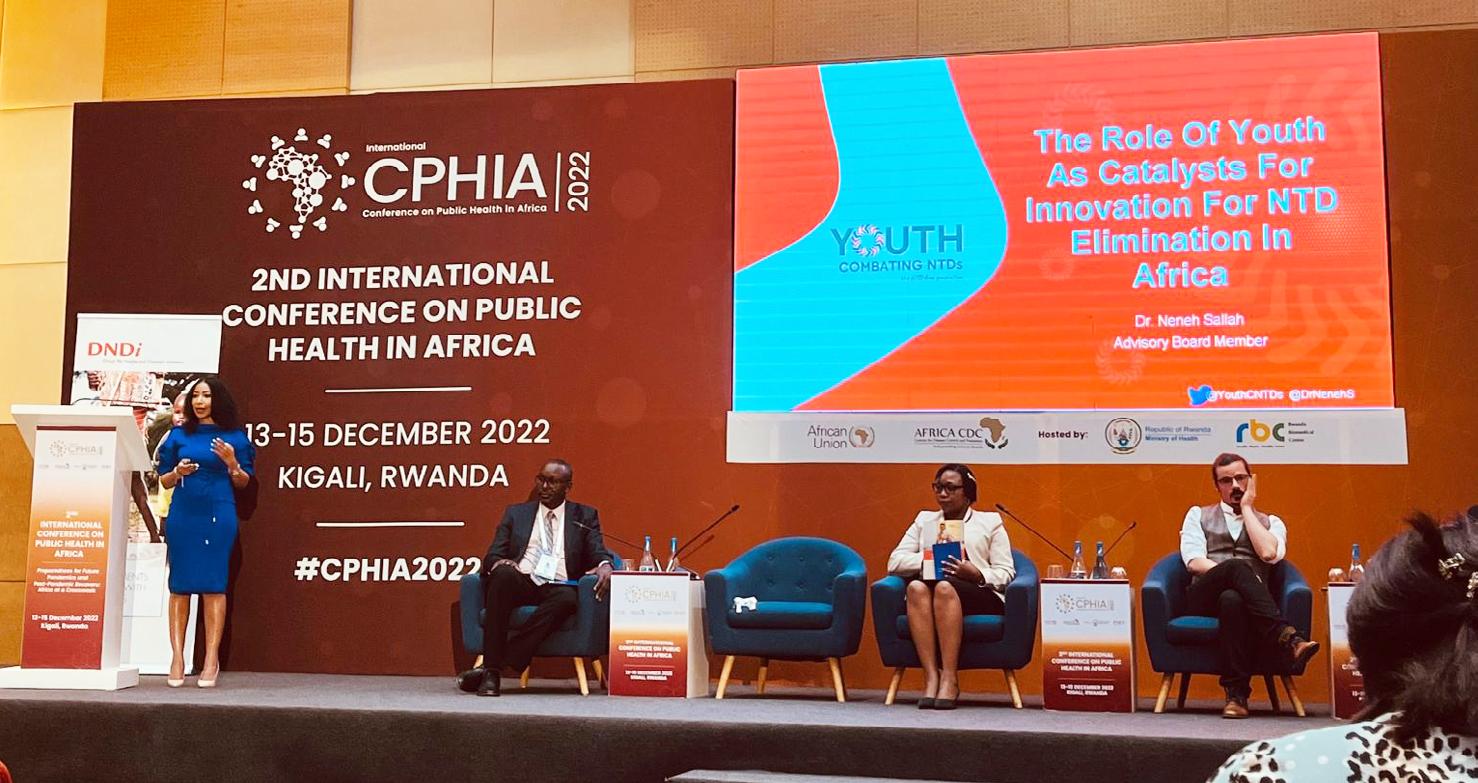

There was also more than 50 official in-person side events in Kigali beginning on 12 December, plus an additional 10 side events held virtually.
“This conference brings essential conversations about Africa to Africa – conversations on topics like pandemic preparedness, increasing local vaccine production, tackling infectious and noncommunicable diseases and African leadership in health,”, said Professor Agnes Binagwaho, CPHIA 2022 Co-chair.

 By ELLY OKUTOYI
By ELLY OKUTOYI

University College Hospital, Ibadan won the best public health institution award in Nigeria on September 2021 in a ceremony graced by the Country’s Head of State, General President Muhammadu Buhari. The receipt of the prestigious award was a testament to the hospital's unwavering commitment to providing excellent healthcare services to its patients over the years.

Behind the hospital’s success is Chief Medical Director, Professor Jesse Abiodun Otegbayo, and his team of 6,887, who are spread across its 80 departments and 9 Units. The well-schooled Professor of Medicine was appointed to the position by President Buhari in January 2019 and has since strived to steer the institution to even greater heights.
Prior to that, Prof. Otegbayo who is also a Consultant Gastroenterologist & Hepatologist had enjoyed a long illustrious career in academia where he taught and served as an undergraduate and postgraduate examiner in universities and hospitals in Nigeria, Cameroon, and Ghana.
In an interview with Healthcare Middle East and Africa (HCMEA) magazine Prof. Otegbayo gives a detailed insight into the hospital’s past and its preparation to restore its position as one
of the top hospitals in the Commonwealth.
“The University College Hospital was established by an Act of Parliament in November 1952 in response to the need for training of medical personnel and other healthcare professionals for the country and the West African sub-region. The physical development of the hospital commenced in 1953 in its present site and was formally commissioned after completion on 20th November 1957. The hospital was initially commissioned with 500-bed spaces but presently the Hospital has about 1,000 beds. The current bed occupancy ranges from 70% - 80%. In addition, the hospital also provides facilities for postgraduate residency training programs in all specialties of Internal Medicine, Surgery, Obstetrics and Gynecology, and Pediatrics,” explains Prof. Otegbayo.
The University College Hospital – Ibadan, is largely run by a Board of Management under the Chairmanship of Mr. Alhaji I. B.B Shettima. The Federal Ministry of Health has one representative, while the public interest is taken care of by Honorable B.S Oluruntoba and Dr. Michael Somoye.
The Nigerian Medical Association is represented by Professor Titus Ibekwe, while Dr. A.O Adeyanju sits in for the Oyo State Government, while the other Health Professionals are ably represented by Professor Grace T. Fadupin. Other members of the board include Dr. A.M Adeoye who doubles as a representative of MAC, and Mr. S.O Oladejo, who is the Director of Administration and Secretary to the Board.
As Chief Medical Director, Professor Otegbayo’s role largely revolves around Managing the Hospital’s Clinical and Non-Clinical operations. He oversees the hospital budgets and ensures that all staff adheres to safety standards and precautions. It is also the duty of the Chief Medical Director (CMD) to ensure that patients are comfortable and staff welfare is given the highest consideration.
Meanwhile, the institution has a Medical Advisory Committee (MAC) Chaired by Dr. Abiodun Moshood Adeoye, which oversees clinical services and ensures that patients visiting the Hospital are given adequate, prompt, and proper attention. The MAC is also charged with the responsibility of reviewing and recommending clinical governance that includes policies, guidelines, standard operating
procedures, and clinical compliance framework for approval by the Board.
Administration matters at the facility have been placed on the shoulders of Mr. Stephen Olubusayo Oladejo, who doubles as the Secretary to the Hospital’s Management Board. Mr. Oladejo’s role involves supervising and coordinating activities and performance of all departments, and training of clinical and non-clinical staff members. His other roles include helping in the recruitment of staff and work performance evaluation, besides ensuring the Hospital complies with all applicable laws and regulations.
Professor Otegbayo intimates that when he came into office as CMD, he discovered most of the structures were in a gory state of despair due to long use and negligence. To live up to its promise as one of the largest public hospitals in the West African region, the facility has significant infrastructure upgrades. Before new equipment arrived, a change in mindset for the entire staff had to be achieved. The Professor adopted “A Vision for Excellence” as his Mantra, while he adopted “Staff Welfare and Patient comfort” as the catchphrase for the administration.
These are the guiding principles of the UCH today. Professor Otegbayo holds monthly consultative meetings with all members of staff
just to keep every team member aligned with the mission of rebuilding and revitalizing the institution.
The journey of revamping the Hospital began in earnest in June 2019, when 48 three-seater stainless steel chairs were procured for use by patients who hitherto had to sit on bare floors and staircases outside the accident and emergency unit and wards in the hospital. A further focus on patient comfort saw UCH’s central toilets on six floors given a facelift courtesy of Eco Bank Plc Nigeria. Fifty new hospital beds were also donated by the office of the Senior Special Assistant to the President on Sustainable Development Goals, on September 5th, 2021 just to ensure patients seeking care at the hospital receive the utmost level of comfort.
On quality healthcare delivery, the UCH commissioned the High Dependency Unit in July 2019. The unit on the third floor was designed and equipped to serve as an extension of the Intensive Care Unit (ICU).
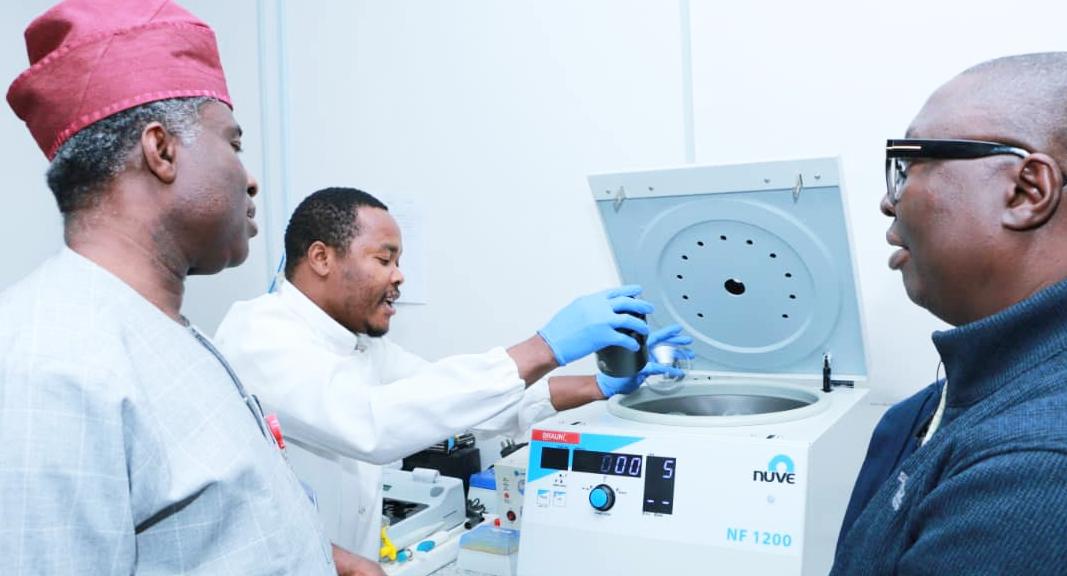
Two months later, the hospital took receipt of seven new top-range anesthesia machines and two interventional invasive monitoring machines and commissioned the main theatre suites changing room, conveniences. The suit even received a cleaner corridor to enhance its capability to deliver quality care to patients. In September of the same year, several state
IN NUMBERS
1,000 UNIVERSITY COLLEGE HOSPITAL, IBADAN'S BED CAPACITY
of art laboratory equipment were procured to bolster the hospital’s capacity in medicine research. The UCH-RAD-AID pictorial archiving communication system (PACS) reporting room in the radiology department was also commissioned at the same time.

The Hospital further managed to procure six brand new vehicles for top management staff in November 2019, while the month of December saw the Hospital acquire anesthetic machines and chairs for adult and children surgery in the ophthalmology surgery unit.
With Covid-19 threatening to paralyze the healthcare system globally, UCH Ibadan made several interventions toward improving its own capabilities in handling complex medical situations. Particular focus was given to the Intensive Care Unit (ICU) and the theatre which both underwent major renovations. Other major investments made during the COVID-19 pandemic include the acquisition of medical equipment such as Braun Nuve nf1200 bench centrifuge and a Jenway 7315 spectrophotometer. Two (nos S70 GE) echocardiographic units under the department of medicine were acquired as well.
One other major developments that the hospital has undertaken under the professor’s leadership include the conversion of the former Multi Drug Resistant (MDR) building (Damien Foundation) located along East Gate road to a 12-
bed capacity infectious disease treatment center and the refurbishment of the chemical pathology laboratory which is now equipped to meet global standards. The FRSC RS 11.3 Oyo Sector Command’s Staff Clinic Laboratory was also commissioned by the CMD on April 13th 2021.
In order to safeguard all these resources and investments, the Hospital’s Management Board has set up an Anti-Corruption and Transparency Unit to ensure prudent use of the resources. Alongside this, an independent financial analyst has been contracted by the hospital to assess issues bordering on procurement, breach of contract, and fraud has been put in place. Various committees have also been put in place to help in the wholesome management of the institution. The staff welfare was put in place in June 2019, the ward management committee, the special duties unit inaugurated in June 2019, and the theatre management committee.
At the height of the pandemic, UCH equipped the Department of Radiology with Uninterrupted Power Supply Station to ensure services run smoothly even when the hospital experiences power outages. The Radiology Department at the University College Hospital, Ibadan stands to benefit due to a huge boost it has received
through its latest acquisition and installation of a 64-Slice computerized tomography (CT Machine) and a Digital Mammography machine to carry out a variety of radiodiagnosis services. This is an innovative milestone in terms of the hospital’s approach to solving health issues related to CT.
Patients can access the following services at the facility: General Brain CT, Brain CT for Trauma, Brain CT for Stroke, Chest CT, Abdominal CT including 3phase liver scan, Abdominopelvic CT, Peripheral Angiography, Pulmonary Angiography, Cerebral Angiography, General CT Angiography, Paranasal Sinuses CT, CT of the Spine and CT Urography.
According to the World Health Organisation, more than 50 percent of cancer patients require radiotherapy as part of cancer care and it is frequently used to treat the most common types, such as breast, cervical, colorectal, and lung cancer.
Nigeria has an estimated population of 200 million people and experiences approximately 115,000 new cases of cancer and around 70,000 cancer deaths per year. The addition of 64-Slice CT Machine to the hospital’s oncology infrastructure will not only serve to improve the capacity of UCH Ibadan but also bridge the gap that is associated with the dearth of machines of that caliber needed to serve the teeming
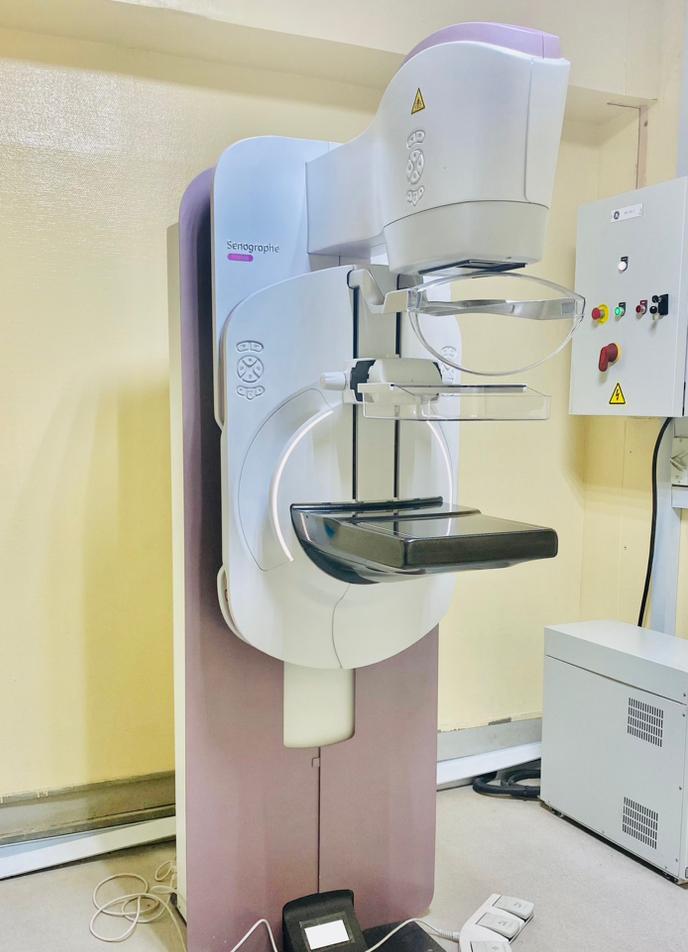
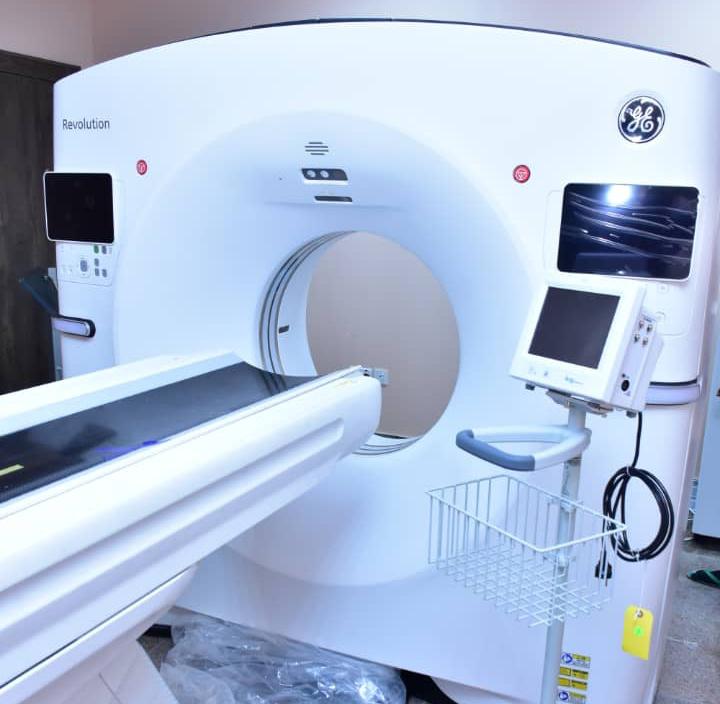
Nigerian population where each machine serves an estimated 25.7 million people.
Oncologic imaging, in particular, stands to benefit greatly from the deployment of Digital Mammography with the latest GT Technology in Mammography at the hospital. Among the services the hospital will be able to render
THE INSTITUTION RECENTLY RECEIVED A FIVE-YEAR FULL ACCREDITATION FROM THE HEALTH OFFICERS REGISTRATION BOARD OF NIGERIA WITH EFFECT FROM 11TH APRIL 2022 IN HEALTH INFORMATION MANAGEMENT ALLOWING IT TO ENROLL MORE STUDENTS.
include, 2D Digital Mammography, 3D Digital Mammography (Tomosynthesis), and Stereotactic Biopsy for early Breast Cancer detection. The fast-tracked imaging is particularly important in the fight against the scourge of breast cancer and improve the survival rates in lieu of the knowledge that 75% of patients diagnosed with breast cancer at Stage 0 have a close to 100% survival rate, while survival rates drop between 20% and 40% at Stage 4.
The Hospital’s Radiology Department has kicked off an on-site training of its staff on Basic Computed Tomography CT application for the newly installed Sixty-four (64) slice General Electric CT Machine to ensure proper system function. The Head of the Radiology Department, Dr. Ademola Adekanmi stated that the training involves Consultants, Resident Doctors, Radiographers, Bio-Medical Engineers, and Nurses.

The UCH Ibadan prides itself in taking a leading role in training qualified healthcare professionals. Since its inception, the school’s main thrust in meeting the broad objectives has been the training of middle-level manpower for health industries in different academic courses. The institution recently received a five-year full accreditation from the Health Officers Registration Board of Nigeria with effect from 11th April 2022 in Health Information Management allowing it to enroll more students. Even as that happens, the institution recently celebrated its sixth matriculation ceremony in January when it welcomed 120 students into the institution to undertake academic programs in National
Diploma (ND) and Higher National Diploma. Even more, its Nursing school is reputed as the best school of Nursing in Nigeria and is recognized for quality education.

In his address to the new intakes, Professor Otegbayo said: “The school’s primary mission and core value is to transmit a body of knowledge and a command of adequate technical skills and to produce graduates with sound minds.” He emphasized that as an institution, “We have zero tolerance for any form of misconduct and vices such as cultism, drug abuse, sexual abuse, cheating, falsification of documents, rudeness to authorities, and inducement of staff for undeserved favours.”
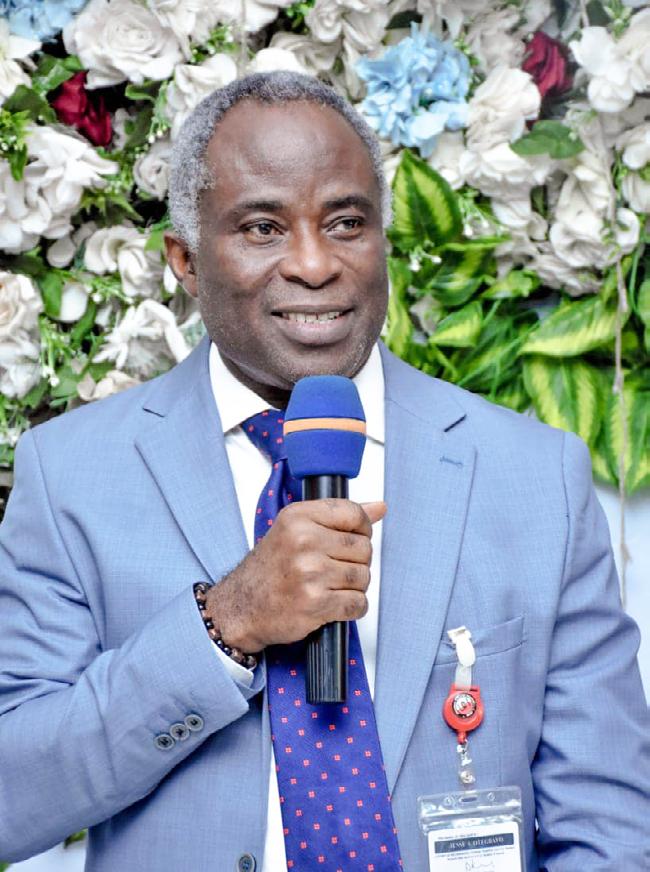
THE PROFESSOR NOTES THAT THE FUTURE PLANS HE HAS DESIGNED FOR THE INSTITUTION WILL LIFT IT BACK TO ITS FORMER STATUS OF BEING NUMBER 4 IN THE COMMONWEALTH: THE HOSPITAL WHERE KINGS AND PRINCES USED TO COME FOR TREATMENT.RIGHT: UCH SCHOOL OF HEALTH INFORMATION MANAGEMENT MATRICULATES STUDENTS DURING THE SCHOOL'S SIXTH MATRICULATION CEREMONY.
The progressive journey at UCH Ibadan has however not been without challenges. Inadequate funding, aging infrastructure with huge maintenance costs, negative perception, and high expectations from the public, top the list of barriers standing in UCH Ibadan’s way to excellence.
There is also a myriad of other challenges ranging from healthcare staffing shortage, industrial unrest, and staff laxity (Civil Service Mentality), which the administration of Professor Otegbayo has had to deal with.

Besides, obsolete healthcare infrastructure and unavailable facilities, power problems, and water shortages add to the shortcomings list. “These challenges may appear daunting but not insurmountable. Our Oliver Twist approach gives one the hope that help will always come. As we all know, Rome was not built in a day. We will continue to optimally explore all avenues and resources at our disposal to ensure that these challenges are managed and eventually surmounted in the nearest foreseeable future.
"Mark my words: Patient’s comfort and constructive engagement of staff and all stakeholders will be explored to move the University College Hospital, Ibadan forward to the glory of God and the benefit Nigerian citizens and humanity in general,” adds Professor Otegbayo.
One of the ambitions that Professor Otegbayo is nursing is to transform the University College Hospital, Ibadan into a quaternary-level hospital offering highly specialized and not widely accessed levels of care. The journey to this status has already begun with the Chief Medical Director

intimating that his hospital is investing in several facilities including a Cardiac Centre, Sickle Cell Centre, Tuberculosis Centre, and Prostatic and Orthotic Service Centres. Acquiring MRI machines, improvement of special diagnostic services and putting up a Bioequivalence and Bioavailability Centre are some of Professor Otegbayo’s administration plans for the next 5-10 years.
The Molecular Laboratory is currently under construction, and when completed will serve as a high-tech laboratory for the diagnosis of Covid-19, Lassa fever Virus, and Ebola Virus among others. Other new services to be launched in the next five years include Organ banking and transplant Centre, separation of medical and surgical accident emergency services, Enhancement of E-communication as well as Federal equipping of the Hospital Laboratories.
Renovation and putting into use, the Akinkgbe Kidney Care Centre as well as the construction of a Hospital Fire Station also remain key in the Hospital’s 5-year plan. The completion of UCH Schools of Post Basic Nursing funded by the Tertiary Education Trust Fund will be given serious consideration.
Plans to extend the General Out Patient Department (GOPD) building are also underway. Through Public-Private Partnerships (PPPs), the Hospital plans to construct residential quarters for the growing population of workers, whose
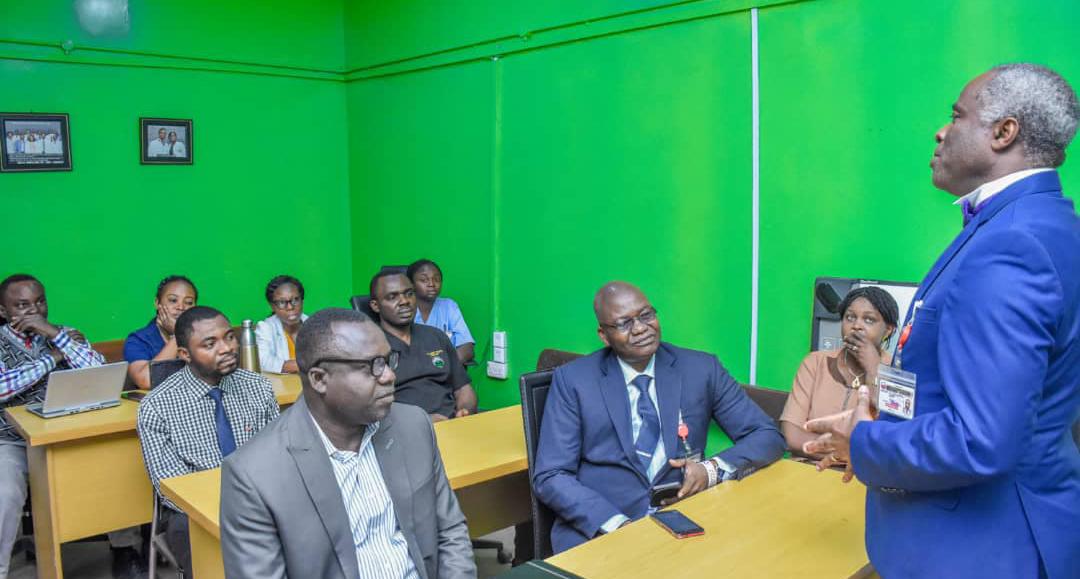
stay within the precinct of the Hospital is essential.
Professor Otegbayo reveals that more emphasis will also be laid on continuous staff development and training, starting with putting up a Hospice and Palliative Care Centre and commencement of training courses. The Hospital also expects to construct a purposebuilt and dedicated building for the National Health Insurance Scheme (NHIS). Community Health Tutors’ Hostel and Demonstration as well as equipping the mortuary with state-of-theart equipment is part of the future plans of the Hospital.
The renal unit at the Hospital will benefit from a planned development of a Liver Transplantation program. Procurement and installation of 125 Slice CT in the Radiology Department and further equipping of the Hospital’s Laboratories will be given emphasis.
The Professor notes that the future plans he has designed for the institution will lift it back to its former status of being number 4 in the Commonwealth: the Hospital where kings and princes used to come for treatment.
He sums it up by quoting Williams Arthur Ward, one of the famous writers in America who said, “Opportunities are like sunrises. If you wait too long, you miss them. I am prepared to take the opportunity of making UCH great again as swiftly as I can,” he concludes. HCMEA

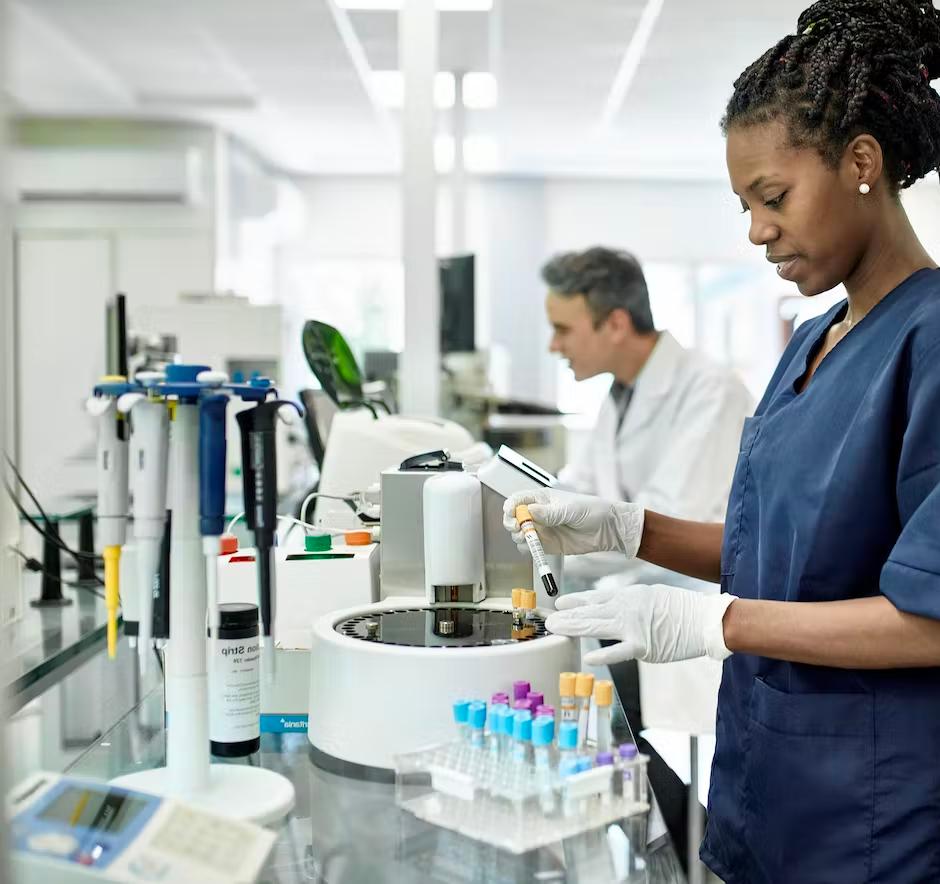

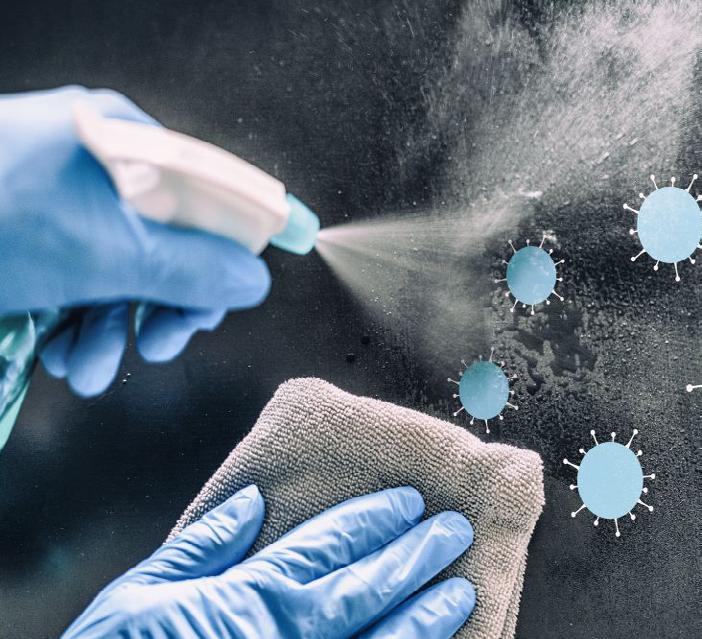
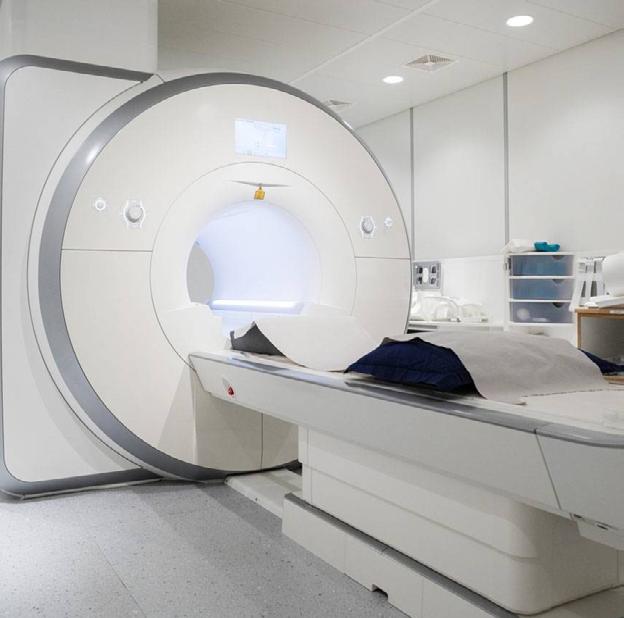




 By JACKIE MBITHE
By JACKIE MBITHE
Pregnancy is a challenging and often lonely journey for women in Sub-Saharan Africa. Access to qualified experts in case of an issue is burdensome, high-quality information often misses, and aspects such as pregnancy-related depression are neglected. To make the whole process a lot easier, Dr Lorraine Muluka, an obstetrician and gynecologist, founded Malaica; a startup that supports pregnant mums in Kenya. The startup takes a holistic approach to the pregnancy journey to help reduce maternal mortality.
“Women have a lot of questions during pregnancy and sometimes don't have the person to ask. We provide moms with their own remotely accessible personal nurse/midwife throughout the pregnancy journey and this nurse/midwife would be the person who would act as their guide during the pregnancy,” Dr Muluka says.
Dr Muluka has been in the medical field for 13 years now. She has a wealth of experience having worked in various hospitals including Kenya’s largest referral hospital, the Kenyatta National Hospital. From her experience in the public sector, referrals happen too late. “By the time the mom is getting to Kenyatta you realize that there's a lot more that could have been done by the peripheral center that was taking care of her.”
Through research, she found there was a gap in information sharing, and the lack of it was costing so lives of many mothers. Her daily motivation is the need to bring quality care to maternal health care. Her being able to make a difference in the sense that she not only treats her patients but also empowers them so that they can take charge of their health gives her the most satisfaction.
The maternal mortality ratio in Kenya is 355 in 100,000 meaning, 355 women lose their lives, per 100,000 live births. A look at West Europe, for example, the figure is 6 per 100,000 live births. “It clearly shows that there's something broken in our system,” she says.
A couple of years ago there was a model focused on antenatal care, which was targeting to reduce maternal mortality by encouraging mothers to have four antenatal clinic visits. Dr. Muluka reveals that the guidelines have
since been updated by WHO to eight. This means that expectant mothers need to have contact with the healthcare giver eight times during the pregnancy journey. “At least a mom needs to have these eight touchpoints, and this has been shown to improve the outcomes for the mother as well as the babies. Four can happen physically as they visit for antenatal care, four can happen online or all eight happen physically,” Dr Muluka explains.
Malaica provides midwives who help an expecting mom to achieve the touchpoints through online conversation. “What we are offering is this partner, this trusted guide during your pregnancy journey,” Dr Muluka adds. The nurse/Midwife acts as a coach to make sure that this mom, who has become her trusted

guide the mothers on having the right kind of behaviours during their pregnancy like exercising and nutrition. She will also be able to identify risk factors early like a complicated pregnancy due to a medical condition or whether she has a twin pregnancy or a higher older pregnancy.
“We're trying to fill in those gaps and also provide support in terms of mental health. Other things come up in pregnancy that honestly cannot be covered in our very short consultation to make a decision. At Malaica we feel that if we can fill in these gaps. Not replace what is currently going on in terms of the antenatal care, but working together with that to ensure that moms are well educated about what's happening in their pregnancy and encouraged with behavioural changes,” Dr Muluka reiterates.
companion during the journey, is attending or having these eight touchpoints and during the touchpoints, they are going to the right facility. The Midwife also ensures that the mother is having the ultrasound done in time and has done all the tests that require to be done. They will

Malaica’s main platform of interaction is WhatsApp. “We realized that more and more people are now using WhatsApp to communicate with their friends, family and even with people from work,” Dr Muluka says. She however highlights that not all mothers have access to a smartphone. According to the latest statistics from the Communications Authority of Kenya, one out of every five Kenyans has a smartphone. But she is optimistic that this will soon change because smartphone manufacturing is increasing globally. “If you've been in this Kenyan market, for example, ten years ago, it was difficult to access a smartphone let alone affording one. But right now, the price of those smartphones is coming down.”
Then there is the issue of network coverage and rates. In the case of a rural setup, there is the issue of electricity and due to poverty,

WE LOOK AT MUMS VILLAGE AS A SOURCE OF RESOURCES FOR BASICALLY WALKING THE PREGNANCY JOURNEY AND UP TO PARENTING. WE FELT THAT OUR MISSIONS ARE ALIGNED IN THAT WE WANT TO MAKE THE PREGNANCY JOURNEY SAFE AND CONVENIENT FOR WOMEN IN KENYA.
Dr. Lorraine Muluka - CEO, Malaica
most mothers cannot afford internet bundles. “We believe that in the coming years there will probably be a phase-out of the feature phones with time. And so, we're leveraging on this as we continue advancing.”
For a mom who wants to join the program, they first signup on their website. Once signed up, she gets a three-week trial to test the product and see whether it resonates with her because there are various elements. They get access to a Midwife, educational content that comes to their phone every day about what to expect in the pregnancy journey, and educational forums with health experts. She can also join a support group with other pregnant mums. All this at a monthly fee of KSh 250 (US$2.03) or a one-time fee of KSh1900 (US$15.39) for the rest of the timefrom the point she discovers she is pregnant, which is at around five weeks, up until the baby's born.
To scale its impact on maternal healthcare in Kenya, Malaica joined hands with MumsVillage, one of the largest pregnancy communities in Kenya with more than 100,000 women. With the new collaboration, Founder and Chair of MumsVillage, joined Malaica as a board member and Co-Founder. “We look at Mums Village as a source of resources for basically walking the pregnancy journey and up to parenting. We felt that our missions are aligned in that we want to
make the pregnancy journey safe and convenient for women in Kenya,” Dr Muluka says.
With the merger, Dr. Miluka now leads a team of young professionals, doctors and people from different nationalities. Collaboration has been key for her and the company’s success post merger. “I think it's having an approach of leadership whereby you can listen to your team. Those are the key things that can build out this team because they also feel as part of the team.”
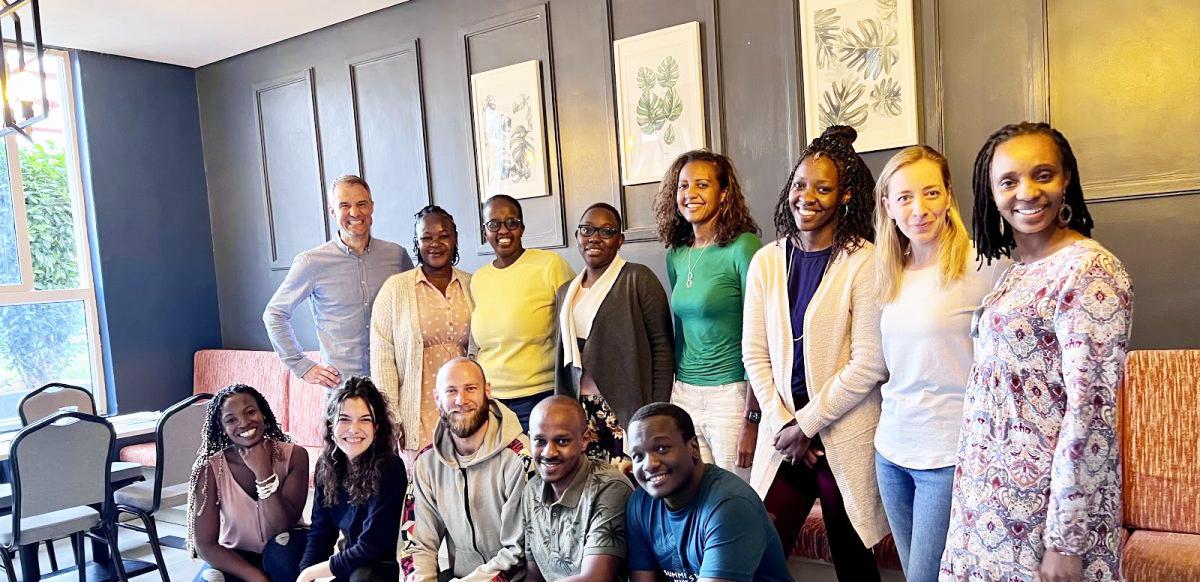
People with the same goal and mission as her are what Dr Muluka is looking for in future partnerships. She looks forward to partnering with more hospital facilities where the mothers get to visit physically. Also with labs, which can be able to provide testing services and ultrasound providers. Emergency referrals and services are a partnership that she is eager to explore in order to reduce the delays that lead to maternal mortality.
In the next five years, Dr Muluka wants to see Malaica being a one-stop place for pregnant moms and also for Malaica to be incorporated into Kenya’s universal healthcare program. She dreams of expanding to the rest of Sub-Saharan Africa to make the pregnancy journey of more mothers safe and convenient. “Nigeria has one of the highest maternal mortality ratios in Africa. We would like to expand there and also in other spaces, not only in Kenya. If this is something that would be able to have an impact in terms of maternal mortality, we are hoping to help achieve it,” she says.
HCMEA: Give us a brief history of yourself and your organization, the Pharmaceutical Society of Kenya.
DR. NYABERO: My name is Dr. Lucas Kimang’a Nyabero. I was born in Kenya, went to school in Nakuru, and Nyeri before I moved to Nairobi, and schooled at Daystar University. After I finished my university education, I worked for AAR, which was in the early 90s when AAR was at View Park Towers.
I then moved to the U.S., where I furthered my studies and graduated from school as a Doctor of Pharmacy.
I am a holder of a Doctor of Pharmacy from Massachusetts College of Pharmacy and Health Sciences (MC PHS) University.
established in 1964. It has a threefold mandate which is to uphold ethics in pharmacy practice and advocate for better pharmaceutical policies in the health sector and lastly, the advancement of pharmacy. We abide by a code of ethics and are governed by a constitution. PSK works hand in hand with the Pharmacy and Poisons Board (PPB) which is the regulatory body for pharmacists in Kenya.
PSK as a professional body is in charge of ethics and we strive to ensure that pharmacists employ best practices in the profession.
HCMEA: What is the link between a doctor and a pharmacist?
By BENJAMIN OPUKOIn the States, I worked as a clinical pharmacist in a hospital for a long time, owned a couple of businesses, and at the same time as faculty in about five universities.
My wife and I are very passionate about innovation and we have a couple of patented products. She's an engineer and in the process of working with patients, we came up with a couple of joint ideas and ways that we could implement to improve patient care.
HCMEA: Tell us about the Pharmaceutical Society of Kenya.
DR. NYABERO: The Pharmaceutical Society of Kenya is the professional body for pharmacists in Kenya,
DR. NYABERO: The link between the doctor and the pharmacist is something that I think is not quite clearly explained and understood. There are two major links. Nexus number one is to make sure that the pharmacist’s role is to ensure the patient is getting effective, efficient, safe, quality, and affordable pharmaceutical care. Physicians are very good at doing diagnoses. But in terms of which medication works best, that's the pharmacist who does that.
The second Nexus is after the doctor has already prescribed the medicine, the pharmacist explains to the patients clearly what they are taking, why they are taking it, and types of food to avoid, the dosage regimen, and how to deal with
Pharmacy as the last step in the healthcare delivery chain plays an important role in the overall well-being of a patient. We speak with Dr. Lucas Nyabero, CEO, Pharmaceutical Society of Kenya on what his profession is doing to ensure everything at this stage of care is patientcentered and absolutely appropriate.
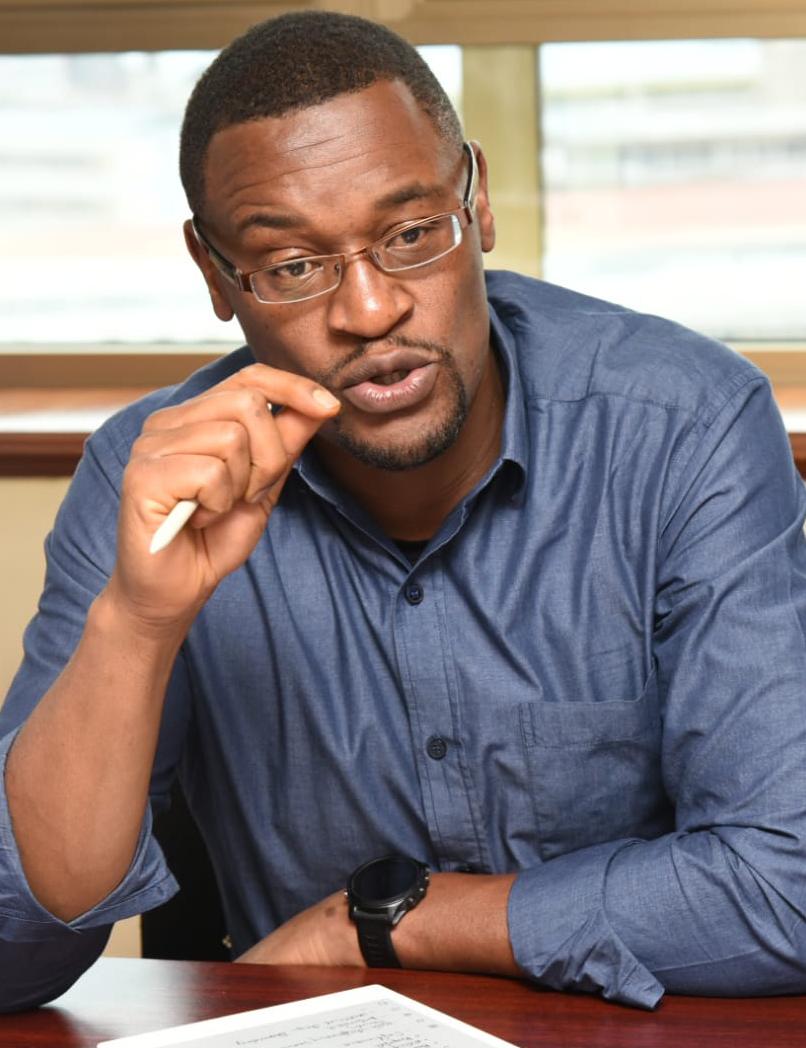
US$ 6B

WE ARE SUGGESTING THAT IF WE USE THE MEDICATIONS CORRECTLY, HIRED ALL THOSE PHARMACISTS WHO ARE NOT HIRED, AND GAVE THEM POSITIONS WHERE THEY ACTUALLY EFFECT WHAT THERAPY GOES OUT, THE ECONOMIC OUTPUT OF THOSE PEOPLE WHO DON'T GET HARMED BY MEDICATION CAN ACTUALLY PAY FOR HEALTHCARE WITHOUT CHANGING ANYTHING ELSE!
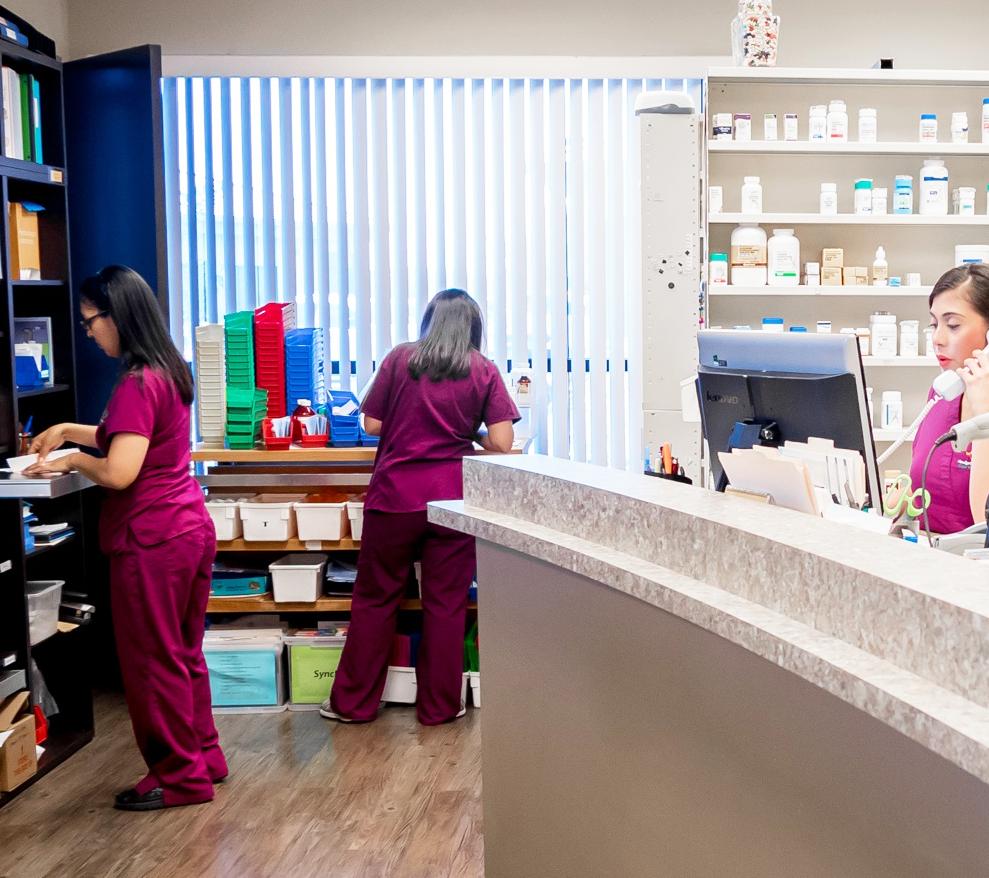
adverse effects if there are any. Pharmacists are the drug experts and that's what they practice every single day. It's very important to listen to the pharmacist.
HCMEA: Is there a way that pharmacists are involved in the manufacture of medicine?
DR. NYABERO: Yes, they are. We have Industrial Pharmacists who work in the various pharmaceutical industries. They are involved in every step of manufacturing, from the point receiving the goods/ raw materials, creating the Standard Operating Procedures, creating the packaging inserts, the actual drug manufacturing process, the tests that are done during and after the manufacturing process, the Quality Control Department, the Quality Assurance Department, and even administration, sales, and marketing. Pharmacists are involved in each and every step of manufacturing medication.
We have pharmacists who are also heavily involved in the regulatory side of things they are called Regulatory Pharmacists. Pharmacists are a crucial part of the intricate process of manufacturing medicines because they consider things like drug properties, interactions, adverse effects, organoleptic aspects, pharmacodynamics and pharmacokinetics, and the overall safety of the patient in the long run.
Here's the other one that is very complex that people don't talk about, disposal. A pharmacist should be involved in all these things from innovation, choice, dispensing, counseling, and disposal. We are still throwing medications in
pit latrines and all this does is when it rains all that medication goes into the water table, and then we end up drinking it. Pharmacists can help in explaining how to deactivate this drug before you toss it. That's the complete continuum of a pharmacist. Pharmacy plays a big role in healthcare.
HCMEA: You mentioned regulatory affairs and I came to realize that pharmacists play a bigger role in determining the types of medicines sold in the market. Please expound further.
DR. NYABERO: Pharmacists could play a bigger role by getting more involved. However, there is not enough of us in that situation. We can change

what we bring into the market. For example, a lot of the drugs we have in this country have been studied in the US and others in the West, and other places. They are perfect drugs for Caucasian males between 18 and 32 years old because those are the ones who do the studies, but not necessarily appropriate for us. Pharmacists can be involved in the actual testing of these medications to make sure that they work with our people in this population and environment.
HCMEA: Do you have any key numbers like the number of people employed by the society?
DR. NYABERO: The society represents about 4000 pharmacists. Not all of them are members of PSK but we are working to bring everyone on board. There are about 4000 registered pharmacists in Kenya. Among those some work in industry, hospital, community pharmacy, academia, and research among other things. Of those ones we have about 40 to 50% who are our members, and a good number of associate members who are mostly students who just graduated as pharmacists and those on internship. We also have quite a number of young pharmacists who are unemployed and considering what they can do for the economy. It’s a very sad fact.
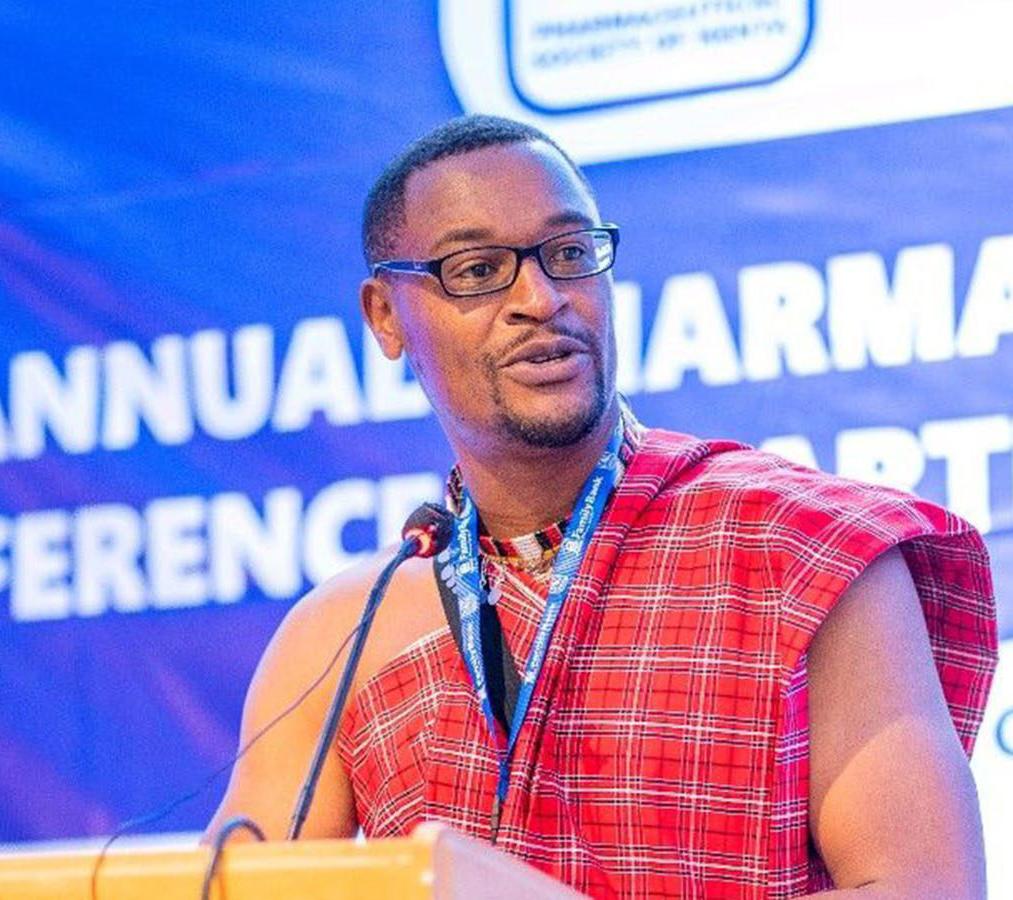
What I'm trying to put across is the U.S. did a study called the economic cost of medication errors, not medical errors, medication errors. In the US, the cost of medication errors is about US$20 to US$40 billion a year. If you extrapolate to Kenya, it's between US$3 and US$6 billion a year. The cost of providing healthcare in Kenya
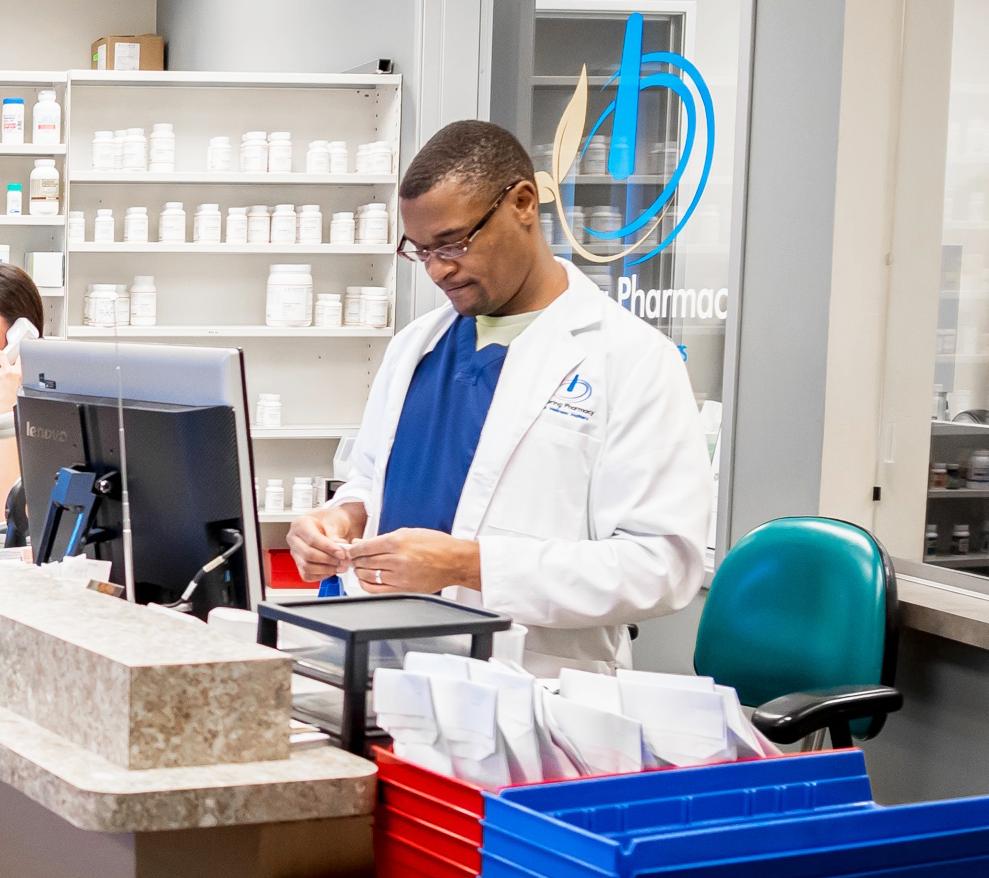
is about US$6 billion a year. We are suggesting that if we use the medications correctly, hired all those pharmacists who are not hired, and gave them positions where they actually effecting what therapy goes out. We are suggesting that the economic output of those people who don't get harmed by medication can actually pay for healthcare without changing anything else! That's what we are suggesting. That's how much we are losing every year.
HCMEA: How does PSK generate its revenues?
DR. NYABERO: Most of our revenues come from memberships and subscriptions from members. We also do events such as the PSK annual scientific conference. We also hold bi-weekly webinars every Tuesday and Thursday where we give presentations and talks curated for the pharmacists and a sponsor can get a slot to either educate the pharmacists on a product they have/ new technology/ a novel drug among others.
HCMEA: Tell us just a brief profile of the founders and key management staff of the PSK.
DR. NYABERO: The founders were pharmacists who decided that we need to have a body that's going to ensure that pharmacy keeps on advancing, ensure that advocacy and the legal system acknowledge and support the care that
we're offering, and highlights the difference we make in healthcare while supporting the members who are pharmacists and ensure ethics are upheld. As regards management, we have a National Governing Council, which is the supreme body, under it, there is the National Executive Committee, to which the CEO reports.

As the CEO, I am in charge of the Secretariat, which runs the programs, communication, finance, and administration. On the other side, we also have a number of standing committees, which include a Legal and Ethics Committee, a Public Relations and Advocacy Committee, an Education Committee, an Investment and Budget Committee, and a Committee of Fellows.
Our governance structure also includes a president and treasurer who are elected by the members. Under the president, we have three vice presidents: The Vice President for advocacy, the Vice President for governance, and the Vice President for pharmacy practice. They all report to the president of PSK, which is the political arm of what we do. We also have 16 branches which cut across all the counties countrywide and all the branches have chairs, treasurers, and secretaries.
HCMEA: What are some of the key values and strategies that have enabled PSK to succeed?
DR. NYABERO: I think it's the passion. The passion to make sure that patients are not harmed. I'll give you an example. Every time I talk to a patient about any medication, I strive to ensure that they understand it well enough
to go and talk to a three-year-old and explain to them what the condition is, what the medication is, what the side effect is, and why they're taking the medication.
Nearly all medication is actually poison. It is how well you use it, just like a car. The idea here is how do we operate medication safely. That is the passion that actually has made us develop love for the common man, to make sure that everyone gets optimum medication care. When you're putting poison into your system, it has to be the right poison at the right dose, the right time, for the right condition.
HCMEA: Are there any other services that PSK offers to its members apart from advocacy and welfare?
DR. NYABERO: Yes, professional advancement. For example, we do training. We have training on advanced family planning, sanctioned by the Ministry of Health, where a pharmacist will be able to give advanced family planning services including counseling clients for family planning and DMPA-SC. We also had training on immunization.
Every twice a week, we have experts who come to talk to our membership about improving their skills and expanding our knowledge base. We are currently in the process of trying to look for scholarships, and exchange programs to ensure that we grow as a body to make sure that our pharmacists are the best they can be and they can serve the patients as well as they can.
HCMEA: Do you have any plans to launch any new services in the next five years?
DR. NYABERO: Yes, we have a strategic plan for the next five years. There are a few things we might launch. There are few studies on how to relieve the congestion in public service hospitals. How do we make sure that the people who will get to the hospital level are folks who really need to be at the hospital level? What are some of those services that can be offered at the pharmacy level? The goal is to ensure that the people who go into the hospital are those in dire need of extra medical attention so that we can use our resources better and decongest our hospitals for better service delivery to the people. With the need and mandate for UHC, nothing is more crucial than resource management.
HCMEA: What are some of the investments around technology that PSK has done?
DR. NYABERO: We are very passionate about
innovations and technology. Last year we launched and held the first-ever Kenya Healthcare Innovation Challenge Awards (KHICA), which was graced by His Excellency the Deputy President of the Republic of Kenya H.E Rigathi Gachagua. We are also in the process of doing a couple of things around data, which are tied to our 5-year strategic plan. We want to create a robust data setup by building from the current data that we have. We want to be the end-all and be-all of all pharmaceutical information in the country. We want to be able to attract anybody who wants to come and manufacture here to come to us first and give them the information we have.
Any changes, any policymaking, and any political statements that are going to be on pharmacy and healthcare need to include the society. We are building a very strong research arm, as I said, a lot of the medicines that we have, have been tested in a different environment. We want to publish. We also want to innovate.

Those are the things we want to do. Innovations such as pharmacogenetics, which is something I practice where we take the genes of a person, and then personalize the medicine, give people the right medication, the right doses the first time, so they don't get harmed, and we don't spend unnecessarily more money than we should spend.
HCMEA: Let's talk a little bit about sustainability. How is your organization adapting to meet the rising need for more sustainable business operations and a better cleaner planet?
DR. NYABERO: We've been engaging. We've had several interviews with citizen TV, and we've engaged UNEP in terms of how we can start changing the way we dispose of meds. We've had
camps and drives where we encourage everybody to bring their expired medicines and we collected almost four tons of medications and conducted sessions on how to dispose of them. We've been trying to do that, but we're looking for a more sustainable, continuous way to accomplish this through education.
The other one is also antimicrobial resistance. We are trying to encourage the public to understand the risks of not monitoring the menace before we get to a point where medications that used to treat pneumonia no longer work. To avoid that walk towards infections coming back to be a major part of the cause of death, we have to talk about these things.
HCMEA: How have you enlightened the public to better handle medicines and avoid keeping them in their house until they expire?
DR. NYABERO: Here's the easy thing. All medications have an expiration date on them. What that simply means is, if the expiration date has come and gone, don't use the medicine. That's so simple.

HCMEA: How has PSK contributed to the national and regional economy?
DR. NAYBERO: A lot! Let me start with the growth of the economy. The correct use of medication will reduce the illness time, and also reduce the advancement of the disease. After a short while, you’ll be ready to go back to work and build the economy. I'll give you an example of diabetes. If you take your medication for diabetes correctly, you don't get down the road where you start chopping toes and everything else because of gangrene. That's a contribution to the public.
The other one is we do free medical camps. We've done free medical camps and education for
WHEN YOU'RE PUTTING POISON INTO YOUR SYSTEM, IT HAS TO BE THE RIGHT POISON AT THE RIGHT DOSE, THE RIGHT TIME, FOR THE RIGHT CONDITION.
both our members and the public. We have talks in schools. We’ve had talks on pharmacy days and pharmacy weeks. We’ve also had several talks everywhere to sensitize people on the importance of using medicines correctly.
HCMEA: What are PSK’s priority areas for investment in the next five years?
DR. NYABERO: One is to build a solid database. We want a solid database for all pharmaceuticalrelated information. Something that we can make data-driven decisions, not emotional decisions.
Secondly, is to get people to trust that local manufacturing is okay, to just believe that the quality in Kenya is also equally as good and it meets the standards that it's supposed to meet. We want to ensure that graduate pharmacists are ready to contribute to the healthcare system and give them the skills and support. As I mentioned earlier on, the nexus of healthcare, the last touch point in the healthcare system is the pharmacy before you start care. We want to make sure that that is solid, that the information you get there is absolutely solid. We want to make sure we reduce the economic cost of medication errors.
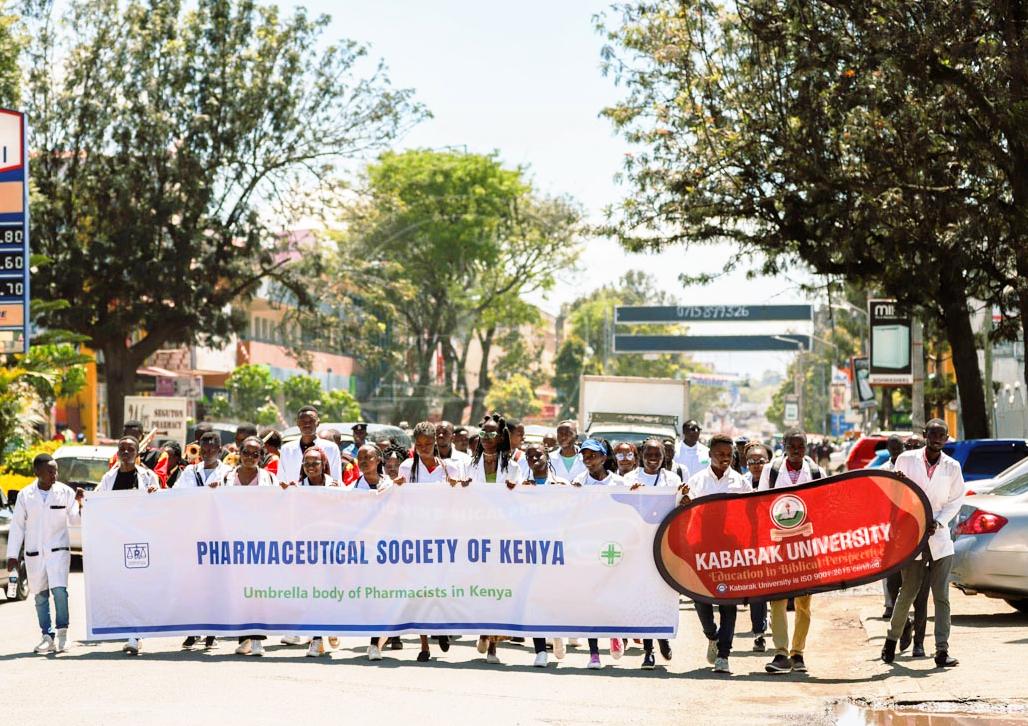
HCMEA: What are the current sources of funding for PSK? Would PSK consider working with external funders in the future?
DR. NYABERO: Yes. I think one of the biggest potential sources of funding and support for growth is collaboration with other healthcare cadres. For example, we'll go and talk to the doctors who are oncology doctors and tell them what we can do. Then when they understand
that that's something we can do, we will work together on how to fund a study. The other way is working with pharma companies to ensure appropriate pharmaceutical care goes to all as well as institutions of higher learning, research centers like KEMRI, hospitals, the Ministry of Health, the Ministry of Education, and other ministries.
We are open to working with international organizations, like the Bill and Melinda Gates, the Tony Blair Foundation, and the WHO to ensure that the pharmaceutical care getting to the patients is appropriate and is actually what is needed, not what is available.
HCMEA: What are some of the opportunities and challenges that PSK sees in the healthcare industry? How do you intend to take advantage of them to enable the pharmaceutical industry and the healthcare industry in general to flourish?
DR. NYABERO: One of the biggest challenges is medication use, which has costs related to the harm that it will cause. This is a hidden cost. That is a cost that really needs to be looked at.
Many people laying in the hospital today are there because they got the wrong medication. That is a big challenge. Several other people die every year because of a case where medications were mixed up. We don't have that data. The challenge is getting that data. When you have data, you compare the data you have, put a mechanism in place, and then look and see what is the outcome of the mechanism that has been put in place.
The other one is the scope of practice. All the healthcare cadres need to be brought together to ensure that each person’s contribution is felt in the healthcare spectrum of caregiving. It is how all these facets of healthcare work together to provide the care that we need. That's a challenge. How we're going to work with it is the collaborations. We're trying to start collaborations. We are doing a lot of it in terms of common communication and sharing what we as pharmacists can do.
This is a declaration. Without proper pharmaceutical care, which means the right medication, people understanding what to do with all that, the side effects, and the interactions, you will not have UHC—it will not succeed without that. You need appropriate optimized pharmaceutical care for the attainment of universal healthcare.




• Reach the healthcare, pharmaceutical and biotech industry in Africa and beyond using one publication and website

• The first magazine of its kind in the region in the healthcare sector in Africa and that is also available in a digital format, providing our advertisers with an Africa-wide and worldwide audience

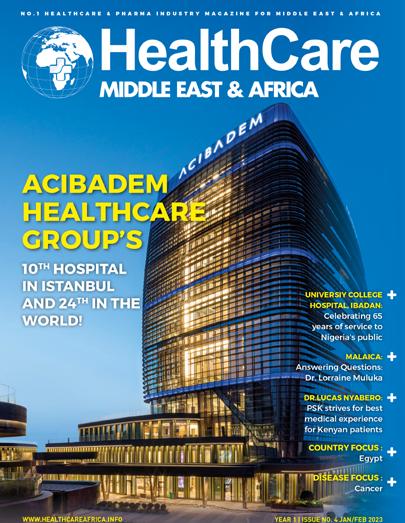


• The magazine and website are read by key decision makers with direct responsibilities for purchase of new technologies, products and services across Africa and globally.
• HealthCareAfrica.info is the best read and visited healthcare, pharmaceuticals and biotech news website in Africa.

IMPORTANCE as government SUPPORT

Egypt is the most populous country in North Africa and 2nd most populated country in the Middle East and North Africa region with over 100 million people. It ranks 14th in the world in terms of population, accounting for 1.3% of the global population.

The population, which is growing at a 1.8% annual rate, contributes to increased demand for infrastructure and services, including healthcare.
The country has attempted to increase healthcare access in recent decades with significant strides. The most glaring milestone is a generally healthier population enjoying longer overall life expectancy, which has increased from 64.5 to 70.5 years over the past two decades. The journey of healthcare transformation has not been a smooth ride either because of numerous obstacles, a good example being the 2011 Arab Spring which had cataclysmic effects on healthcare provision in the country.
In 2014, Egypt adopted a new constitution that emphasizes health as a fundamental human right and commits to expanding coverage and access to quality services for all Egyptians. In 2018, the Egyptian government focused on providing Universal Health Coverage through the Universal Health Insurance Law. It intends to restructure the system by providing coverage to all citizens and making health care more affordable. The new law is being implemented in six stages, with the goal of encompassing all states by 2030.
A national emphasis has also been placed on public health interventions to improve all health indicators. These initiatives have received international acclaim, and Egypt continues to receive humanitarian aid from a variety of organizations around the world to improve public health. However, there are still significant challenges facing Egypt's healthcare system
with the disease burden worsening a situation that is already compounded by equity and social injustice. Lifestyle diseases form the bulk of the disease burden and collectively they contribute negatively to the citizenry through loss of independence, years of disability, or death, and impose a considerable economic burden on health services. Non-communicable diseases (NCDs) are the main cause of death estimated to be over 82% of total deaths in Egypt.
Mental health and substance use are becoming one of the most serious and rapidly growing phenomena in Egypt. A 2018 report by the Ministry of Health and Population showed that one-quarter of Egyptians have mental health problems. According to the report, there is a high prevalence of depression and anxiety disorders, with nearly 44% of the population experiencing mental health issues. Around 31% of Egyptians suffering from mental health conditions "suffer from depression linked to substance abuse." Mental health progress is hampered by a lack of mental health awareness and high treatment costs.
According to the World Health Organization's most recent data, Egypt had 445,000 physicians working in the country in 2018, nearly five doctors for every 10,000 citizens. That ratio is too low by regional standards when compared to Saudi Arabia's 26 physicians per 10,000 people, Jordan's 23, Iraq's and Morocco's seven, and Turkey's 17. Brain drain further compounds the already dire situation causing concern that the quality of healthcare in the country could deteriorate further. The Economist reported that there were fewer than five doctors for every
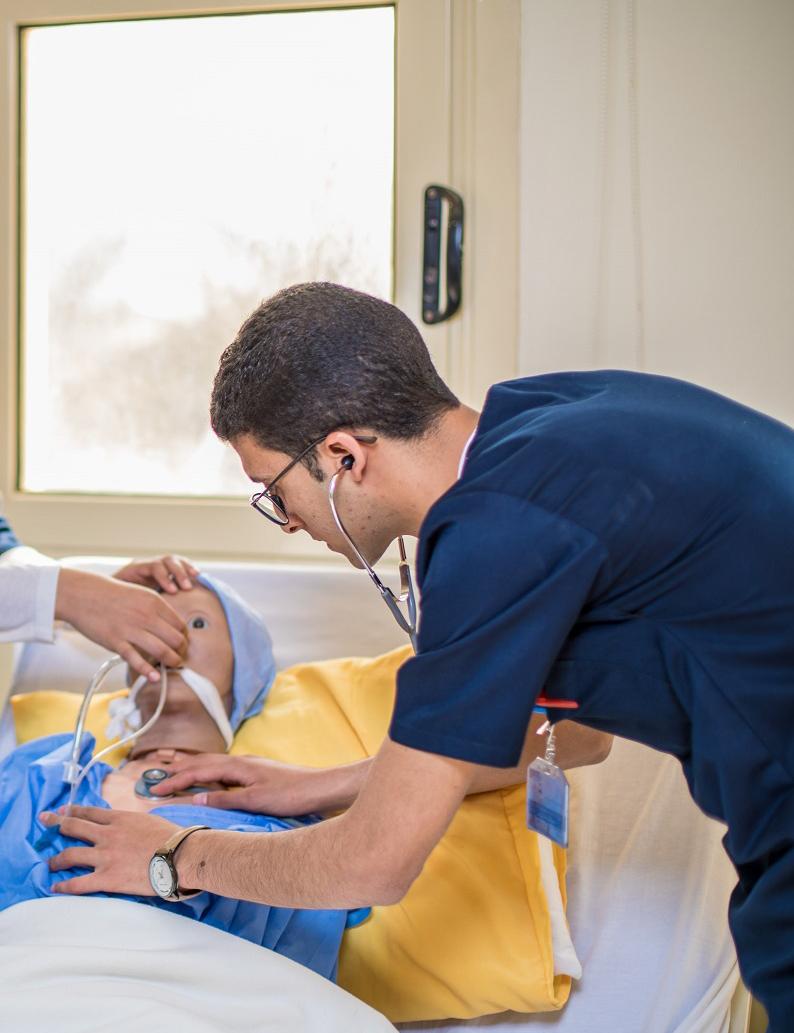
With government support gradually declining, the health sector in Egypt has become even more attractive to private players who have trooped to the scene to fill the gap. Although opportunities abound, challenges still exist, and investors have to get their strategy right if they are to have a chance of succeeding.
By BENJAMIN OPUKO
10,000 people in 2018, compared to 11 per 10,000 in 2014. During the same time period, the number of doctors working in public hospitals fell by onethird. According to a mid-2019 study conducted by the Supreme Council of Universities and the Technical Office of the Egyptian Ministry of Health, only about 82,000 — or 38% — of Egypt's 213,000 registered physicians are still in the workforce.

COVID-19 exposed the weakness in Egypt’s healthcare system. To many, it was ironical that the country with the largest population in the Arab region and one of the region's most prolific medical schools has one of the region's lowest physician-to-population ratios. The Egyptian Centre for Economic Studies (ECES), links the country’s significant shortage of healthcare personnel in Egypt to doctors emigrating.
Approximately 7,000 doctors left Egypt to work elsewhere during the first wave of the pandemic, while 400 died from Covid-19. Many doctors have blamed the government for failing to follow the provisions of the 2014 Egyptian Constitution, which require the state to spend 3% of its annual GDP on healthcare. The dissatisfaction on the part of doctors has seen Egypt face an unprecedented wave of emigration, causing concern that the quality of healthcare in the country could deteriorate further.
According to the Egyptian Medical Syndicate, a body that represents the country's doctors, the doctor-to-citizen ratio improved to 9.2 doctors for every 10,000 citizens by March 2022 but remained far below the global average. The syndicate also notes that 11,536 doctors resigned from the Egyptian public health sector between 2019 and March 2022. Though these figures represent less than 5% of all practicing physicians in the country, they have prompted many members of the public to call on the government to improve working conditions and pay for doctors in order to prevent any doctors’ emigration - real or imagined - and any acute shortages that could harm the health system. In response to these public calls, the government has increased the number of Medicine Faculties in recent years in order to graduate more physicians. It has also increased spending on
BETWEEN 2005 AND 2019, THE NUMBER OF GOVERNMENT HOSPITALS IN EGYPT FELL BY 40.7%, FROM 1,167 TO 691. IN CONTRAST, THE NUMBER OF PRIVATE SECTOR HOSPITALS INCREASED FROM 652 TO 1,157, A 77.4% INCREASEABOVE: CLEOPATRA HOSPITALS GROUP, EGYPT'S LARGEST HOSPITAL GROUP AND A PUBLICLY TRADED COMPANY ON THE EGYPTIAN STOCK EXCHANGE
health to EGP 128 billion (US$ 4.32 billion) in the FY 2022/23 budget, up from EGP 108 billion (US$3.64 billion) in 2021/2022, an 18.5 percent increase.
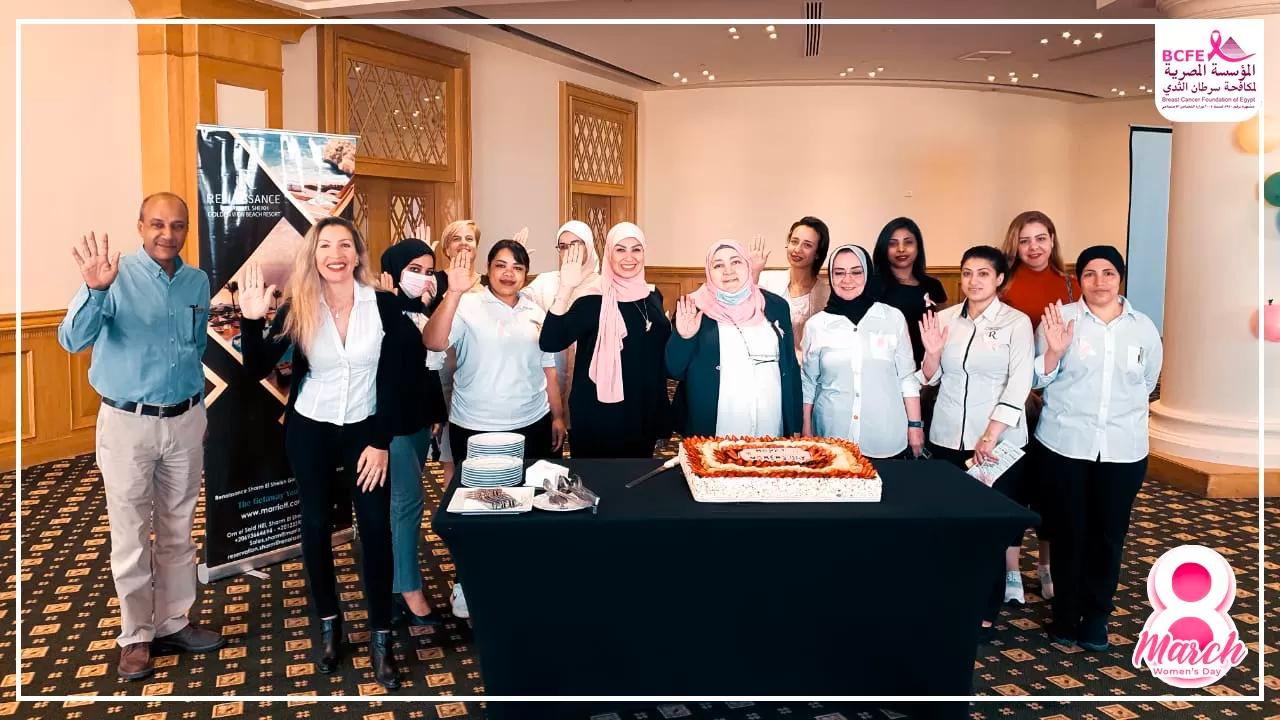
Despite the incremental funding allocation for health witnessed in recent years, Egypt’s healthcare system lags behind its MENA counterparts. In the 2021 Worldwide Health and Health Systems ranking of countries by Statista, Egypt with a score of 67.5 was outperformed by fellow MENA countries Libya (67.7), Tunisia (71.4), Morocco (71.7), and Algeria (72.5). Egypt’s poor performance vis-à-vis its neighbors can be directly linked to meager spending on healthcare. With only 5% of its GDP spent on healthcare in 2018, Egypt has one of the lowest healthcare spending rates in the Middle East and North Africa (MENA) region.
The level of government health expenditure is low, accounting for only 2% of GDP. With government spending on healthcare being extremely low, people still have to pay large out-of-pocket expenses for all types of care. Out-of-pocket health spending is a pressing issue in Egypt, accounting for more than half of total health spending and jeopardizing Egyptian households' economic viability and long-term sustainability.
A 2022 peer review paper on healthcare financing published in the Journal of the Egyptian Public Health Association reported that 60% of primary healthcare financing came from out-ofpocket (OOP) spending. The level of OOP payment also suggests that many of the Egyptians who may be covered under government schemes opt instead for private treatment where they can afford to. While universal health insurance is the talk of the town in Egypt currently, private healthcare groups, which serve up to 40% of the population in both the insurance and out-ofpocket markets continue to play an important role.
In other programs, the International Finance Corporation (IFC), the private sector development arm of the World Bank, is working with the Egyptian government and private firms, to invest in the development of Egypt’s healthcare sector. In 2020, Investment Fund for Developing Countries (IFU) invested DKK 290 million (US$38.9 million) in Humania, which builds and operates private hospitals in Egypt and Morocco, on behalf of the Danish SDG Investment Fund. The investment
is meant to increase capacity and introduce high-quality healthcare in accordance with international standards. When fully implemented, it will add approximately 600 hospital beds and serve 1.6 million patients per year.
Private healthcare players in Egypt are aware of the worrying gap between demand and supply of healthcare services and are eager to assist the government. Cleopatra Hospitals Group, Egypt's largest hospital group and a publicly traded company on the Egyptian stock exchange, is one such entity. Since 2018, the Group has acquired both greenfield and brownfield sites, and it now has six fully operational hospitals, three polyclinics, an in-vitro fertilization (IVF) center, and a rehabilitation and physiotherapy facility.
Cleopatra manages 1,200 beds across all of its facilities. Alameda Healthcare is similarly dominant, with approximately 1,000 beds spread across 128 clinics, four hospitals, a home healthcare brand, and eight centers of excellence. Furthermore, the healthcare system is becoming more privatized, with the government encouraging further privatization. Between 2005 and 2019, the number of government hospitals in Egypt fell by 40.7%, from 1,167 to 691. In contrast, the number of private sector hospitals increased from 652 to 1,157, a 77.4% increase, according to the Central Agency for Public Mobilization and Statistics' 2019 health bulletin.
With privatization on high gear, the number
US$4.32B
of public hospital beds has declined by thousands over the last decade. Comparatively, the number of private sector hospitals increased by 20%, from 942 to over 1100 between 2009 and 2019, increasing their market share from 58.8% to 63.4%. Private beds increased by nearly 70% from 21,000 in 2009 to just under 36, 000 in 2020. Cumulatively, the country currently has a bed capacity totaling 130,000 out of which about 36,000 are available in the private sector, with nearly half of these concentrated in greater Cairo.
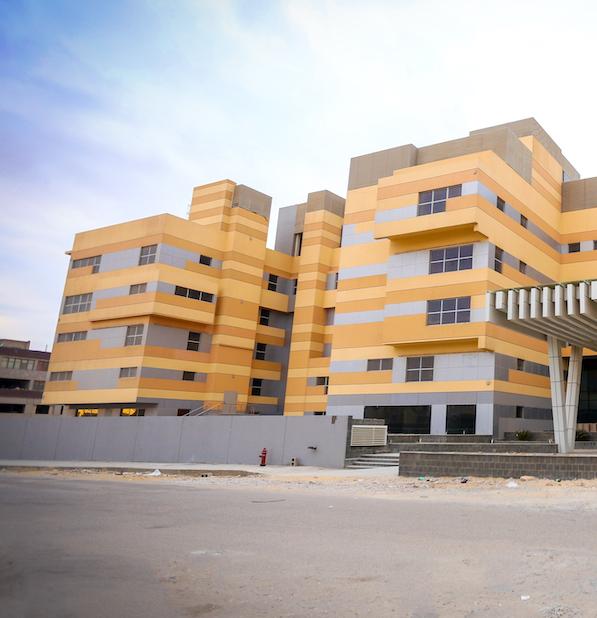

This total number of beds translates to about 1.28 hospital beds per 1,000 people, which is less than half of what planners consider ideal and considerably lower than the MENA counterparts. This significantly low number of hospital beds per 1,000 population pits Egypt in a low cadre against developed countries and even the global average of 2.9 beds/1,000 population, suggesting room for growth. Canadian-based investment management company, Colliers International projects that Egypt will require approximately 38,000 new beds with an estimated investment of US$8 to US$13 billion by 2030. This represents a lucrative market share opportunity for private investors to tap into.
Egypt has one of the lowest healthcare spending rates in the Middle East and North Africa (MENA) region, with only 5 percent of GDP spent on healthcare in 2018. To make up for its low public spending, the country is implementing a wideranging program of reforms to attract privatesector investment and to improve access to quality healthcare services across the country. For instance, the Egyptian government has proposed a number of hospitals affiliated with the Ministry of Health for private sector investment, including the right to usufruct, manage, or develop. Among the hospitals available for private-sector investment include Coptic Hospital, Heliopolis, and Sheraton. This privatization move by the government is meant to attract private-sector investment to the state-owned hospitals as part of a larger plan to open up the healthcare sector to private-sector players.
The offering comes as the government seeks to double private sector participation in the economy over the next three years and exit up to 79 industries. Over the next four years, the strategy aims to raise US$40 billion by selling stakes in state-owned assets to domestic and international investors. An early draft of the state ownership document identified healthcare as a strategic sector in which the government wants to maintain a strong presence, while also encouraging the private sector to increase its involvement.
Government’s push for greater private participation in healthcare is already bearing fruits. According to government figures, the private sector's investment in healthcare in FY2018-2019 reached EGP 9.3 billion (US$0.31 billion), accounting for 42% of total investment in the sector during the fiscal year. Total implemented investments in the private healthcare sector increased 1.5x between 201516 and 2018-19 in nominal terms, totaling EGP 9.3 billion (US$0.31 billion) in private and EGP 9.8 billion (US$0.33 billion) in public investments in 2018-2019 according to a joint report by Dcode Economic and Financial Consulting and The American University in Cairo.
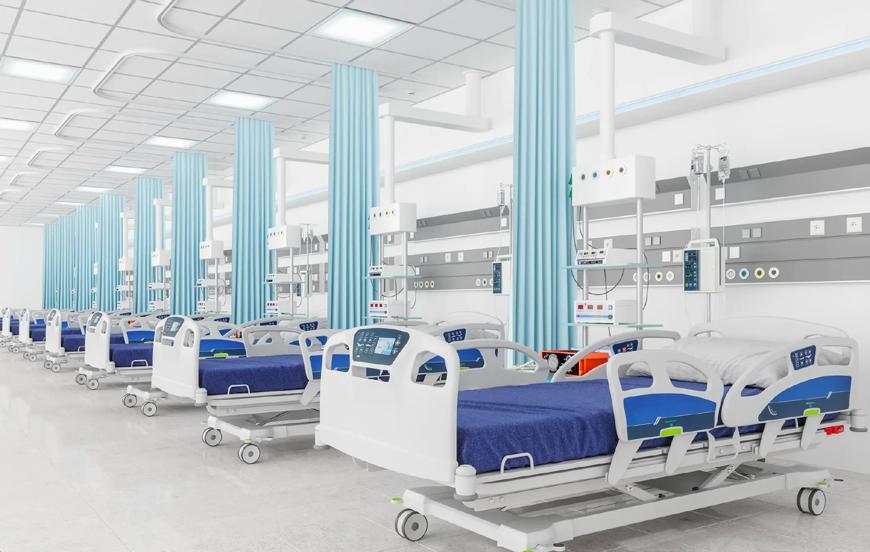
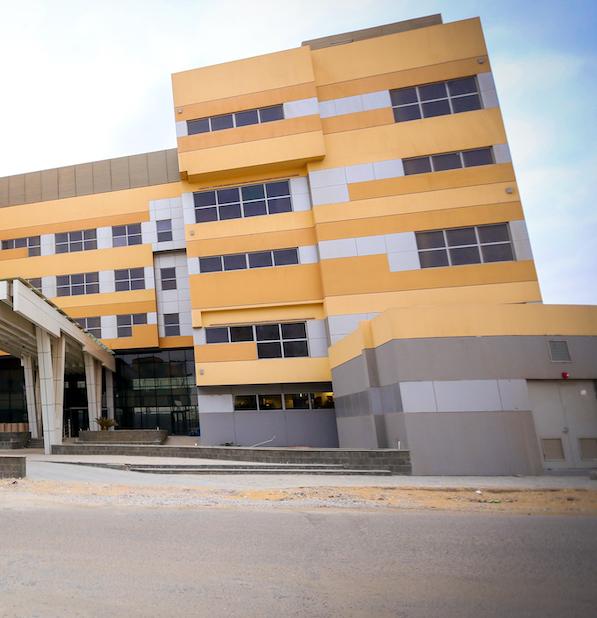
More investments are expected over the next decade, as evidenced by the surge in healthcare Merger & Acquisitions activity in 2020 and the first quarter of 2021. For instance, in 2020, 19 healthcare transactions were completed, making it the most active sector after banking and finance, which had 32 transactions. Some of the top deals included Al-Ahly Capital’s acquisition of El Nada Hospital and Ezdehar Egypt Mid-Cap Fund’s minority stake in Al Tayseer Healthcare Group. Al Tayseer also increased its stake in Mansoura Medical Center while Alta Semper raised its stake in Macro Holding to 80%. Companies are also bidding for the 51.4% stake in Alexandria Medical Services held by Abu Dhabi Commercial Bank. A mega-merger between Cleopatra Hospital Group (CHG) and Alameda Healthcare was also planned, but it recently fell through.
The government has also indicated that private medical providers will play an important role in the World Bank-funded universal healthcare program, which received a US$400 million injection in 2020. The Universal Health Insurance Agency, a new government agency, will contract private hospitals and clinics to provide care to Egyptians alongside public counterparts.
In addition, the International Finance Corporation (IFC), the World Bank's private sector development arm, is collaborating with the Egyptian government and private sector firms to invest in the development of Egypt's healthcare sector. IFC has invested US$400 million in Egypt's healthcare sector since 2007, with plans to invest another US$400 million in the next 2-3 years. The vast majority of investments have gone into services such as hospitals, clinics, and diagnostic centers. IFC is also investing in pharmaceuticals and insurance services.
Egypt has implemented a number of reforms in recent years to encourage start-ups and private investment in healthcare. The country has announced plans to implement universal healthcare coverage by 2032, which is expected to fuel the sector's growth even further and create a flood of opportunities for private healthcare providers and start-ups. The UHC would provide all Egyptians with access to affordable health care by directly subsidizing care for low-income households, which account for roughly onethird of the population, according to the World
EGYPT WILL REQUIRE APPROXIMATELY 38,000 NEW BEDS WITH AN ESTIMATED INVESTMENT OF US$8 TO US$13 BILLION BY 2030.
Health Organization. The UHC has a mandate from the Universal Health Insurance (UHI) Law of 2018 to provide health coverage to citizens with implementation having begun in July 2019. When fully implemented, it is expected that all Egyptians will be covered under the UHI scheme, with a benefits package of quality health services and financial security. Egyptian citizens can obtain insurance through private insurers with government assistance. Because of the high penetration of the insurance market, as well as the rollout of the universal healthcare plan, an investor's potential market in the sector will grow. This ensures the demand for — and return on — healthcare services.
In addition, significant organized investment has been made in infrastructure and the development of new cities that will require medical services. Having more people covered by insurance and new areas in need of healthcare services translates into increased demand, which bodes well for investors' returns-on-investment (ROI) expectations. However, a fundamental issue persists: some governorates continue to be underserved in terms of healthcare services, owing to a lack of talent outside of cities with university medical faculties, and private investors failing to meet ROI targets beyond urban centers such as Cairo and Alexandria.
The push for Universal Healthcare Coverage creates a glut of investment and business opportunities in the Egyptian healthcare market. This has encouraged industry players to be optimistic about Egypt's private healthcare system, which has grown steadily in recent

years. According to the Egypt private sector diagnostic, the universal health care law could be a catalyst for public-private partnerships in hospital construction, diagnostic services, specialist care, information technology, and insurance claim administration. As Egypt moves towards universal healthcare coverage for its 100 million-plus population, the country has become the fastest-growing pharma market in the Middle East and Africa region with a value of US$6.3 billion. Pharmaceutical sales have already increased from US$2.3 billion in 2017 to US$5.2 billion by 2028. According to the MoHP, approximately 80% of pharmaceuticals are manufactured locally, positioning Egypt to become the leading manufacturer and exporter in the MENA region.
The healthcare market continues to grow in Egypt, primarily due to the demand from the rapidly expanding population, which is expected to reach 151 million by 2050. With its large population and prevalence of chronic diseases such as high blood pressure, diabetes, and Hepatitis C, Egypt is a market primed to absorb healthcare services. With the growing population and legislation shifting toward a greater proportion of citizens having access to health insurance, the demand for hospital services and space will rise, creating opportunities for new market entrants. At the same time, Egypt's healthcare infrastructure requires significant investment in both general and specialized medical facilities.
It is expected that the privatization move by the government will attract new investments and particularly make it easier for private investors to enter Egypt’s healthcare space. This represents a significant opportunity for investors in the medium to long term. Attracting new market participants will be critical in meeting new demands caused by changing hospital visit patterns as the government implements universal health insurance coverage. In order to improve the healthcare services in Egypt both in terms of quality and quantity, Egypt needs to increase the beds ratio per 1,000 population and physicianpatient ratio. Lastly, the surging demand for healthcare will create a need for more "Doctor's Clinics" in Egypt. According to Colliers research, Egypt will require approximately two million square meters of medical clinic space by 2030, at a cost of US$1 billion, providing opportunities for developers to develop and sell clinics to doctors/ investors.

FERTILITY RATE: 3.3 live births per woman
LIFE EXPECTANCY (FEMALE, MALE): 75, 70
INFANT MORTALITY RATE: 13.2 deaths per 1,000 live births
CHILD MORTALITY RATE: 16.9 per 1,000 live births
MATERNAL MORTALITY RATE: 37 deaths per 100,000 live births
ETHNICITIES
EGYPTIAN ARAB: 95% OTHER: 5%

AGE STRUCTURE
0-14 YEARS: 33.62% (male 18,112,550/ female 16,889,155)
15-24 YEARS: 18.01% (male 9,684,437/ female 9,071,163)
25-54 YEARS: 37.85% (male
20,032,310/female 19,376,847)
55-64 YEARS: 6.08% (male 3,160,438/ female 3,172,544)
65 YEARS AND OVER: 4.44% (male
2,213,539/female 2,411,457) (2020 est.)
 By BENJAMIN OPUKO
By BENJAMIN OPUKO
According to the World Health Organization (WHO) estimates, cancer is the world's second leading cause of death accounting for nearly 10 million deaths in 2020. In the same year, 70% of the nearly 10 million cancer-related deaths worldwide occurred in low-and-middleincome countries. The disparity is even more pronounced in the case of cervical cancer, with 90% of new cases and deaths occurring in low- and middle-income countries. Although not officially recognized as a pandemic, cancer poses a significant obstacle to increasing life expectancy in every country and experts globally have been working to find solutions to keep the disease at bay. In this article, we highlight the cancer burden and strategies being explored by experts, particularly in Africa, to contain the disease.
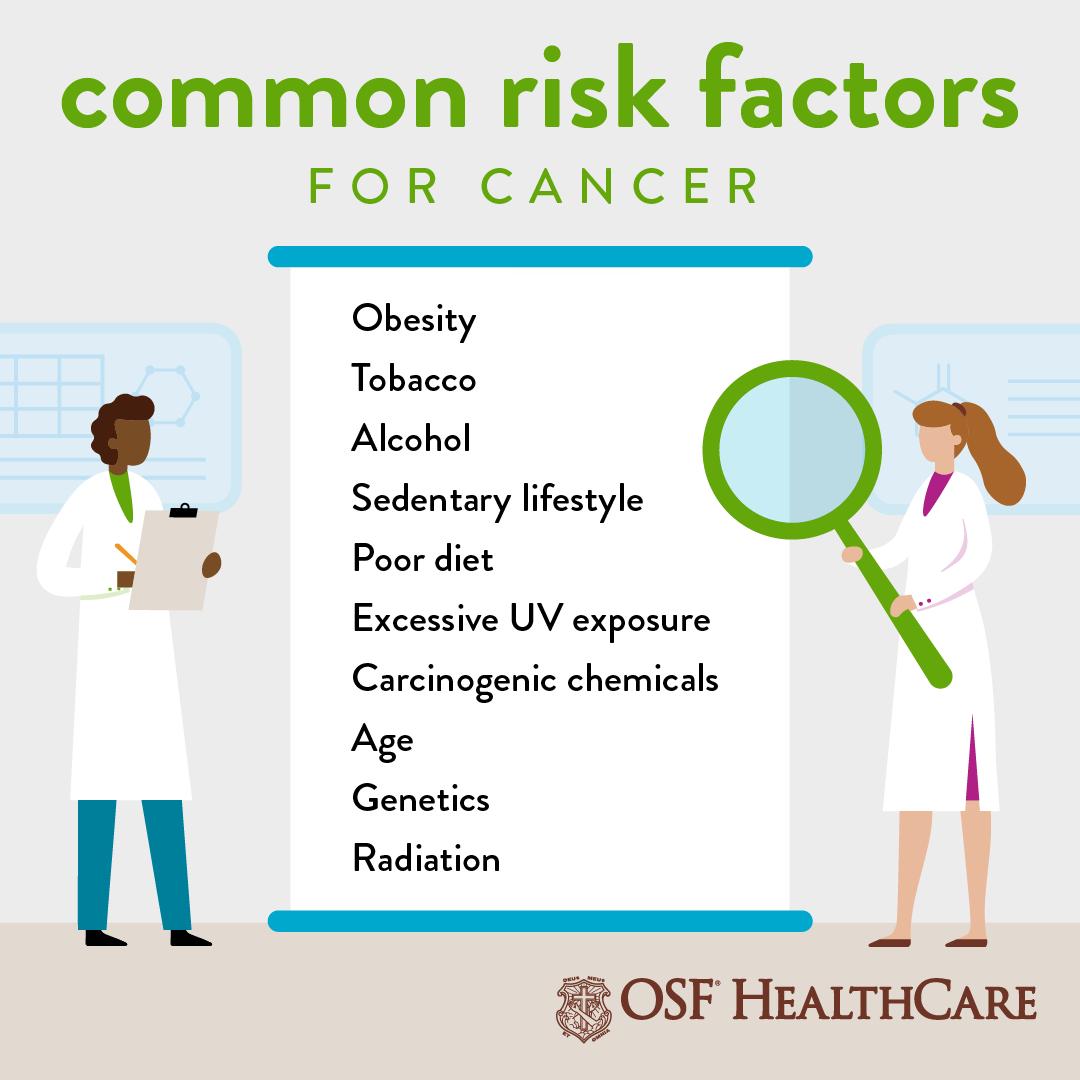
There were an estimated 18.1 million cancer cases around the world in 2020, according to data from the Global Cancer Observatory. Of these, 9.3 million cases were in men and 8.8 million in women. The most common in 2020 in terms of new cases of cancer according to the WHO were: breast (2.26 million); lung (2.21 million); colon and rectum (1.93 million); prostate (1.41 million); skin (non-melanoma) (1.20 million cases); and stomach (1.09 million).
The global cancer burden continues to rise, putting enormous physical, emotional, and financial strain on individuals, families, communities, and healthcare systems. In 2022, the American Cancer Society estimates that will be an estimated 1.9 million new cancer cases diagnosed and 609,360 cancer deaths in the United States. By 2040, the global burden of cancer is expected to rise to 27.5 million new cases and 16.3 million cancer deaths. For SubSaharan Africa, cancer incidence is projected to double by 2040 to more than 1.4 million cases per year, if rapid interventions are not put in place, according to a new Lancet Oncology Commission report.
As cancer spreads like wildfire, it is the lowincome countries that are most affected. In 2020, 70% of the estimated 10 million cancer deaths occurred in low and middle-income countries (LMICs). If nothing is done, the number of premature deaths from cancer is expected to reach four million by 2040. Many LMICs lack
the necessary healthcare infrastructure to adequately treat and care for cancer patients, owing to a lack of diagnostics, medicines, and other services for comprehensive cancer care. In fact, cancer treatment and care are available in less than 15% of LMICs compared to more than 90% in high-income countries, according to anecdotal evidence from Union for International Cancer Control (UICC) members around the world.
According to Globocan data, the aggregate cancer burden in Africa showed 1.1 million new cases, and 711,429 deaths were estimated to have occurred on the continent in 2020. The most prevalent cancers in Africa are breast, cervical, prostate, gastrointestinal, and Kaposi sarcoma in regions with high HIV. Females bear the brunt of breast cancer in Africa, with nearly 186,598 new cases and 85,787 deaths reported in 2020. Cervix uteri (cervical cancer, henceforth) ranks second in Africa with an estimated incidence of 117,316. In males, prostate cancer is leading cancer in Africa with 93,173 cases and 47,249 deaths reported in 2020.
Egypt tops the ranking in terms of new cancer cases (134,632) and deaths (89,042), followed
by Nigeria and South Africa with estimated incidences of 124,815, and 108,168 respectively. The disease is one of the top three causes of premature death (aged 30-69 years) in almost all constituent countries, accounting for one in every seven premature deaths overall and one in every four non-communicable disease deaths.
Cancer's burden has the potential to rise further. With 2040 projections put at 1.4 million cases annually, Africa is forecast to have the world’s largest increase in cancer incidences and deaths in the next 2 decades.
A new Lancet Oncology Commission for sub-Saharan Africa estimates more than one million cancer deaths will occur per year in those countries by 2030 at current trends. Furthermore, the prevalence of childhood cancer in the region is currently at 56.3 cases per million, and it is projected that half of all global childhood cancer cases in 2050 will occur in Africa.
aging populations, increasing adoption of westernized lifestyles, infrastructure challenges, scarcity of qualified staff, a critical shortage of diagnostics, treatment, and prevention facilities, patients who present with late-stage cancer, high treatment abandonment rates, and lack of awareness about cancer risk factors. Many of these existing challenges were further exacerbated during the COVID-19 pandemic, making an already dire situation worse.
Although the situation seems bleak by all metrics, Africa has greatly improved in its metrics on cancer management.
By 2017, 71% of African countries had operational national cancer control programs, up from 46% in 2013, and the oncology workforce has steadily increased, but not at par with the rate of new incidences and prevalence in the continent. For instance, the African Cancer Coalition has brought together more than 100 cancer experts from 13 countries to adopt dozens of cancer treatment guidelines from the United States for use in Sub-Saharan Africa, resulting in practical clinical standards that are harmonized across the region.


Furthermore, recently announced pricing agreements with international suppliers are bringing high-quality cancer treatments to the
A combination of factors can be attributed to Sub-Saharan Africa's growing cancer crisis including infections, environmental exposures,
AFRICAN CANCER COALITION HAS BROUGHT TOGETHER MORE THAN 100 CANCER EXPERTS FROM 13 COUNTRIES TO ADAPT DOZENS OF CANCER TREATMENT GUIDELINES FROM THE UNITED STATES FOR USE IN SUB-SAHARAN AFRICA
African market at less than half of what they were previously.
African governments are increasing their cancer investments. Most have established national cancer programs, and the region now has more than 30 cancer centers. However, large investments in cancer treatment programs are not the best use of resources because treatment is often too late to save lives and cannot meet the ever-increasing demand for cancer treatment. According to the World Health Organization, reducing known risk factors can prevent nearly half of all cancers. Investing in prevention rather than treating late-stage cancer thus makes more sense.
Notably, Botswana, Kenya, and Rwanda have started to provide cancer care in their national efforts to achieve universal coverage of health services. Access to palliative care is expanding in some countries. Rwanda became one of the first African countries to pass a palliative care law in 2011. The law empowered nurses to prescribe morphine to advanced cancer patients. Additionally, the Rwandan law enabled the establishment of a new cadre of home-based care practitioners to provide palliative care and assist patients in managing other NCDs at home. Rwanda is also focusing on cancer prevention, such as cervical cancer, which accounts for approximately 22% of cancers affecting women in the WHO's African region, by expanding
HPV vaccination. Further to that, Rwanda has instituted a health insurance scheme known as the Mutuelle de Santé that covers approximately 90% of the country's 11.6 million people, allowing access to cancer treatment as it moves toward universal health coverage.
Kenya is one of several African countries attempting to make cancer services more accessible through publicly-funded health insurance schemes as the country moves toward universal health coverage. For instance, Kenya's national insurance system took the bold step in 2016 of covering radiation therapy and surgery, as well as four courses of chemotherapy per year, at hospitals across the country, making these services free at the point of care for the 18% of Kenyans covered by the fund.
Further to that, the Kenyan government has managed to set up 10 cancer centers across the country to manage the cancer burden. Four of these are already operational to supplement the existing ones at Kenyatta National and Moi Referral Hospitals. Many in East Africa seek treatment in Kenya, which boasts the largest economy in the region with improved infrastructure and modern equipment. Kenya has about 16 radiation oncologists, but there is an ongoing training program at Agha Khan, Nairobi, and Moi Universities to expand the existing numbers.
The most recent development in Kenya’s fight against cancer was the opening of the Integrated Molecular Imaging Center and Hospitality Center, a cancer treatment facility with a 100-person hostel domiciled at Kenyatta University Teaching Research and Referral Hospital (KUTTRH). The
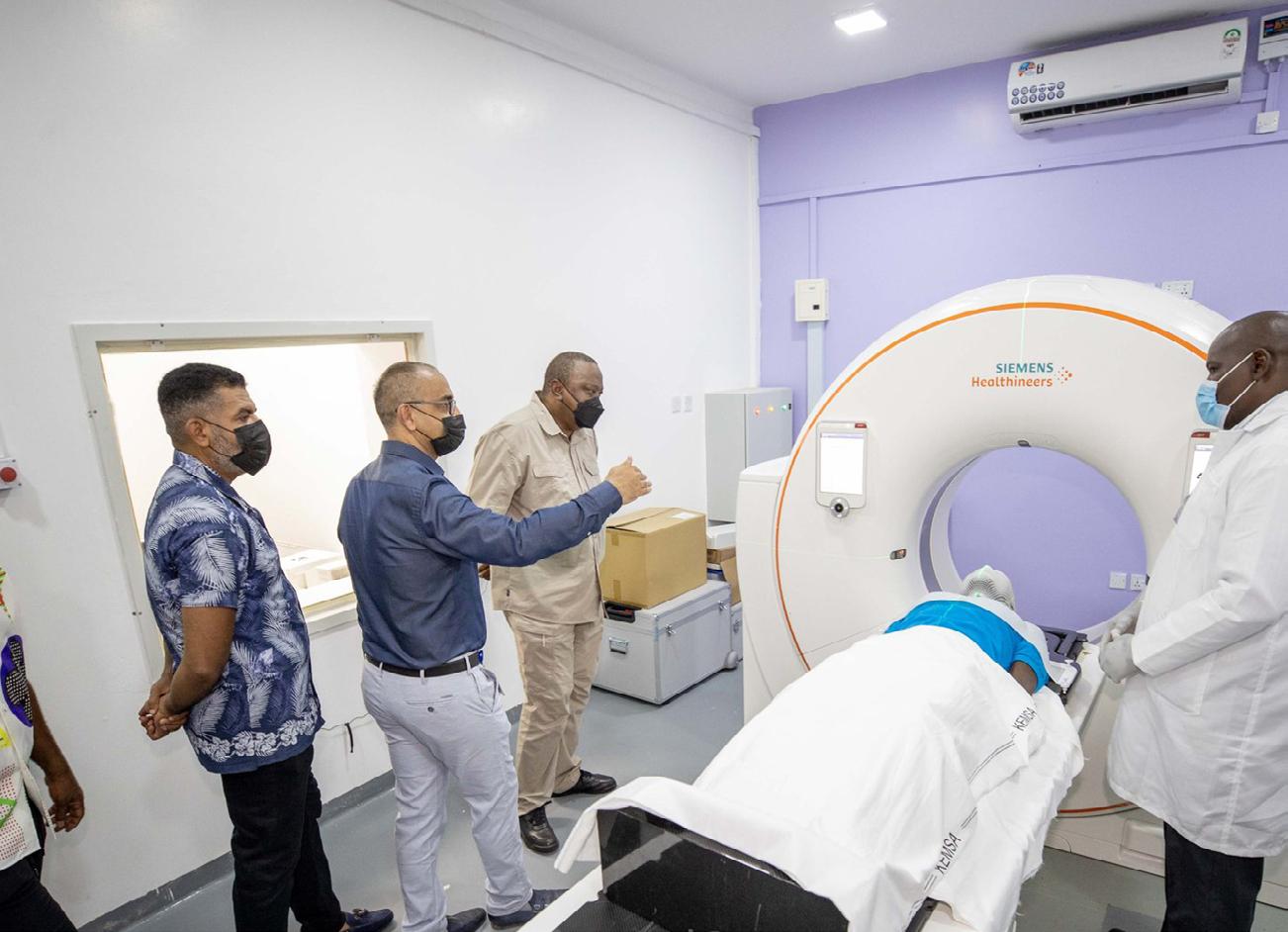
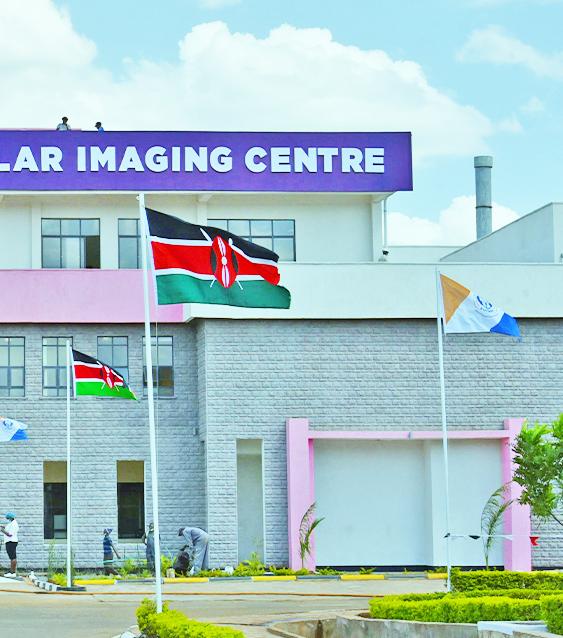
IN NUMBERS
30 THE NUMBER OF CANCER CENTERS IN AFRICA
facility is expected to save Kenyans over US$89 million in cancer treatment costs outside the country each year.
The high and rising cost of cancer treatment is a worldwide issue. Cancer medicines were added to the WHO Model List of Essential Medicines in 2015 in order to encourage countries to prioritize effective cancer treatments, but not all countries can afford them. Botswana, for example, incorporated 80% of 2015 WHO list into its national essential medicines list.
Recognizing that the high cost of chemotherapy and radiotherapy is a source of financial hardship and catastrophic spending for low-income populations, the Tanzanian government has exempted cancer patients from paying for treatment since charging (cost sharing) was introduced into the public health sector in 1993. However, cancer patients continue to pay for other inpatient treatment, such as surgery and transfusions, and for diagnostic investigations and other medication.
A strong coalition between governments, experts, communities, and donor agencies
has played a key role in enhancing access to lifesaving cancer therapies in Africa. In 2020, the American Cancer Society (ACS) and the Clinton Health Access Initiative (CHAI) entered into agreements with pharmaceutical companies Pfizer, Novartis, and Mylan to increase access to 20 life-saving cancer treatments in 26 countries across Sub-Saharan Africa and Asia. Purchasers of medicines obtained through the agreements are expected to reduce costs by an average of 59 percent.
The medications covered by the agreements cover recommended regimens for 27 types of cancer and allow for complete chemotherapy regimens for the three cancers that kill most people in Africa—breast, cervical, and prostate cancer. The new agreements cover both chemotherapies and endocrine therapies that are aligned with evidence-based guidelines for Sub-Saharan Africa, and they expand access to additional formulations, including those critical for treating childhood cancer. The market access agreements guaranteed competitive prices, allowing governments to save money while improving the quality and quantity of treatment available.
Given the growing burden of cancer in LMICs driving high demand for care, private investment could fill the gap in public and donor funding. Private capital has poured into markets such as India and Kenya, establishing sophisticated hubs for high-quality cancer care.
In this breath, the Apollo Proton Cancer Center was recently launched in Kenya, becoming the first and only Proton center in South Asia, the Middle East, and Africa. However, it is not available to everyone due to high-cost implications. Proton therapy is more expensive than traditional radiation, with costs ranging from US$50,000 to US$60,000, and not all insurance companies can cover the cost of the treatment. Additionally, public–private partnerships have, for example, donated radiation machines for cancer centers in the continent. The International Atomic Energy Agency (IAEA) is a key player in the advancement of radiation therapy on the continent.
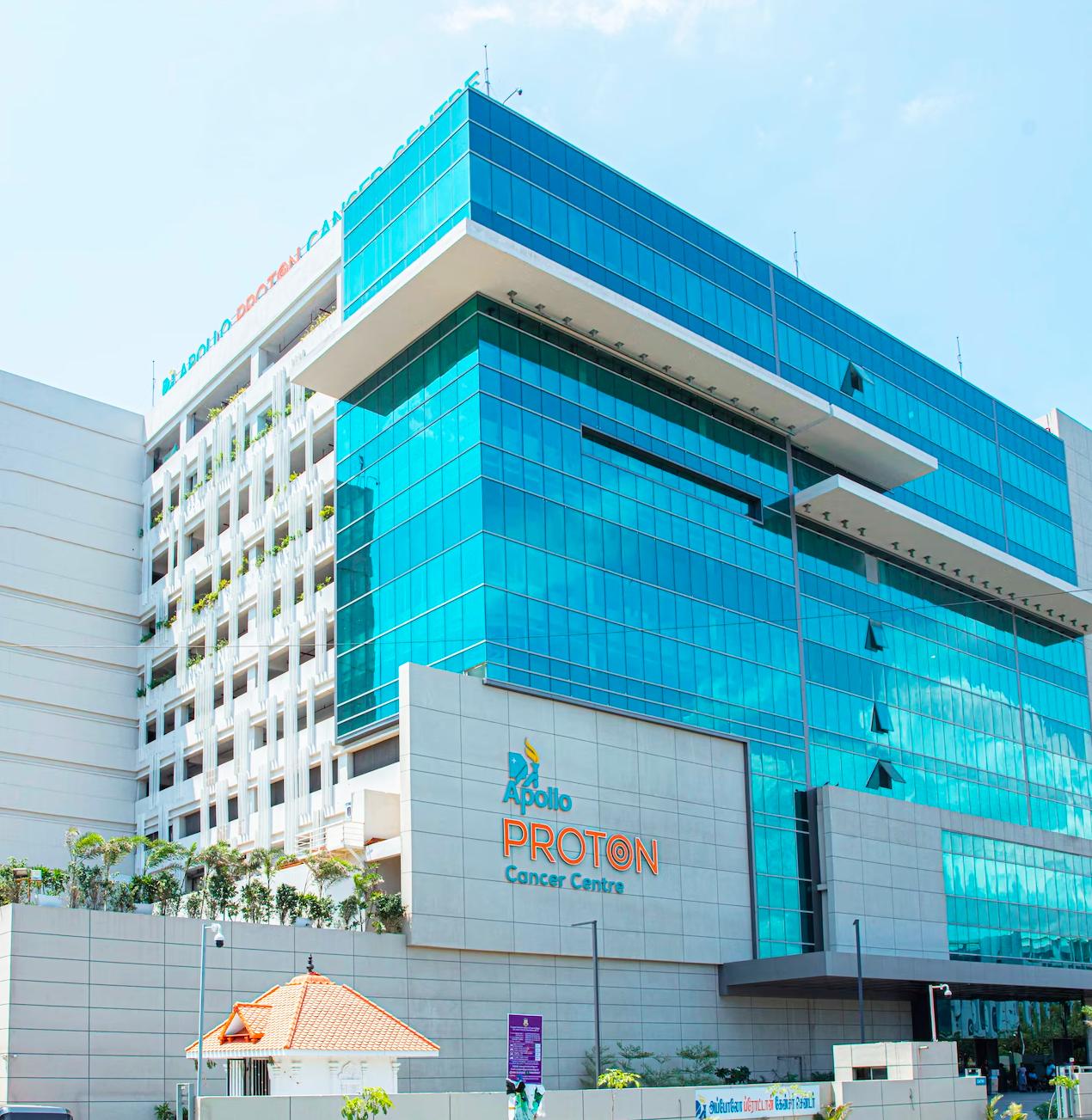
Scientific developments in the field of cancer research have undergone a fascinating journey during the second half of the 20th century and Africa has not been left behind. African countries have worked with developed countries
to implement world-class research projects. Burkitt's lymphoma, the relationship between aflatoxin and hepatocellular carcinoma, and HIV and AIDS are all examples of success.
The Beginning Investigator Grant for Catalytic Research (BIG Cat) initiative was launched in 2010 by the US National Cancer Institute in collaboration with the African Organization for Research and Training in Cancer to support cancer research projects conducted by earlycareer African investigators. BIG Cat has awarded 18 grants of up to US$50,000 to support two-year cancer research projects that have generated locally relevant findings that address a range of cancer sites and multiple areas of scientific interest.
In terms of research partnerships, recently Kenya’s Ministry of Health and international research partners launched a hub for advancing cancer registration to accelerate cancer registration in Sub-Saharan Africa by leveraging training and innovative financing. The facility, which will be housed at the Kenya Medical Research Institute (KEMRI), will serve as a nerve center for collaborative research aimed at promoting the collection and dissemination of data on the continent's cancer burden.
The center will provide critical data on cancer incidence, mortality, and survival rates, as well as improve cancer surveillance, treatment, and long-term management. Kenya is one of three African countries, along with South Africa and Côte d'Ivoire to be designated as collaborating
centers for the WHO-affiliated International Agency for Research on Cancer as part of continental efforts to revitalize the fight against non-communicable diseases. The East African country hopes to become a continental hub for cancer data collection through collaboration with the Africa Cancer Registries Network and the Global Initiative for Cancer Registry.
Uganda Cancer Institute (UCI) has partnered with Fred Hutchinson Cancer Center to launch “Cancer Genomics and Genomic Data Science for East Africa,” and additional programs to train East African researchers in cancer genomics and foster future researchers. This program is funded at a cost of US$1.25 million over five years and builds upon research that explores the genomics of breast cancer, lung cancer, non-Hodgkin lymphoma, and Kaposi sarcoma. Further West, Moffitt Cancer Center together
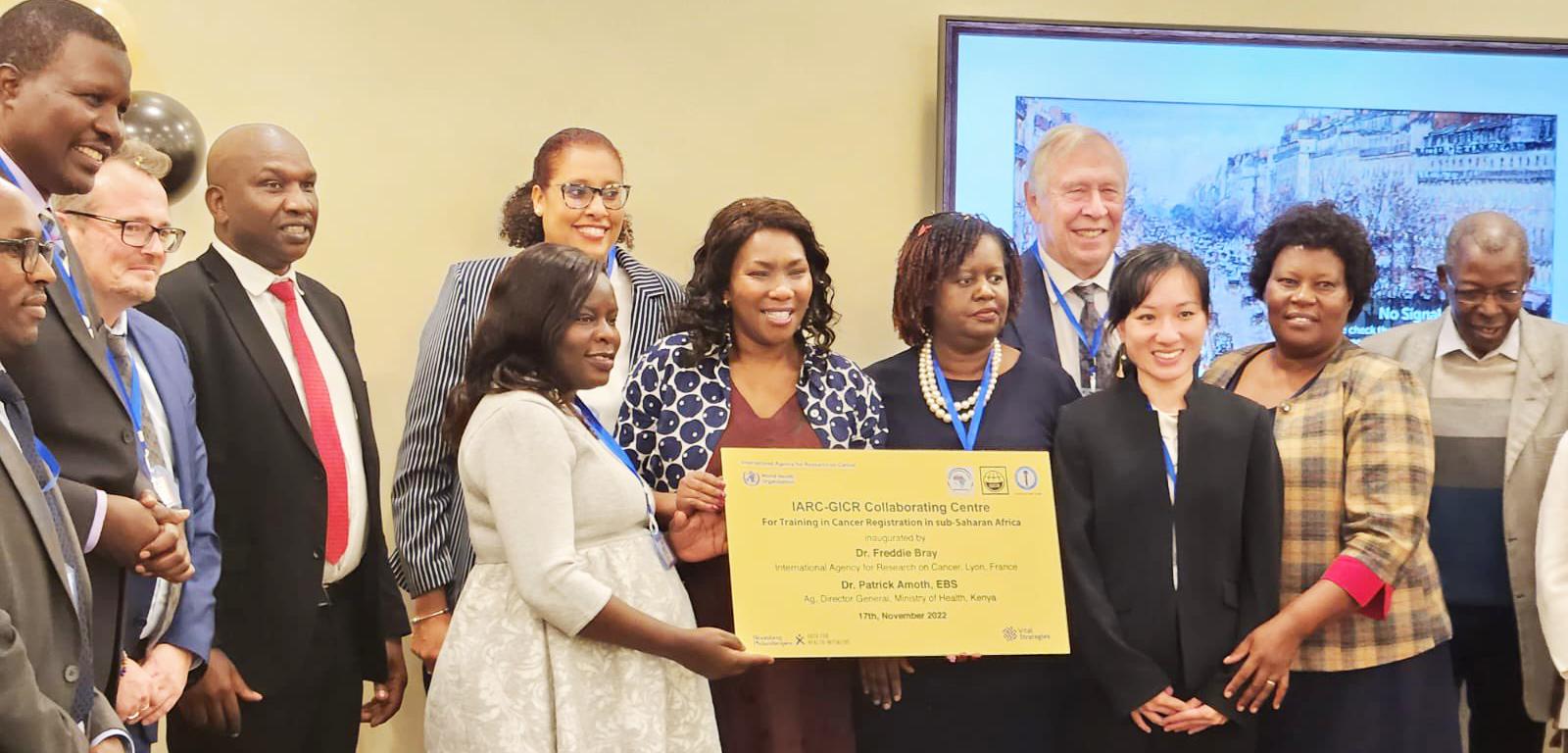
IN 2020, THE AMERICAN CANCER SOCIETY AND THE CLINTON HEALTH ACCESS INITIATIVE ENTERED INTO AGREEMENTS WITH PHARMACEUTICAL COMPANIES PFIZER, NOVARTIS, AND MYLAN TO INCREASE ACCESS TO 20 LIFE-SAVING CANCER TREATMENTS IN 26 COUNTRIES.
with the University of Ghana have struck a fiveyear deal to work to strengthen and expand the capacity to conduct cancer research in Ghana.
A study titled “Global Survey of Clinical Oncology Workforce” revealed that Oncologists in Africa range from zero in Lesotho, Benin, Gambia, South Sudan, and Sierra Leone to single digits in Malawi, Burkina Faso, Rwanda, and Togo, and up to 1500 in Egypt. This results in a very high caseload per physician. Data from a 2018 review of 21 countries in Africa showed a high burden of incident cases per oncologist while also highlighting the large numbers of oncologists in Africa who practice both radiation and medical oncology (i.e. clinical oncologists) further compounding the workload.
With the scarcity of medical oncologists (MOs) in Africa and other low-middle-income regions, a large proportion of cancer patients lack the opportunity to see a medical oncologist in consultation. As a result, patients do not have access to early interventions that could alleviate their suffering and improve their outcomes. Pediatric cancers are perhaps the best example of this unfortunate situation, with survival rates of more than 80% in high-income countries and less than 10% in East and West Africa. Inadequate cancer services mean a continued increase in premature deaths.
Although a comprehensive list of all cancer treatment facilities in Africa remains to be compiled, a valuable step in the right direction has been made by the African Organization for Research and Training in Cancer. As per African Cancer Network Project, the continent has 102 cancer treatment facilities, including general oncology centers, gynecologic oncology or other single-organ malignancy units, pediatric oncology, and palliative care facilities.
South Africa is home to 38 of these institutions. Although the list is not yet complete, it suggests that there is a significant shortage of cancer care services on the continent. Closer home, Kenya is yet to achieve the aspirations of the Cancer Control Strategy 2017-2022 which was to build four regional cancer treatment centers in Kisii, Nakuru, Mombasa, and Nyeri. Besides that, Kenya has only 35 oncologists in both public and private hospitals.

The low number of oncology centers and practitioners has given rise to medical tourism, which is chiefly defined as when people from lessdeveloped nations travel abroad for treatments they need and which are not yet available in their own country. India is the prime medical tourism destination for Africans who seek affordable high-quality critical care for cancer and other medical conditions.

Even with much to celebrate, the perennial failure of governments to prioritize health and allocate adequate resources is partly the reason why Africa fairs poorly compared to the rest of the world. Currently, African countries spend US$8 to US$129 per capita on health compared to high-
income countries that spend above US$4,000. The Abuja Declaration sought to address this by committing at least 15% of the national budget to the health sector. However, many countries have struggled to meet this goal, and two decades later, only two countries, Rwanda and South Africa have met the 15% target. Even worse, most countries move far too slowly to meet the goal of allocating adequate resources for healthcare. Low government spending primarily harms citizens, resulting in high out-of-pocket spending and an inequitable healthcare system that only guarantees access to those who can pay for the high cost of cancer treatment.
Opportunities for reducing suffering and death from cancer however exist across all stages of the cancer control spectrum, from prevention to early detection, treatment, and palliative care. To combat this lifestyle epidemic, global, national, and individual commitments are required. WHO is mobilizing countries worldwide for collective action, particularly African countries, many of which have insufficient non-communicable disease (NCD) interventions.
Some of the options that WHO is promoting to reduce lifestyle diseases are raising taxes and prices on tobacco products, implementing plain packaging or comprehensive bans on tobacco packaging designed to attract consumers, increasing taxation on alcoholic beverages, and enforcing bans on alcohol advertising.
Furthermore, proven measures, such as HPV vaccination, can prevent nearly all cases of cervical cancer, which kills many women in Africa each year and in other developing economies. Access to prevention, early detection, treatment, and palliative care services must be expanded if the cancer menace is to be eliminated.
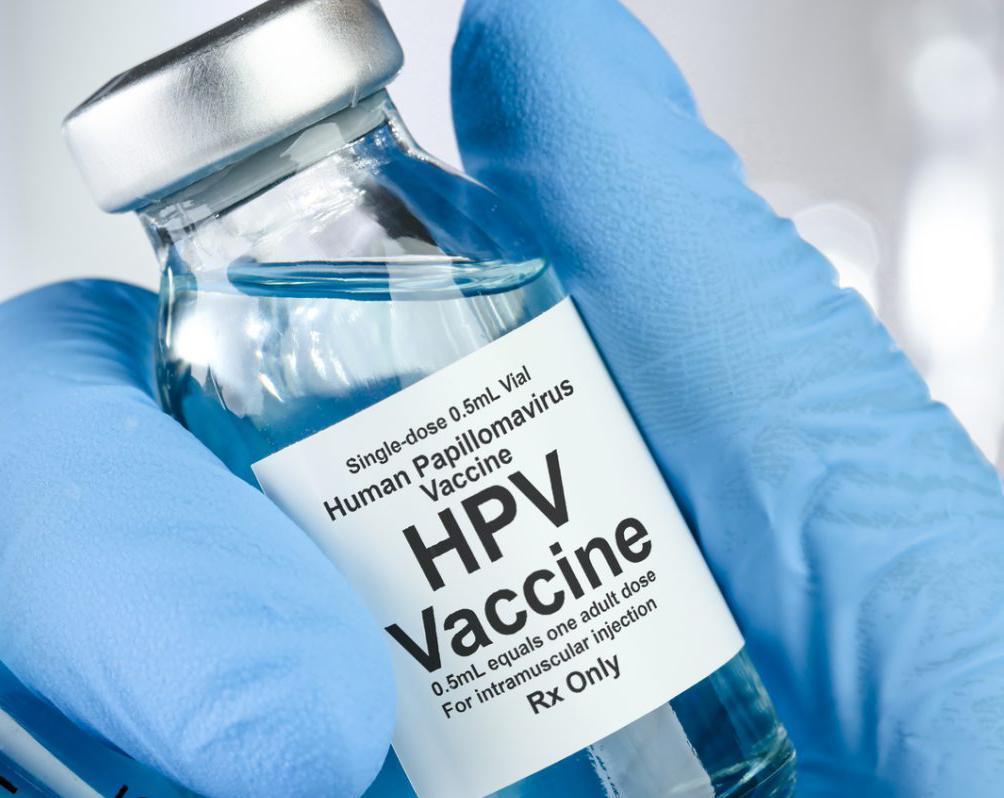
The government of Kenya is set to host the first-ever National Cancer Summit 2023, scheduled for 2-4 February 2023, culminating with the commemoration of World Cancer Day.
This is in recognition of the need for a more coordinated and multisectoral response to the growing cancer burden in Kenya.
Under the theme – uniting our voices and taking action – the summit is the premier convention for all cancer stakeholders locally and internationally.
The top five cancers in Kenya are those of the breast, cervix, prostate, oesophageal, and non – Hodgkin’s lymphoma. accounting for nearly half (48 percent) of the cancer burden in the country.

According to the government, nine women die every day due to cervical cancer; nine in every 10 persons with oesophageal cancer will succumb to the disease.
The National Cancer Summit 2023 will provide an appropriate platform for stakeholders from across all sectors to, among other discussions, deliberate on the recommendations arising from the Cancer Taskforce Report, review the progress made over the last 10 years in addressing the cancer burden, identify areas of learning from successful strategies and together, formulate solutions for collective action.
VENUE: Safari Park Hotel, Nairobi, Kenya
DATE: February 2-4, 2023
CANCER NUMBERS IN KENYA
• Third leading cause of death
• Second leading cause of Non-communicable deaths
• 47,887 new cases every year
• 32,500 cancer deaths every year
• 2 out of 3 persons diagnosed with cancer succumb

• 70% of cases diagnosed in advanced stages
• 23% of cancer patients access cancer management services they need
The simplest and cheapest means of preventing and controlling cancer is for individuals to make good lifestyle choices by opting for healthy diets (lots of vegetables and fruits and less sugar, salt, and fats), avoiding tobacco and alcohol, and exercising.
Overall, a rising cancer epidemic will necessitate increased resources for strengthening and adapting healthcare systems. Given that the African region's rates of social and economic growth are unlikely to keep pace with the rapid rise of cancer, taking immediate preventive action now will be far less daunting than waiting to address a full-blown epidemic later.
Source:
771 300
of deaths
27 092
Number of prevalent cases (5-year)
82 620
Data source and methods
Incidence
Country-specific data source: Eldoret Cancer Registry, Nairobi Cancer Registry

Method: Weighted/simple average of the most recent local rates applied to 2020 population
Mortality
Country-specific data source: No data
Method: Estimated from national incidence estimates by modelling, using incidence:mortality ratios derived from cancer registry data in neighbouring countries
Prevalence
Computed using sex-; site- and age-specific incidence to 1-;3- and 5-year prevalence ratios from Nordic countries for the period (2006-2015), and scaled using Human Development Index (HDI) ratios.


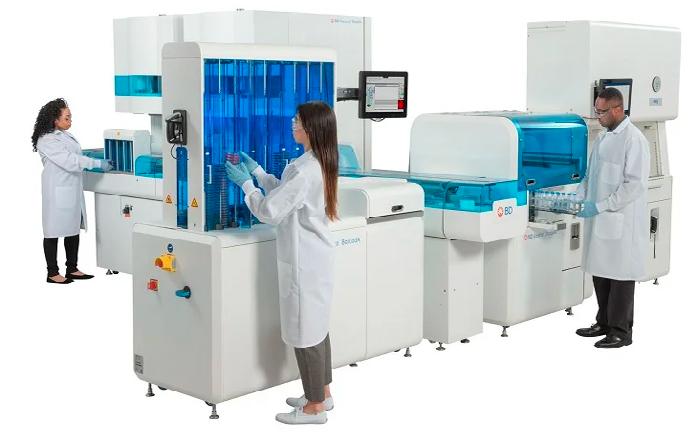

USA – Abbott Laboratories has received FDA approval for its Eterna spinal cord stimulation (SCS) system for chronic pain management. The Eterna SCS system is the smallest implantable, rechargeable system currently available for this indication on the market. Abbott claims that it was created after extensive research with patients, physicians, and caregivers to better understand the unmet needs of chronic pain patients.
SCS technology reduces pain by
23% more than traditional waveform technology approaches. It improves the patient charging experience by requiring as few as five recharges per year when used in conjunction with a wireless charger. To provide superior pain relief, Eterna SCS employs the company’s proprietary low-dose BurstDR stimulation, which mimics natural firing patterns in the brain. Eterna also employs Abbott’s TotalScan MRI technology, which allows for fullbody MRI scans — a critical need for chronic pain patients who require access to advanced diagnostics and healthcare.
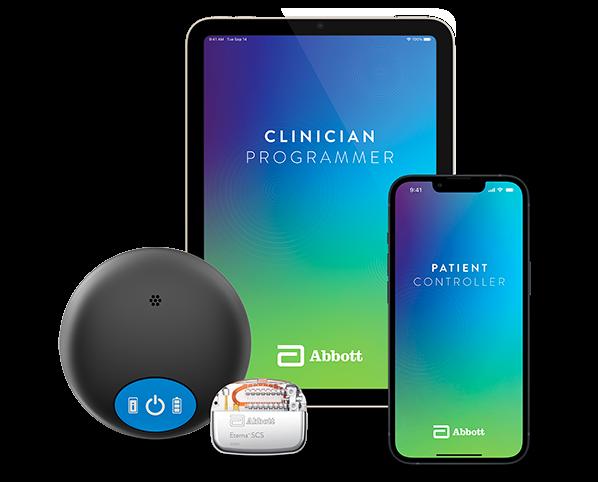
The system is anticipated to provide laboratories performing highly sensitive and precise DNA and RNA analysis with flexibility through three unique reaction plates. In addition, the regulatory decision is expected to strengthen Abbott’s Established Pharmaceuticals Division (EPD).
USA – Becton, Dickinson and Company (BD) has launched the new third-generation BD Kiestra Total Lab Automation (TLA) System for microbiology laboratories.
BD Kiestra lab solutions, including scalable and modular microbiology workflow automation solutions, offer total lab automation for the clinical microbiology laboratory. Currently, two companies offer distinct TLA solutions in microbiology: BD-Kiestra and bioMérieux & Copan (WASPLab). The robotic track system is suitable for use with the BD Kiestra microbiology laboratory solution, which automates lab specimen processing.
Designed to meet the evolving requirements of labs, the new robotic track system will enable the formation of a custom and flexible total lab automation configuration that can
link several BD Kiestra modules. The workflow can be completely automated, from routine specimen inoculation processes to advanced incubation, imaging, and colony selection for the detection of pathogens.
Using BD Synapsys informatics solution, each step of the lab’s diagnostic pathway can be traced. The solution will help improve laboratory decisionmaking and productivity through integrated workflows and on-demand insights.
USA — Thermo Fisher Scientific has introduced the Gibco CTS AAV-MAX Helper-Free AAV Production System, a new all-in-one solution designed to help meet clinical and commercial demands for cost-effective and scalable development of adeno-associated virus (AAV)-based gene therapies. As part of Cell Therapy Systems (CTS) solutions, the CTS AAV-MAX System is designed to work within the AAV production workflow, from cell culture and transfection through AAV viral vector production.
It is currently the only product of its kind manufactured under cGMP conditions, allowing for large-scale applications. The system can save manufacturers up to 50% on production costs when compared to alternative polyethyleneimine (PEI)-based suspension systems, and it can help reduce plasmid DNA costs by 25%.
It also features a mammalian-based suspension system comprised of a clonal HEK293 cell line and animal originfree reagents that support scalable AAV production from shake flask to bioreactor scale. In addition, the CTS AAV-MAX System allows researchers to seamlessly transition from research on the Gibco AAV-MAX Helper Free AAV Production System to clinical scale.
intuitive user interface and workflow of Philips’ cart-based systems EPIQ Elite and Affiniti, and offering full compatibility with these systems’ transducers, Ultrasound Compact 5000 Series supports an easy learning curve for users.
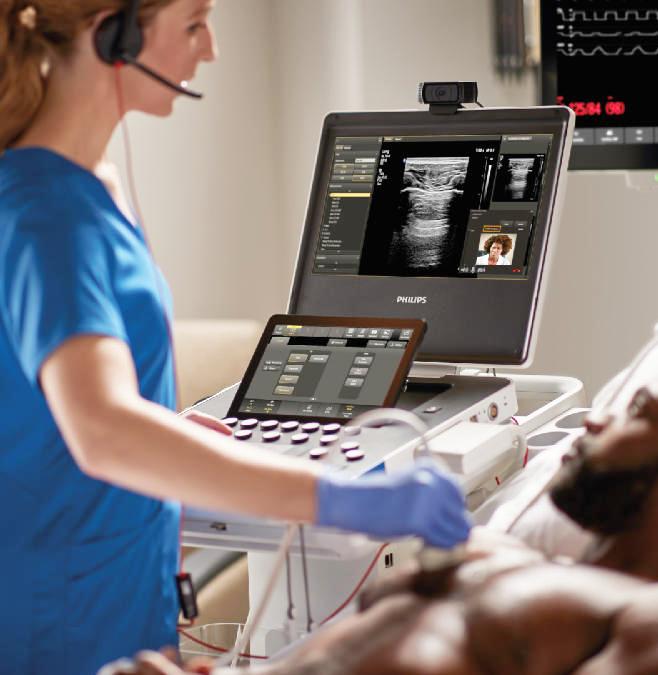
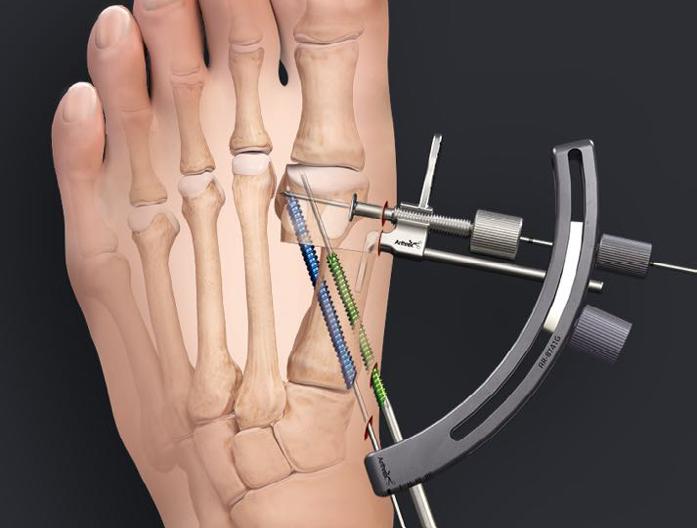
NETHERLANDS — Philips, a global leader in health technology has launched next-generation compact portable ultrasound solution with an aim to bring the diagnostic quality associated with premium cart-based ultrasound systems to more patients. Designed for portability and versatility without compromising image quality or performance, the Compact 5000 series facilitates first-time-right ultrasound exams for more patients. Replicating the
It is also designed for shared service capabilities across specialties including cardiovascular, obstetrics and gynecology, point of care, and general imaging to help meet the needs of multiple clinical segments. Designed for portability, the Compact system can be configured with an optional battery allowing for 2.5 hours of scanning time and 20% faster power-up capability to quickly ready the system at the patient’s side when every second counts. The new system also features Philips Collaboration Live secure real-time telemedicine software, with the ability to call on additional clinical expertise via secure voice, text, screen sharing, and video streaming from anywhere with a mobile or internet connection.
ISRAEL — MobileODT, an Israeli FemTech startup focusing on AIpowered cervical screening, has released its ThermoGlide thermocoagulation solution for immediate point-of-care treatment of precancerous lesions.
It is the only company that brings the power of AI into cervical cancer screening, while supporting the World Health Organization strategic mission to eliminate cervical cancer till 2050. Its EVA VisualCheck AI technology is a clinical decision support tool that harnesses the power of artificial intelligence and Machine Learning (ML) to perform cervical cancer screening at scale.
Thermoglide was developed in collaboration with India’s digital medical and healthcare solution
provider GenWorks. Thermoglide is a lightweight, portable, FDA-approved device that screens and treats women for cervical cancer in a single sitting. The battery-operated medical device uses the thermo-coagulation technique that destroys tissue using heat, noting that the technique is an effective and safe way to treat high-grade cervical lesions.
The Tel Aviv-based startup disclosed that it opted to utilize thermo‐coagulation for treatment of malignant lesions as an alternative to cryotherapy. MobileODT said that thermo-coagulation offers lower cost and lower duration of treatment as well as minimal adverse reactions and higher patient satisfaction than cryotherapy.
USA – Arthrex, a provider of minimally invasive orthopedic technology, has launched the Arthrex Minimally Invasive Bunionectomy System to offer patients a solution to traditional bunion surgery. The Arthrex Bunionectomy System is designed to be an all-inclusive set to facilitate minimally invasive surgical bunion correction. It has achieved the same or better corrective results than traditional surgery with less downtime, pain, and swelling.
Performed through tiny incisions, this minimally invasive procedure means patients can achieve complete bunion correction and get back on their feet faster. Studies show Arthrex Bunionectomy patients’ average
recovery is up to eight weeks faster than traditional open procedures, as published in the journal Foot & Ankle International. Patients also experienced more cosmetically appealing results, with smaller incisions that leave behind almost no visible scars.
Along with the procedure, Arthrex launched two websites geared toward patients and surgeons, respectively. BunionPain.com offers patients educational materials and connects them with local surgeons trained in. On the other hand, Bunionectomy.arthrex.com is geared toward clinicians and offers a way to connect with Arthrex Technology Consultants and Medical Education representatives for information on and training in the Arthrex Bunionectomy System.
NOTE: An invoice will be generated once we receive this form
Would you like us to have a feature on your company? Yes
Please complete the following details
Telephone: Website:
Email:
What best describes your main business activity (e.g. hospital, banking, consultant, packaging supplier, NGO)
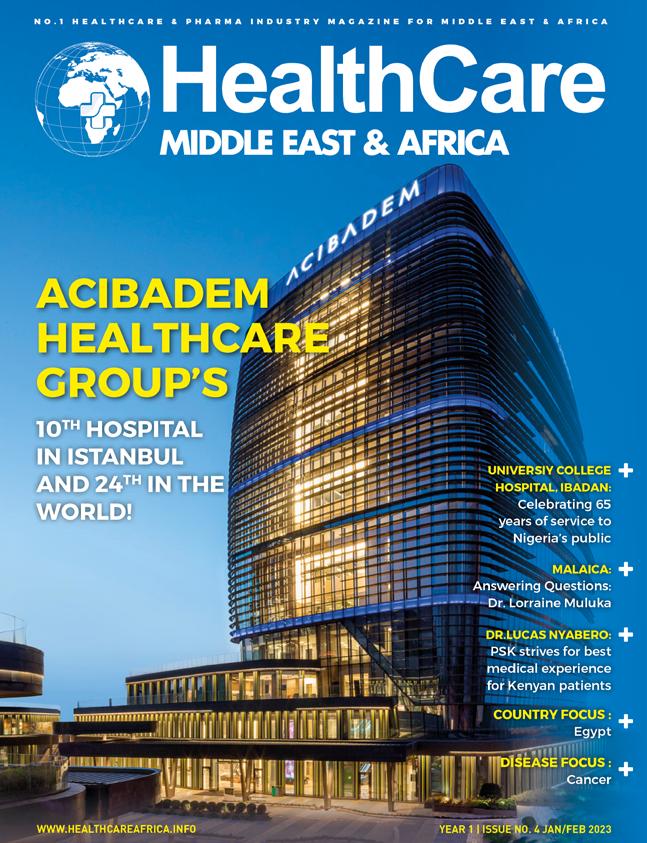
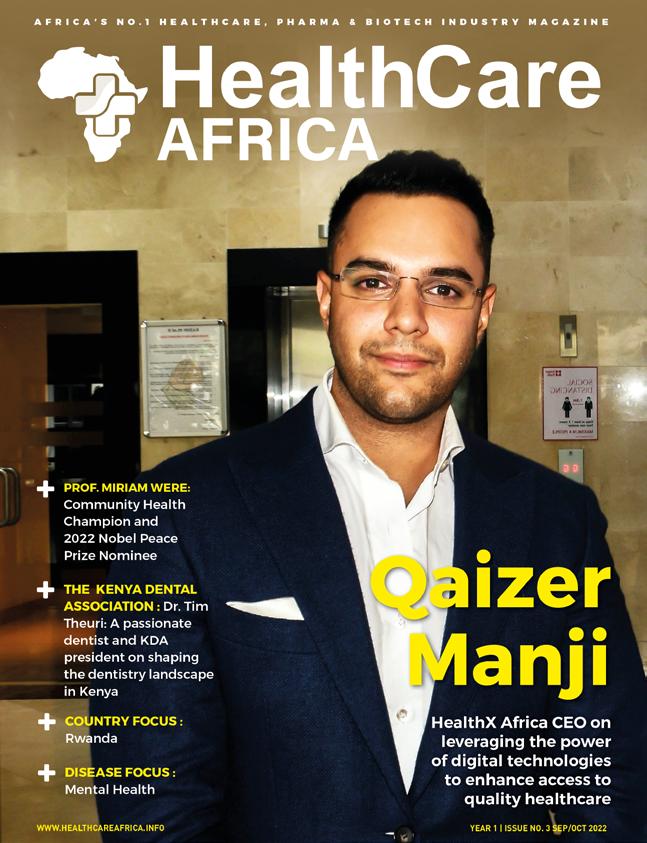
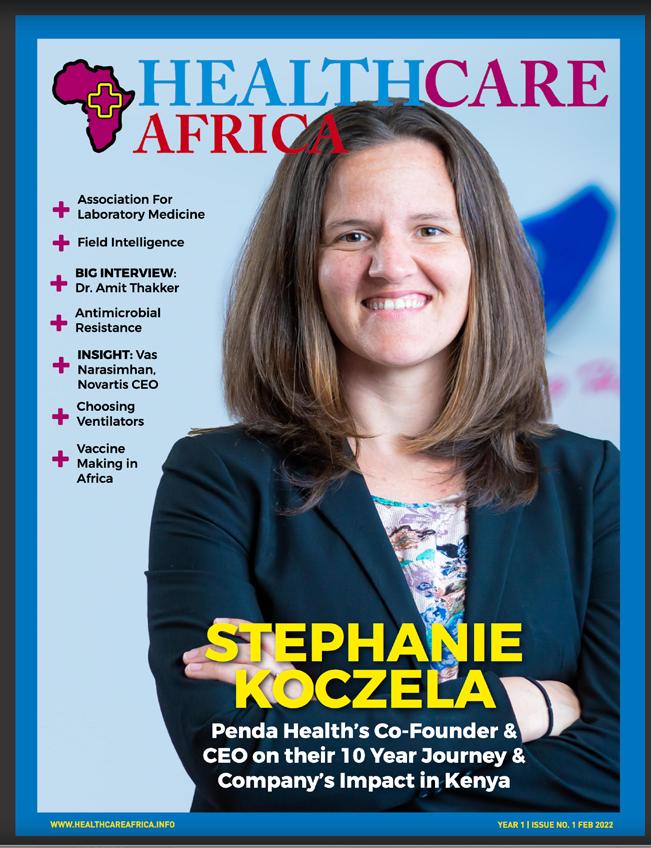
What best describes your job:
Chairman, CEO, Director General Management
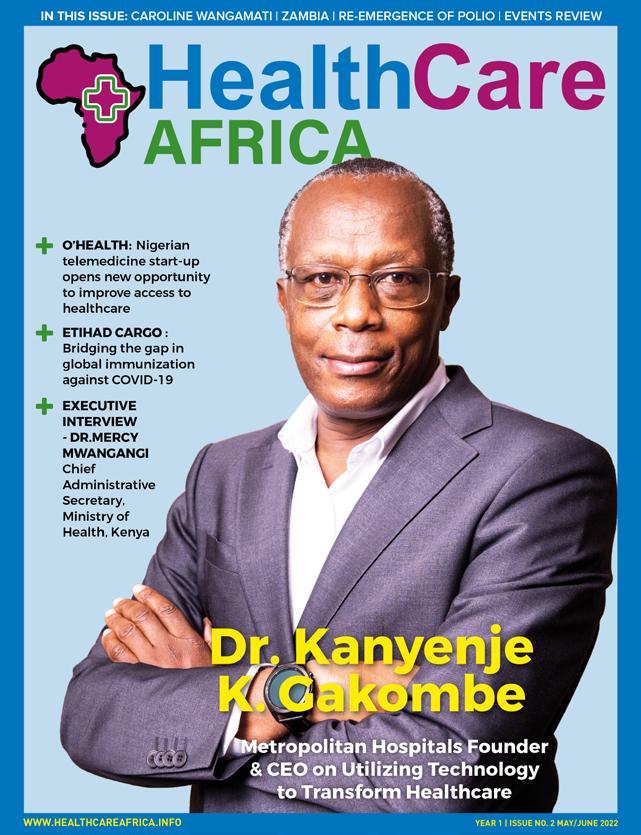
Sales/Marketing
QA/R&D
Others (specify)

Applicant’s Signature & Stamp:
Date:
Purchasing/Supply chain
Process Management


